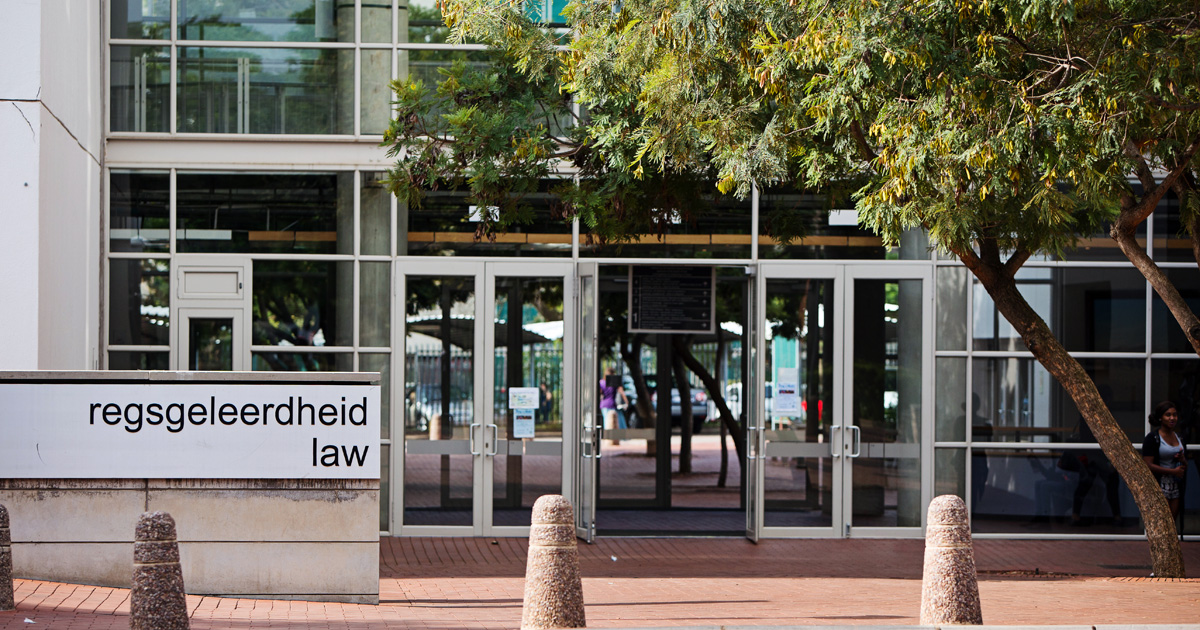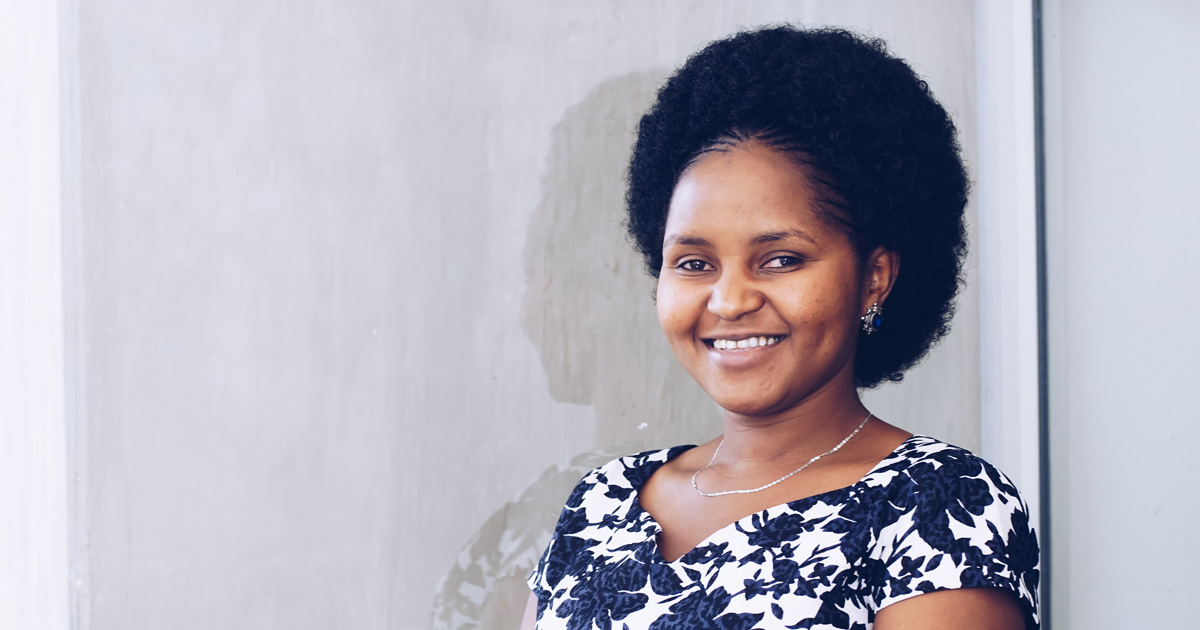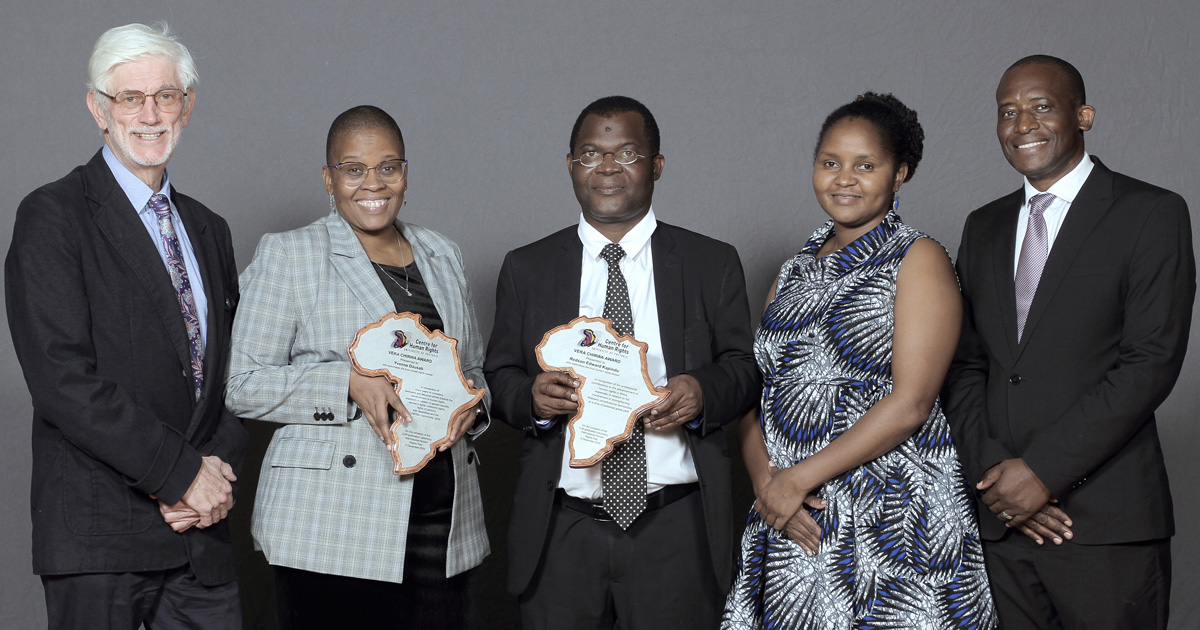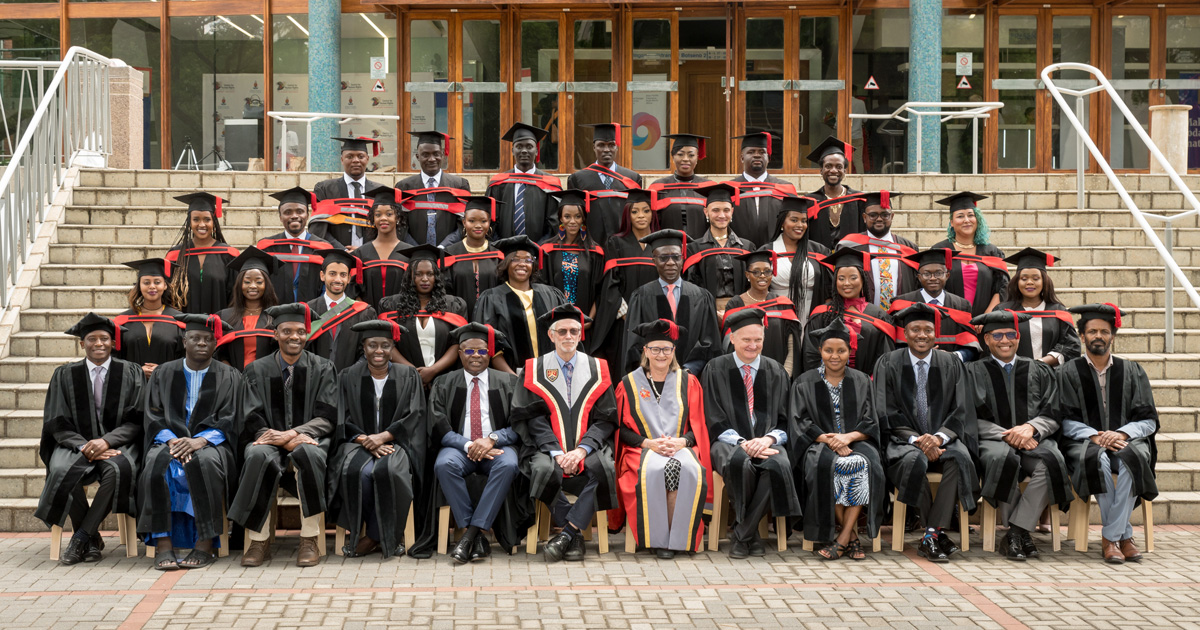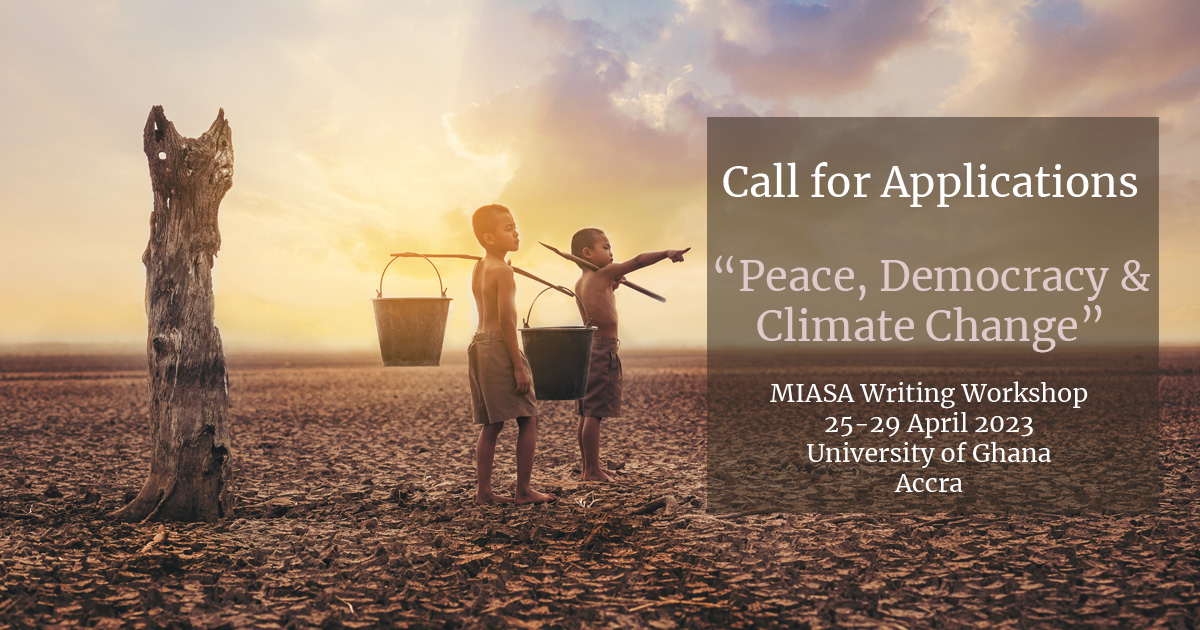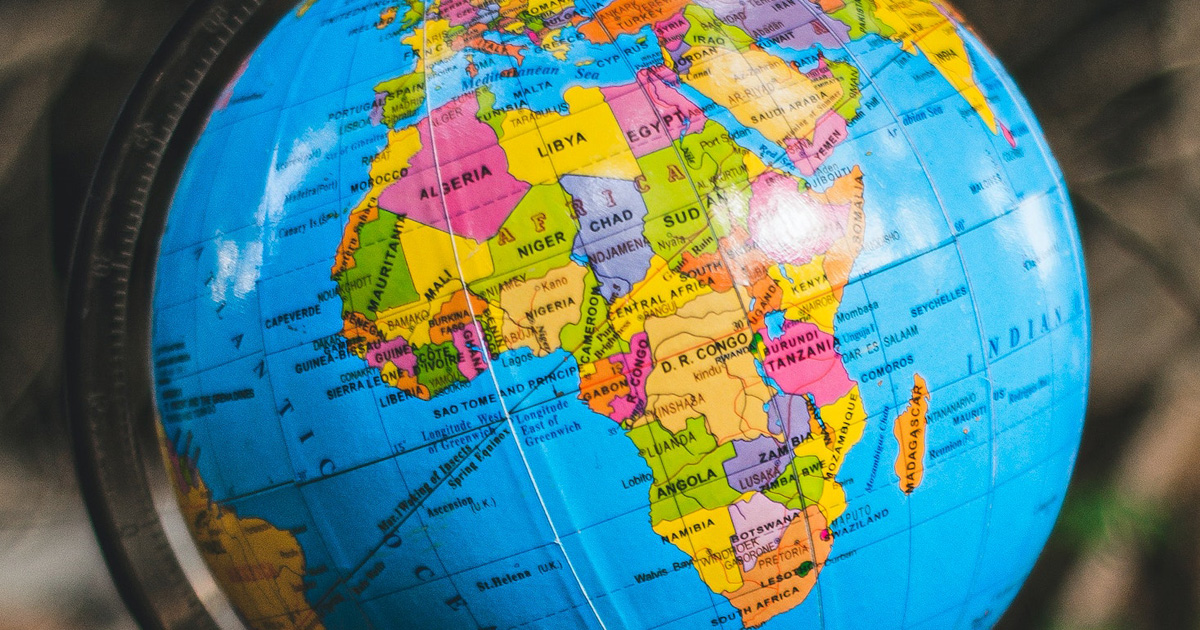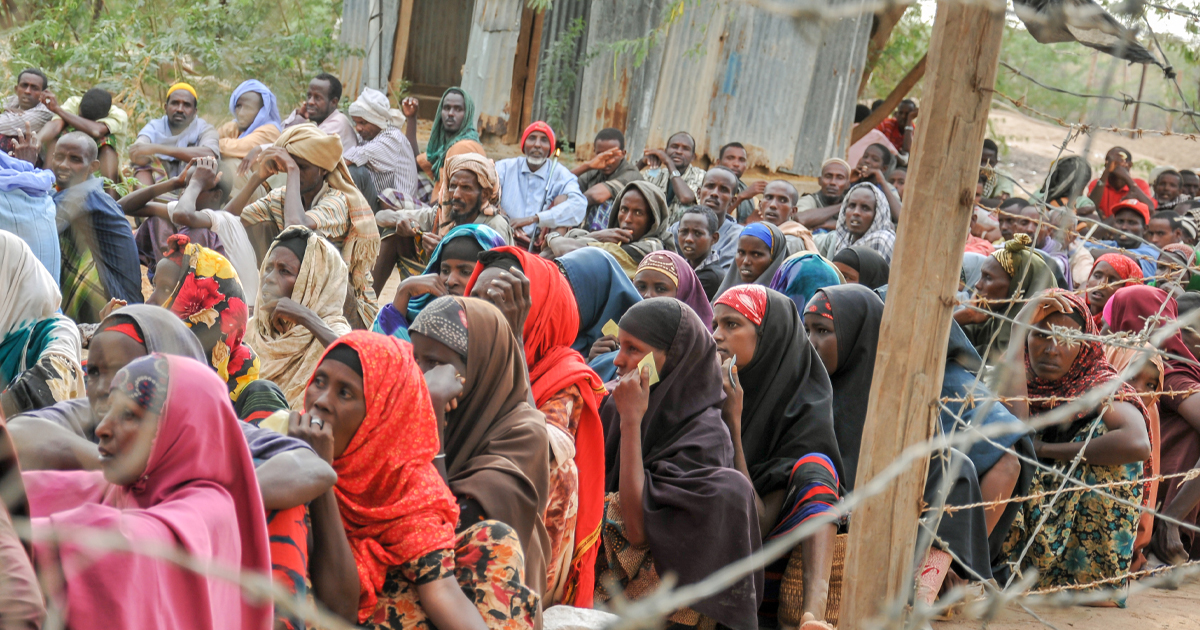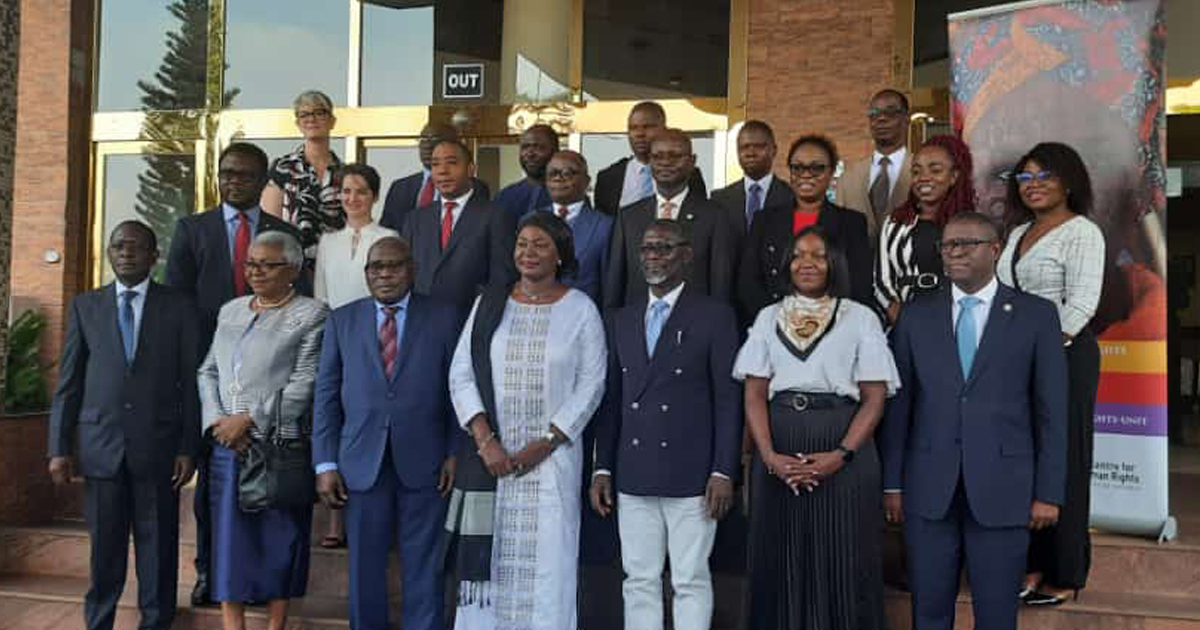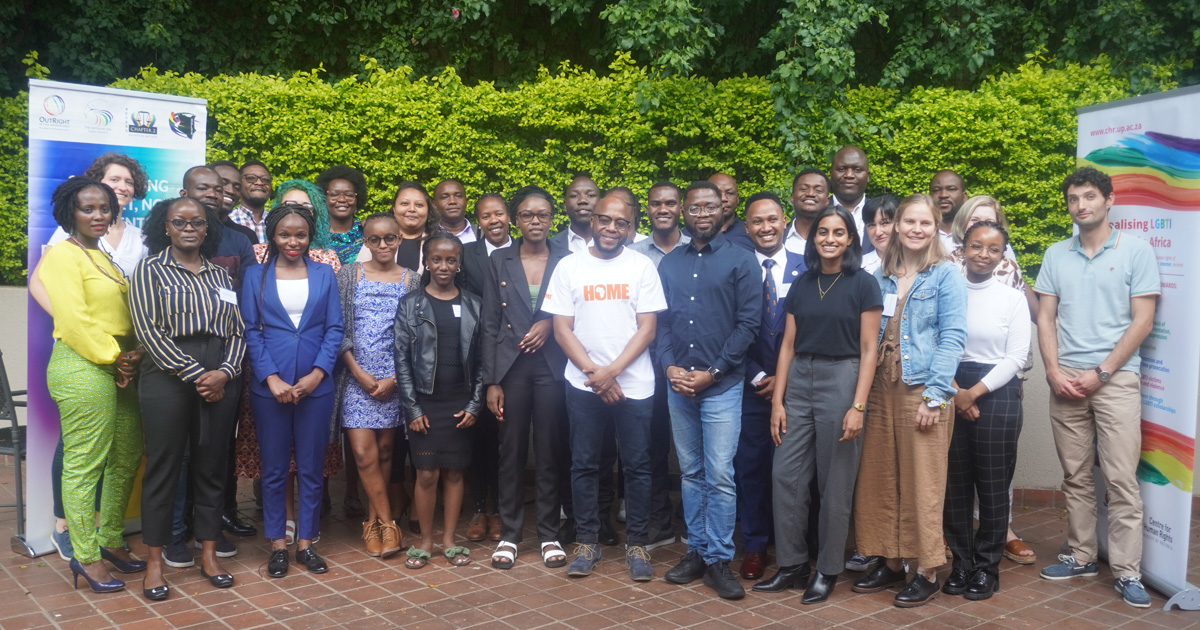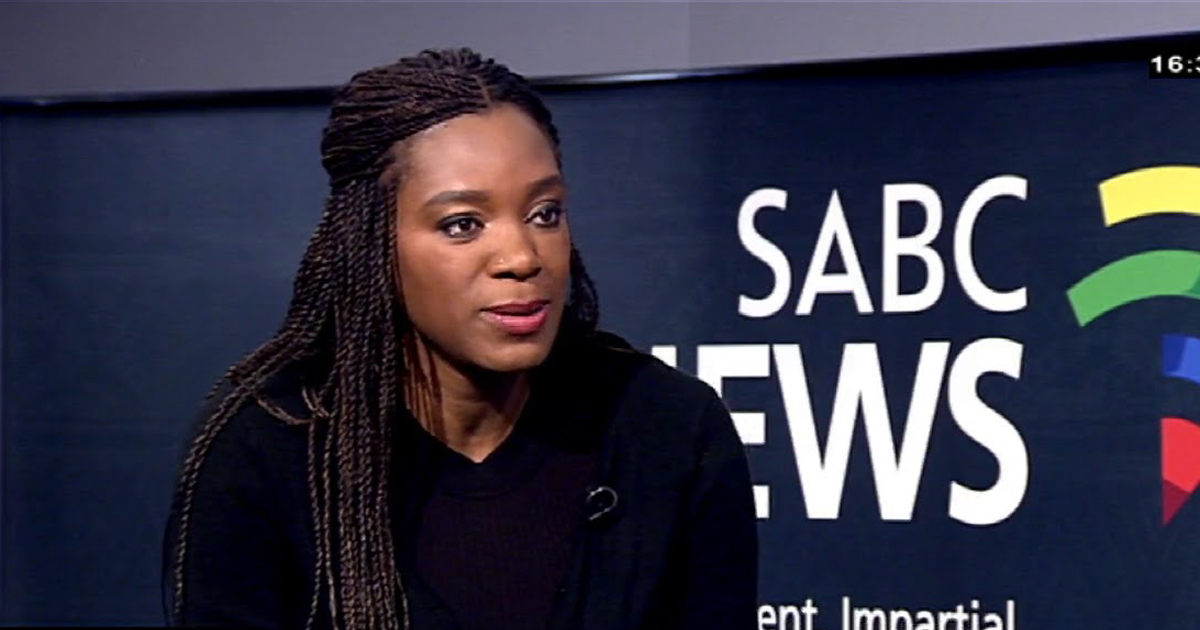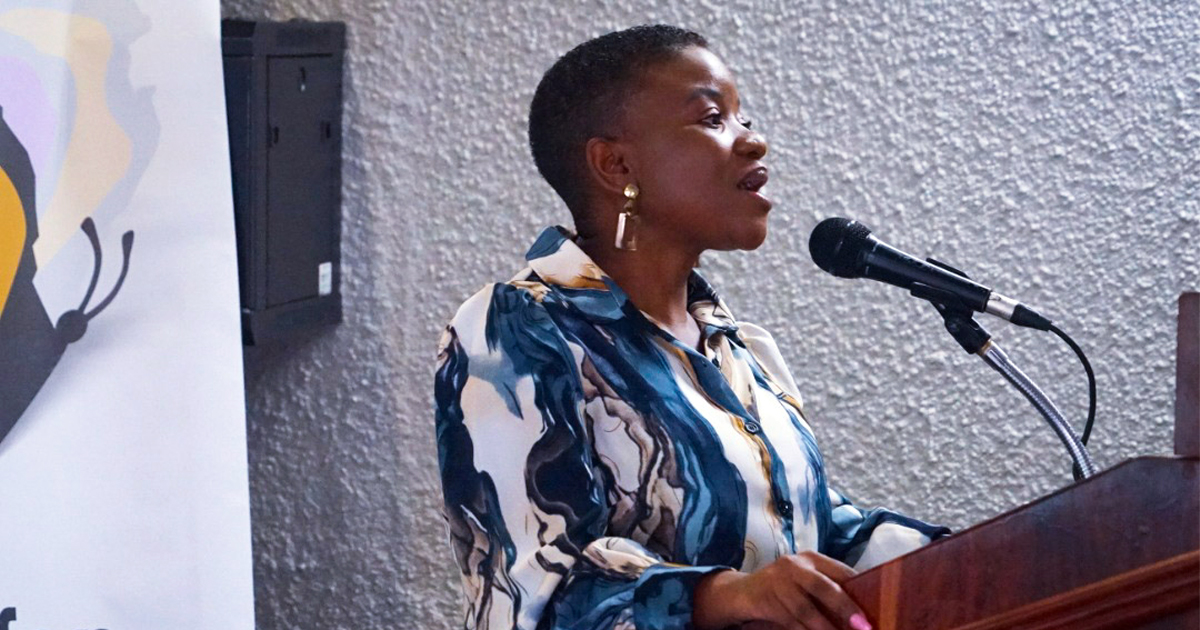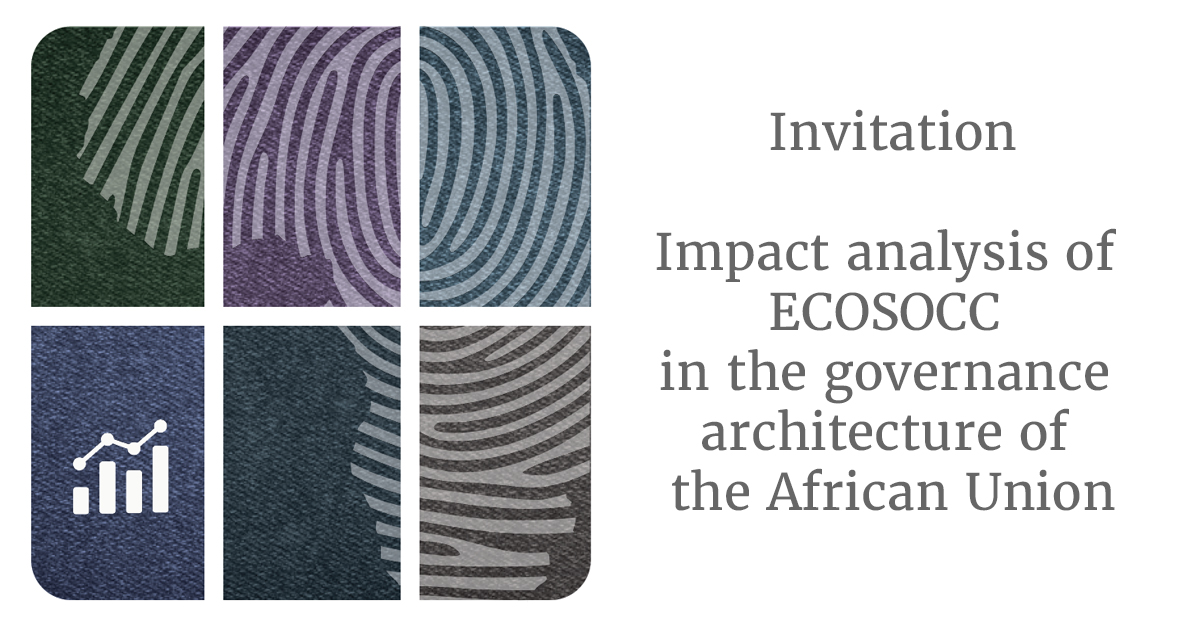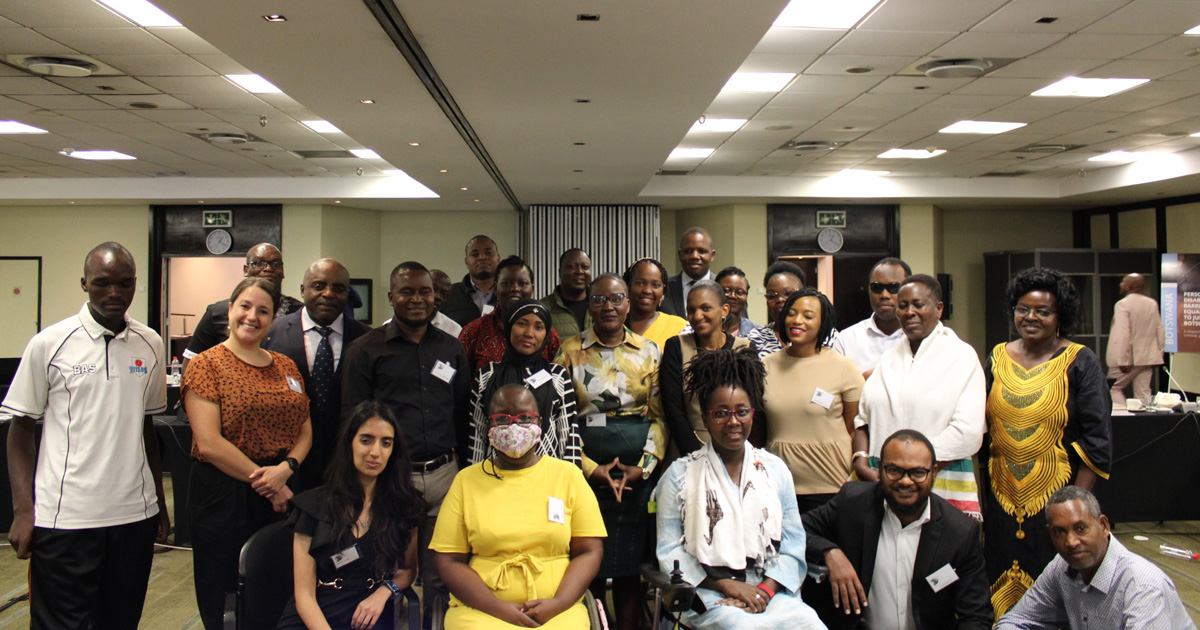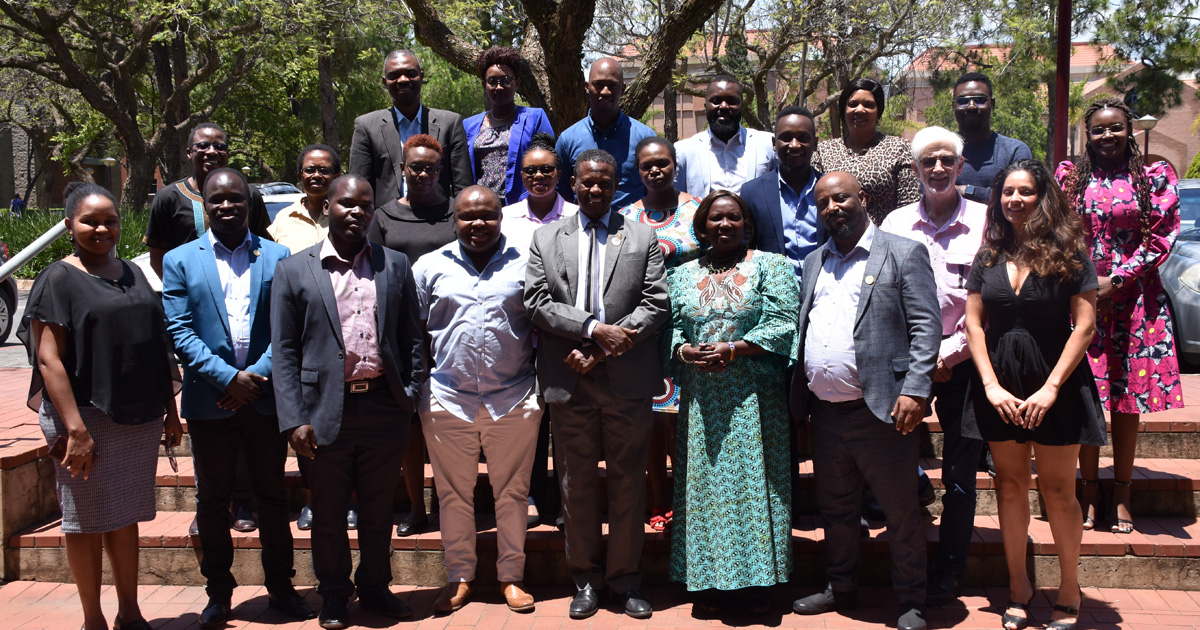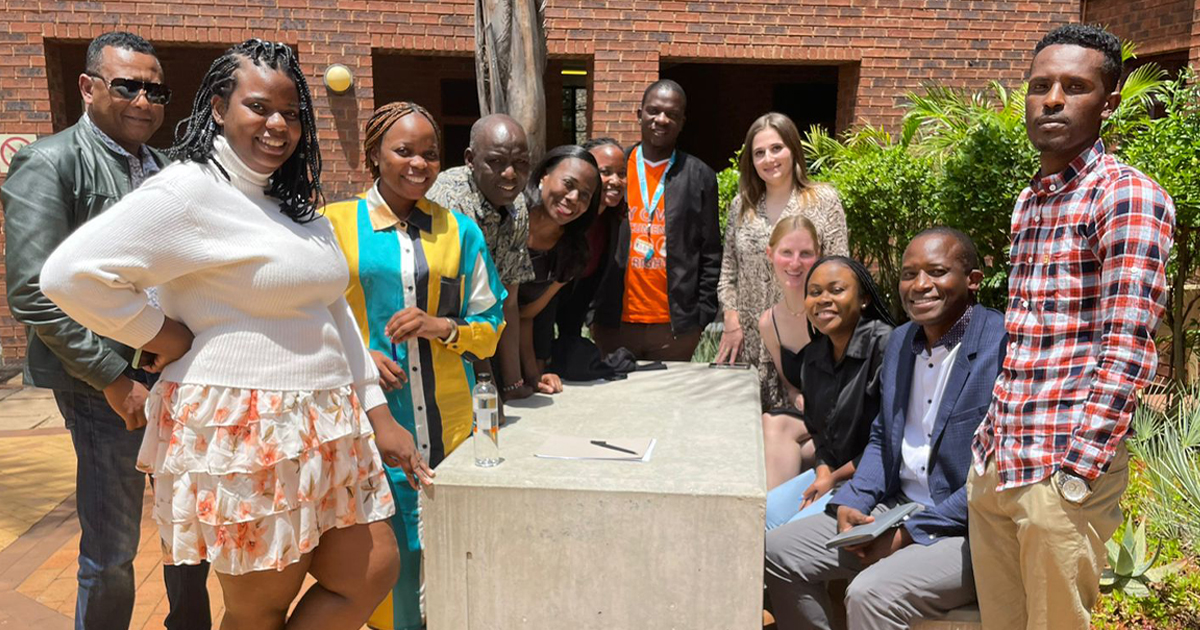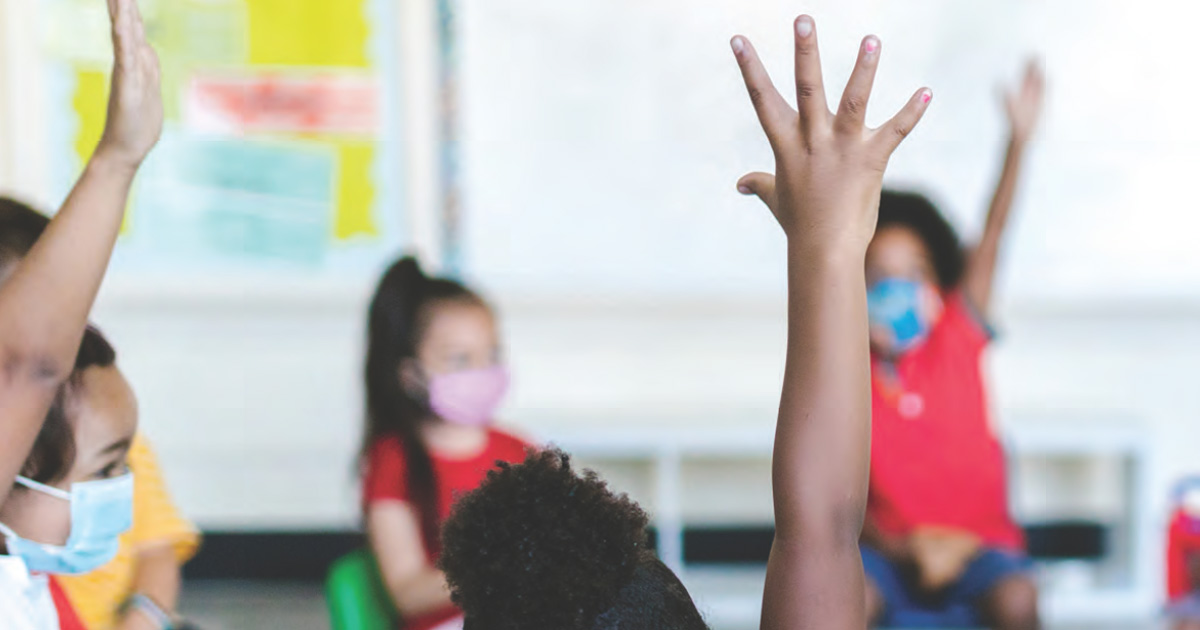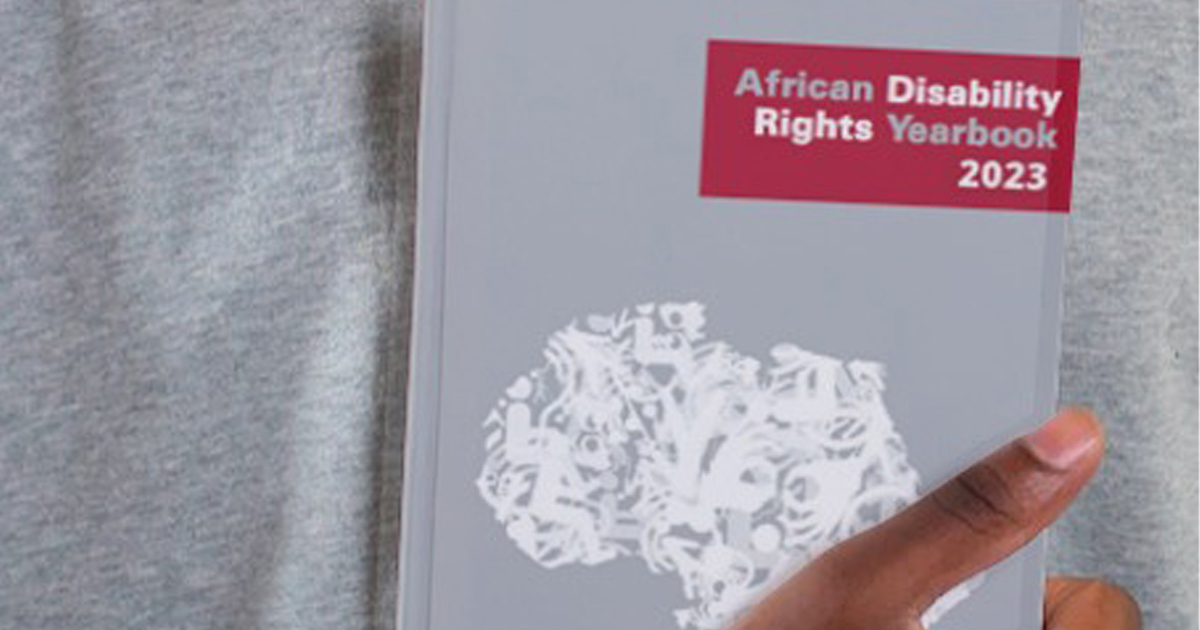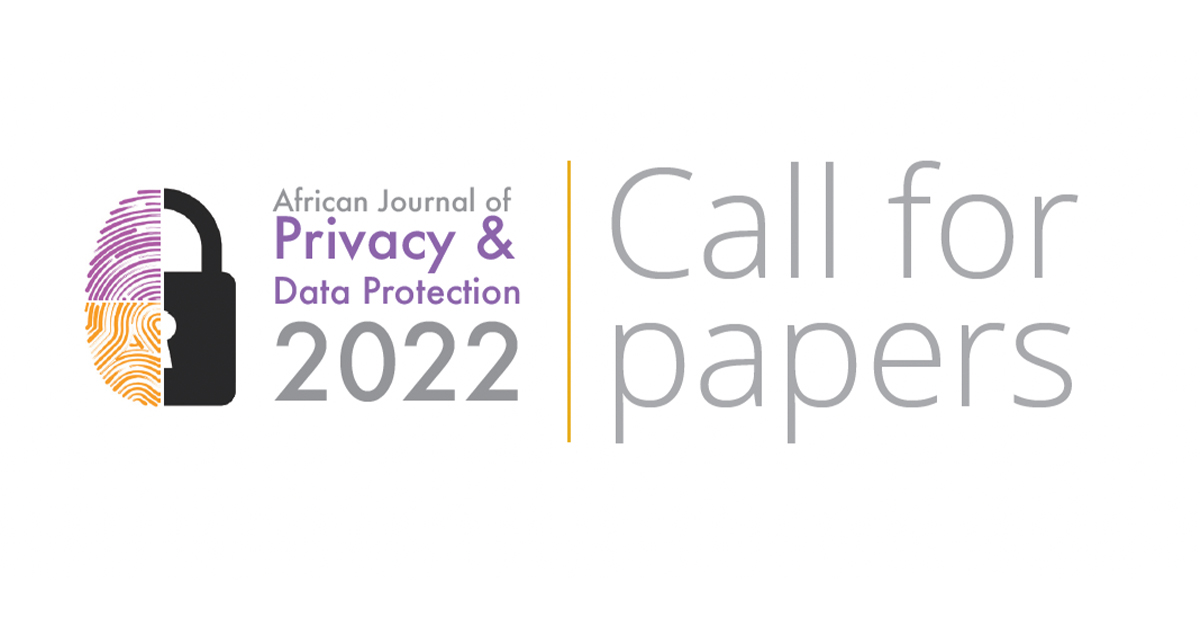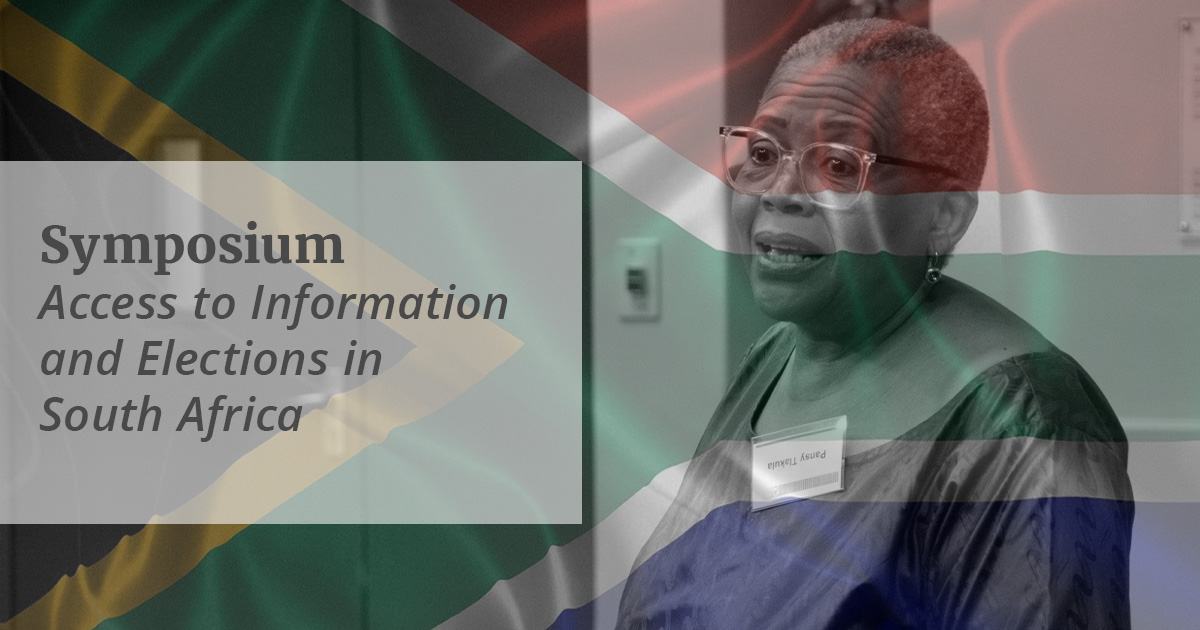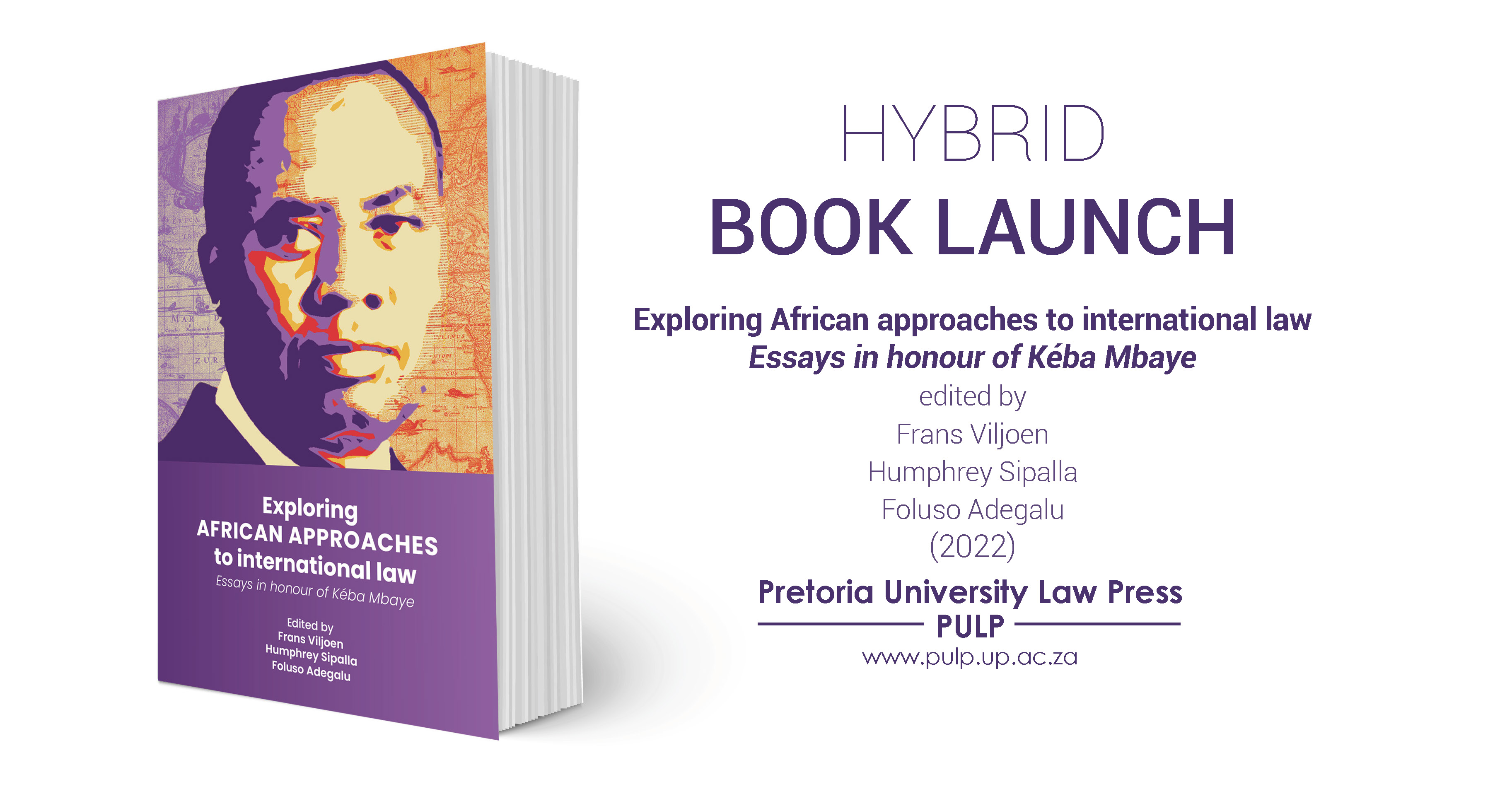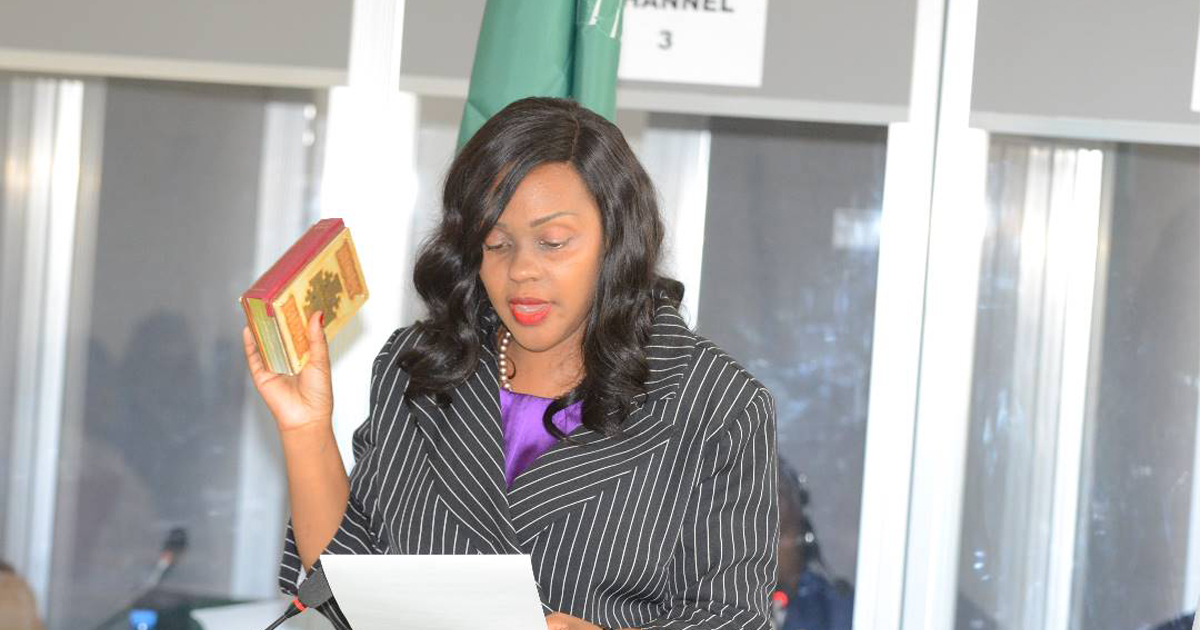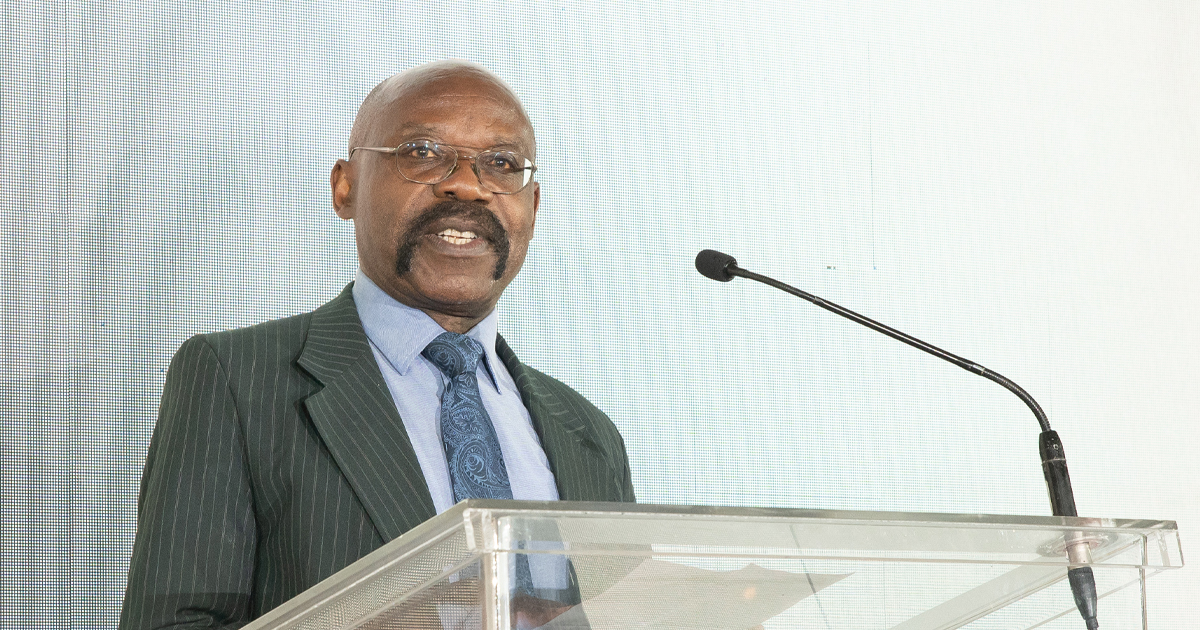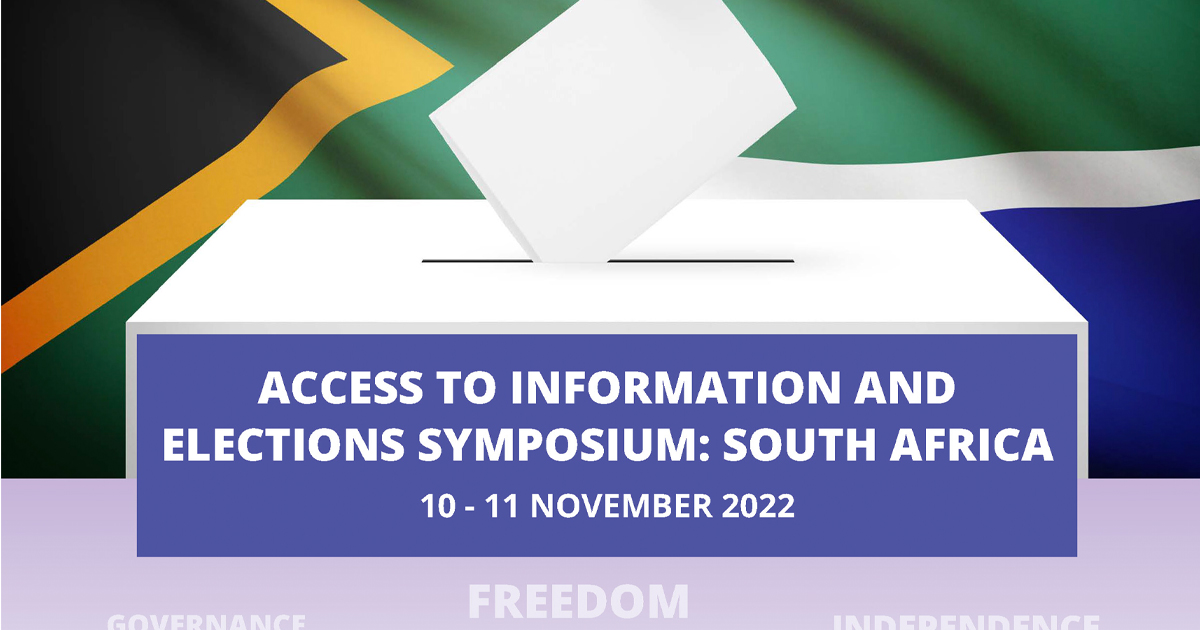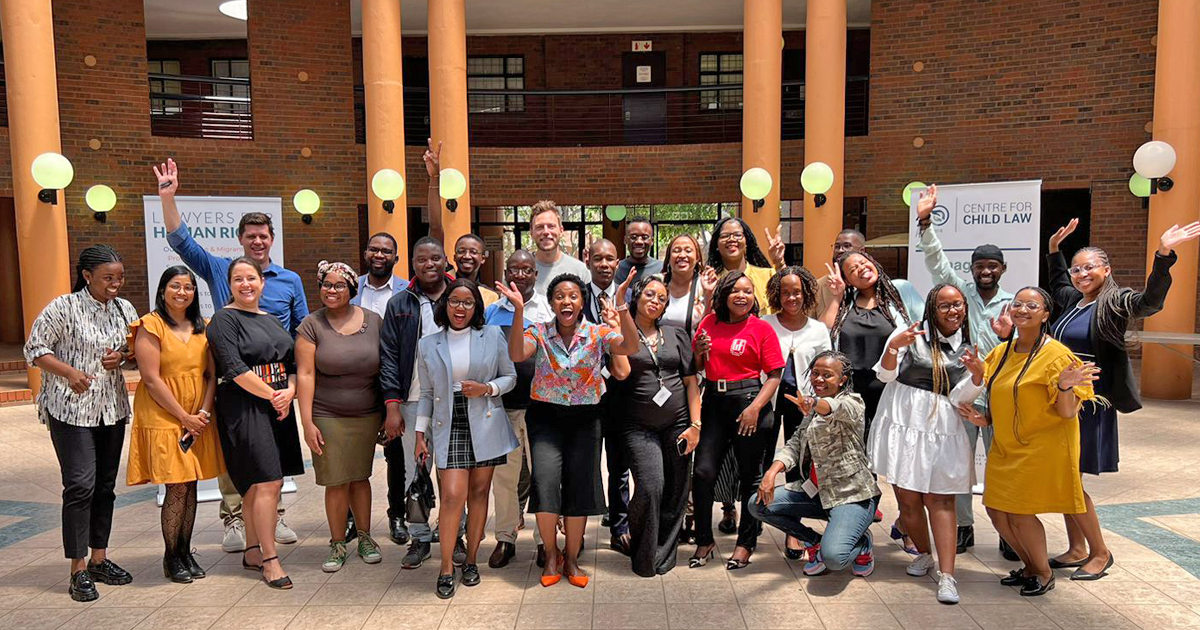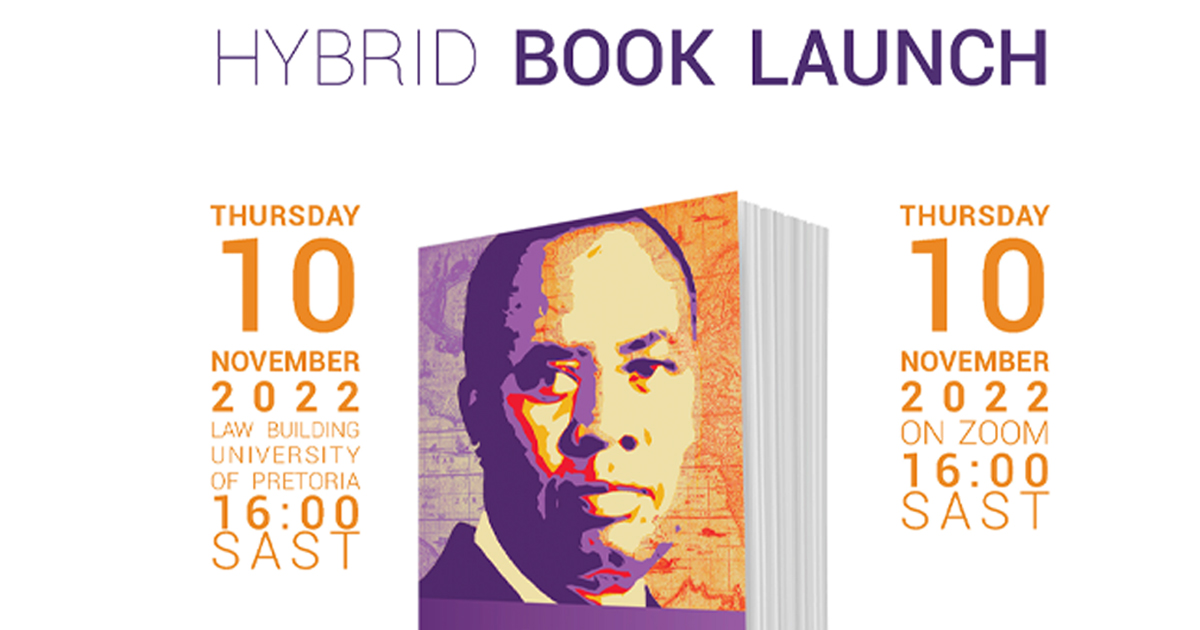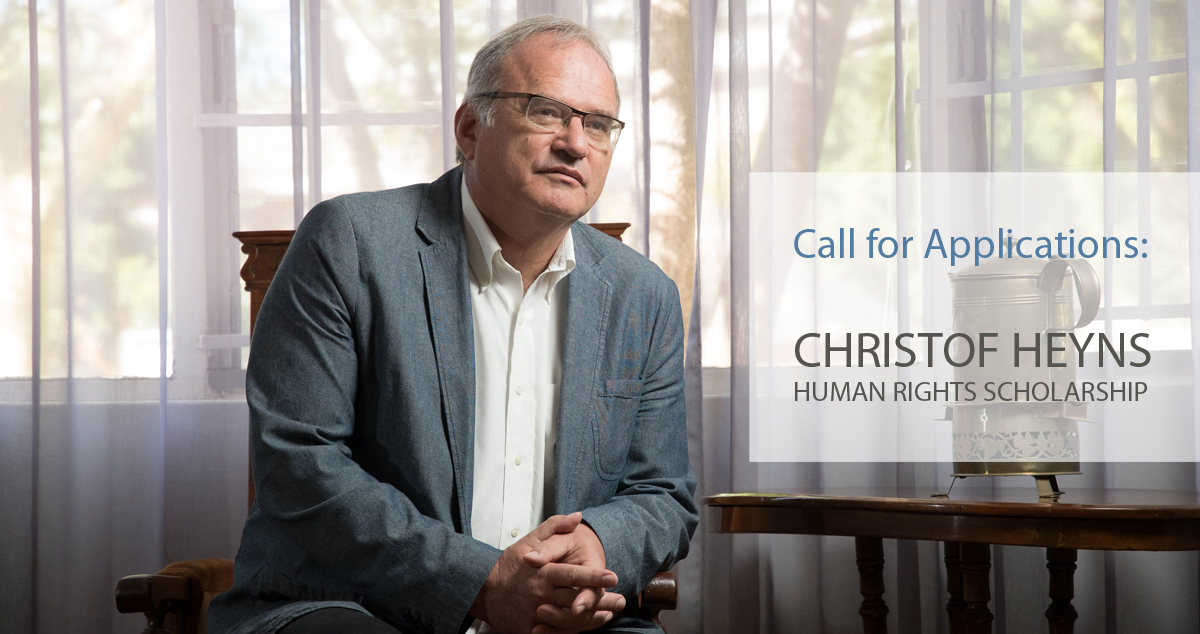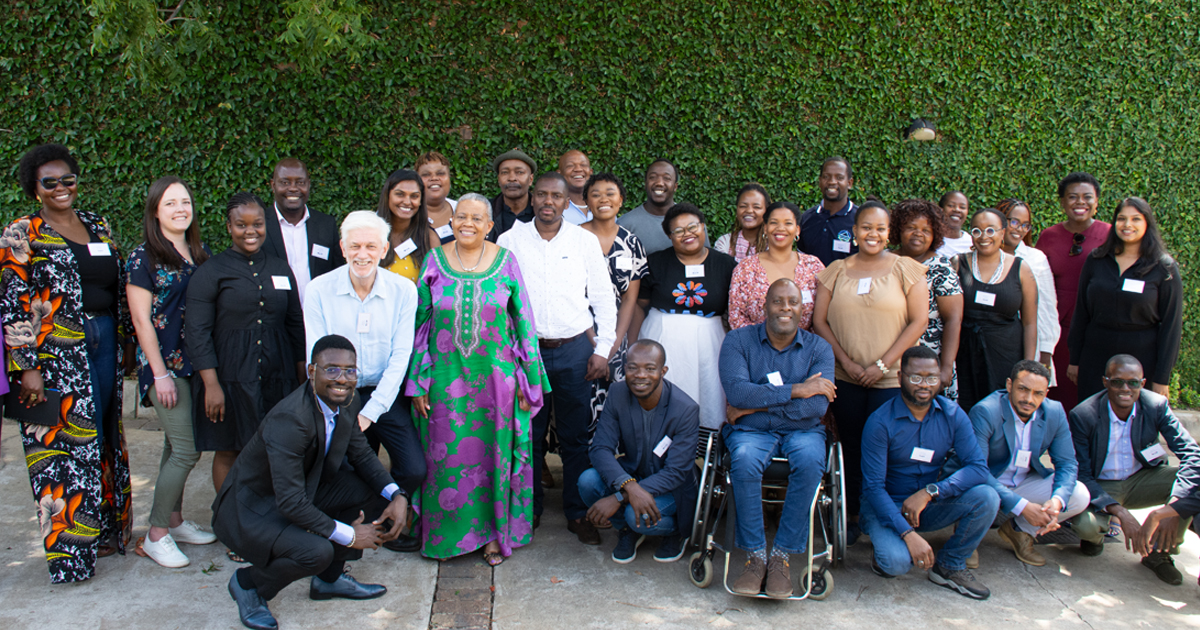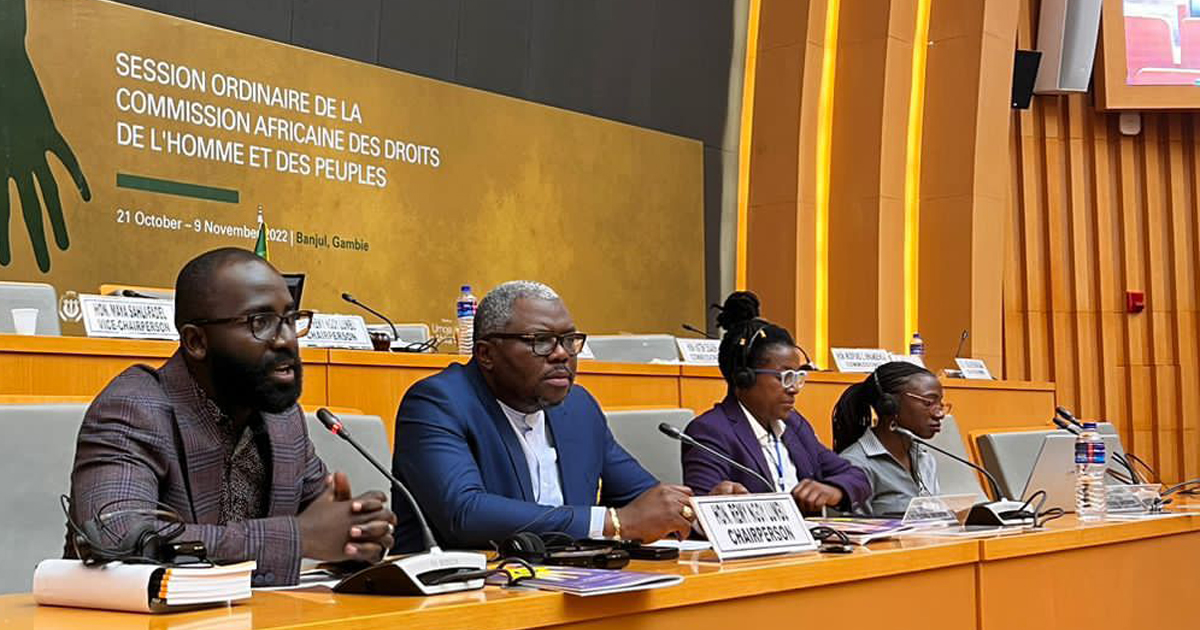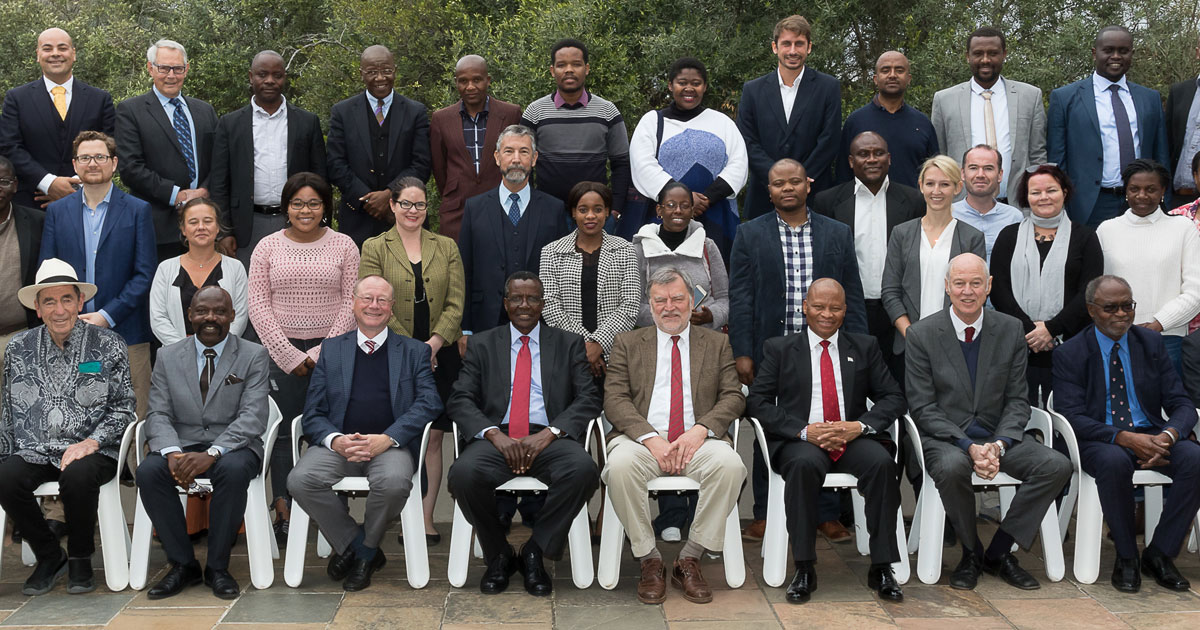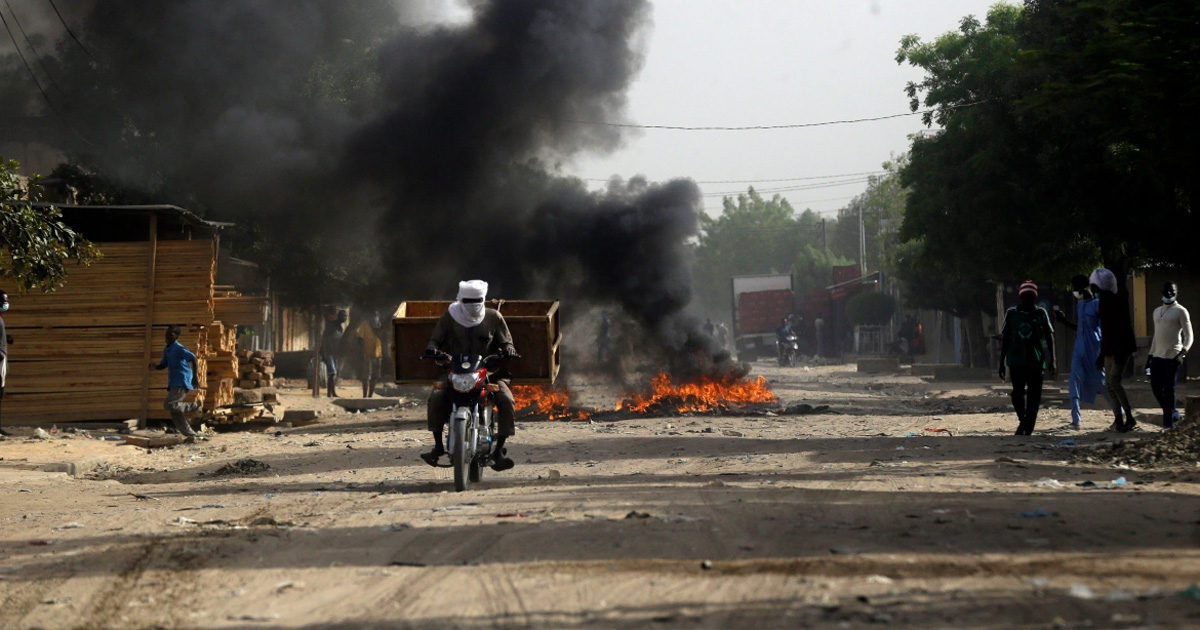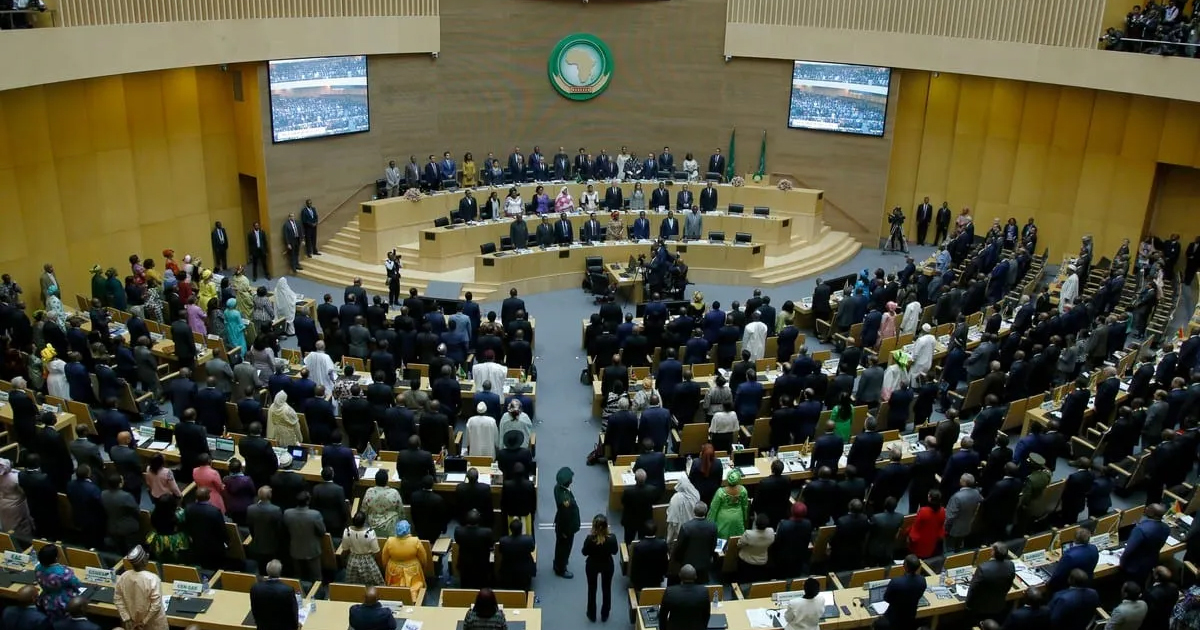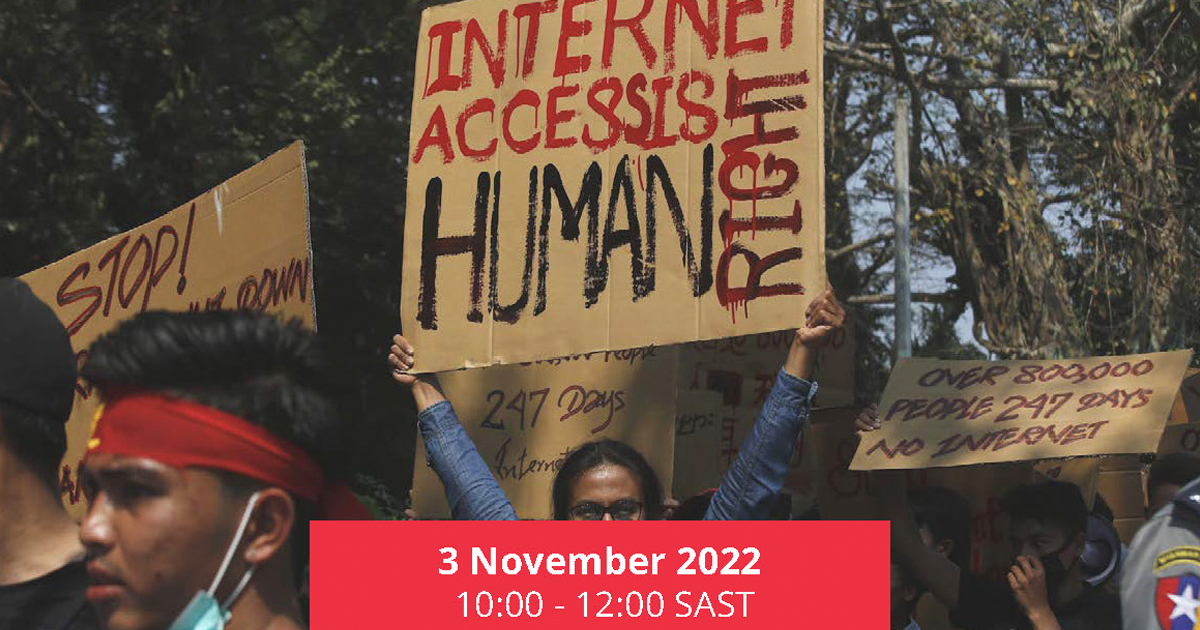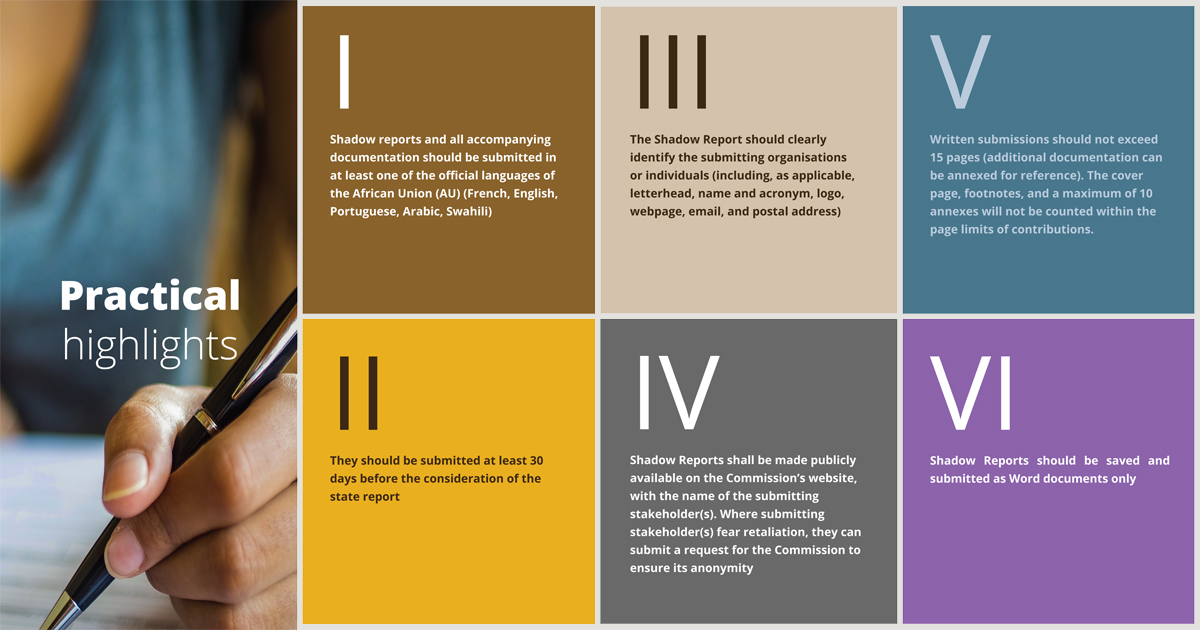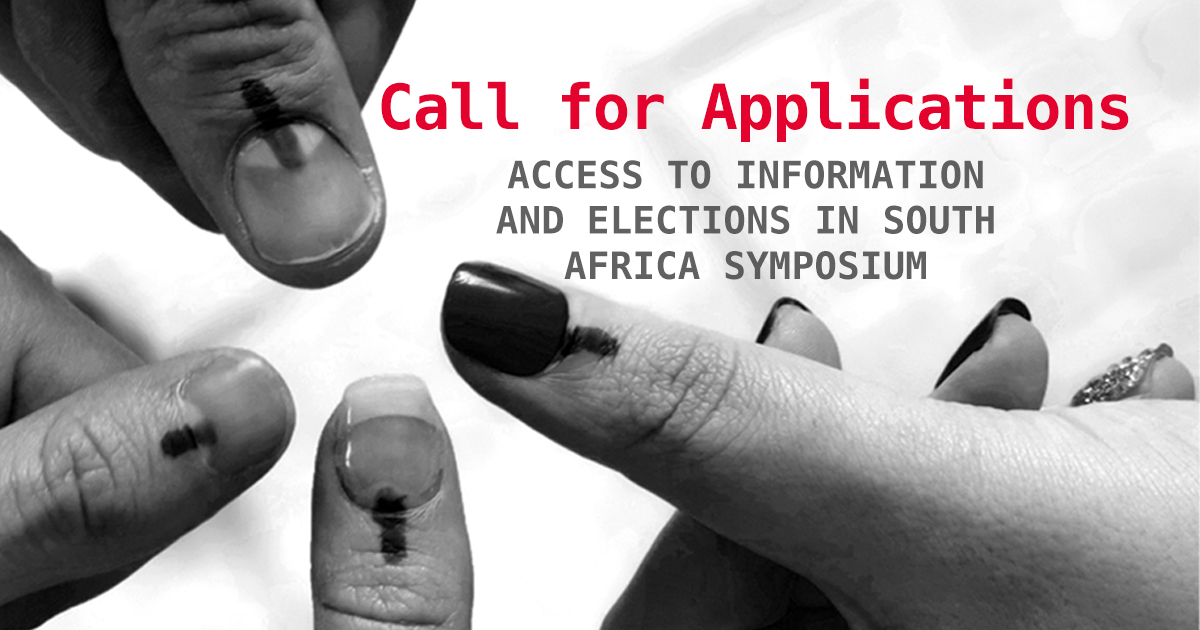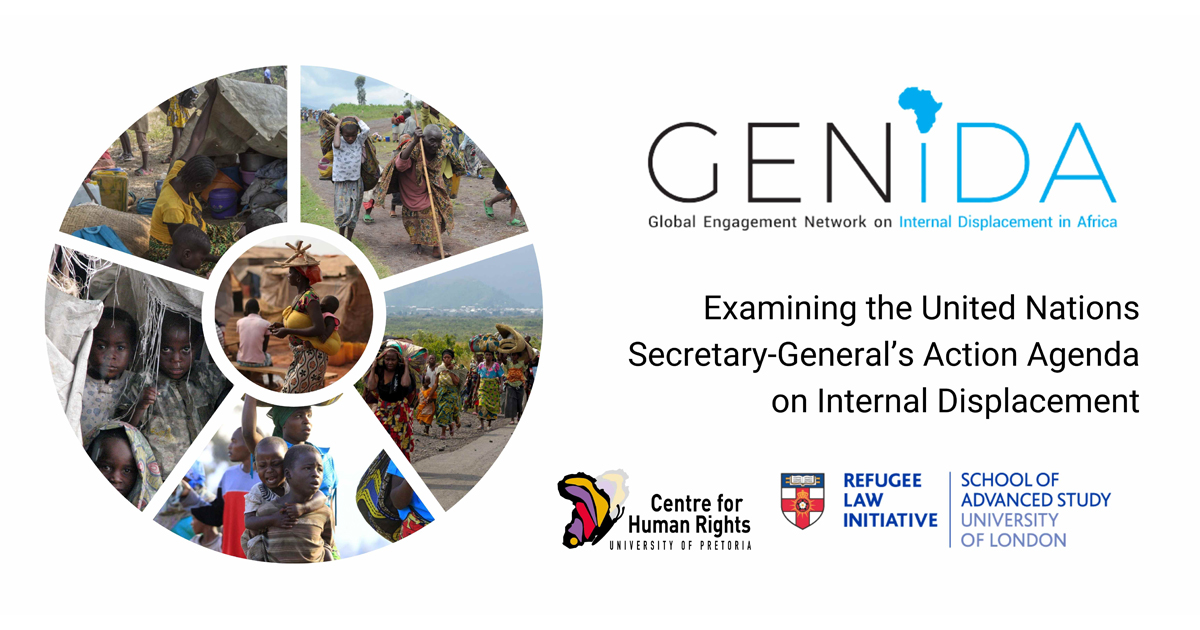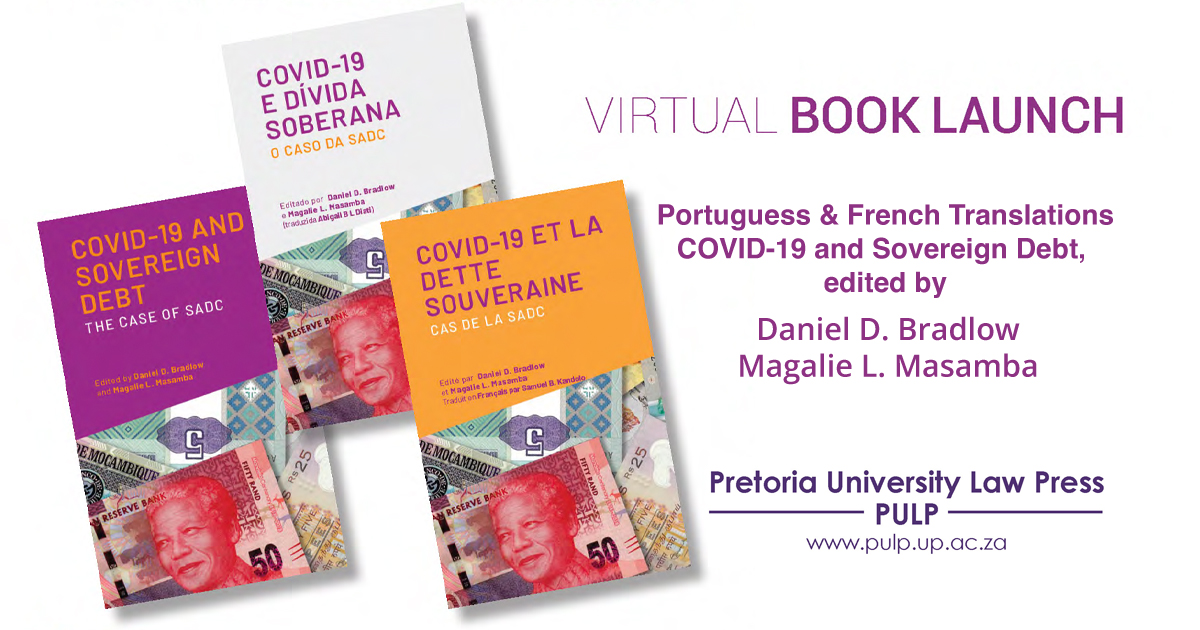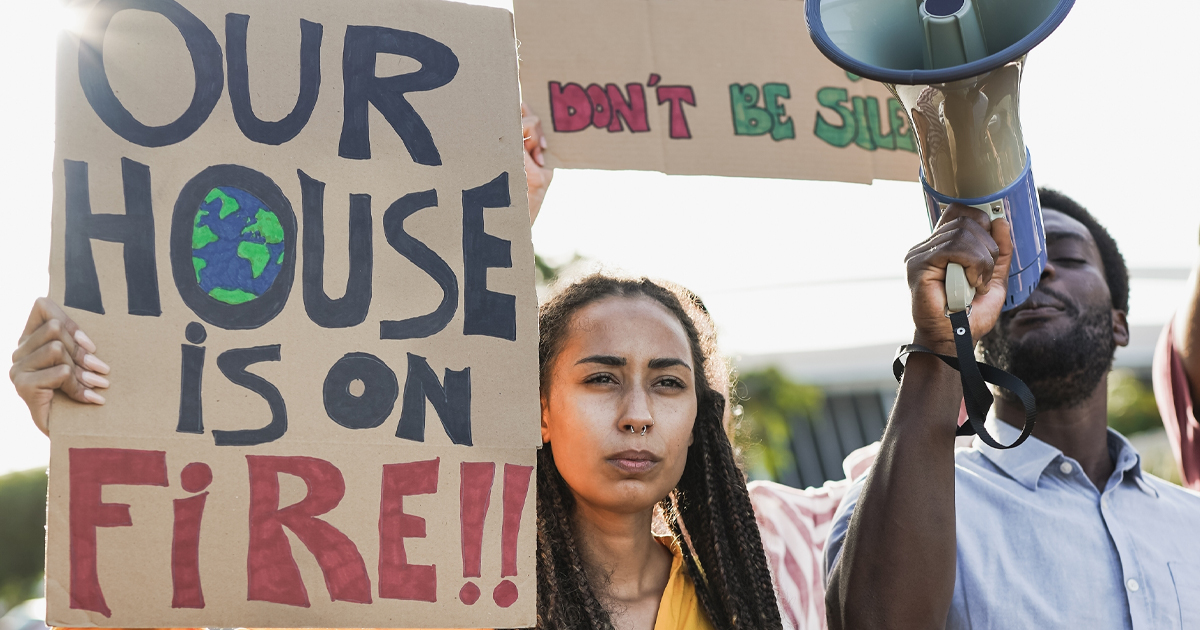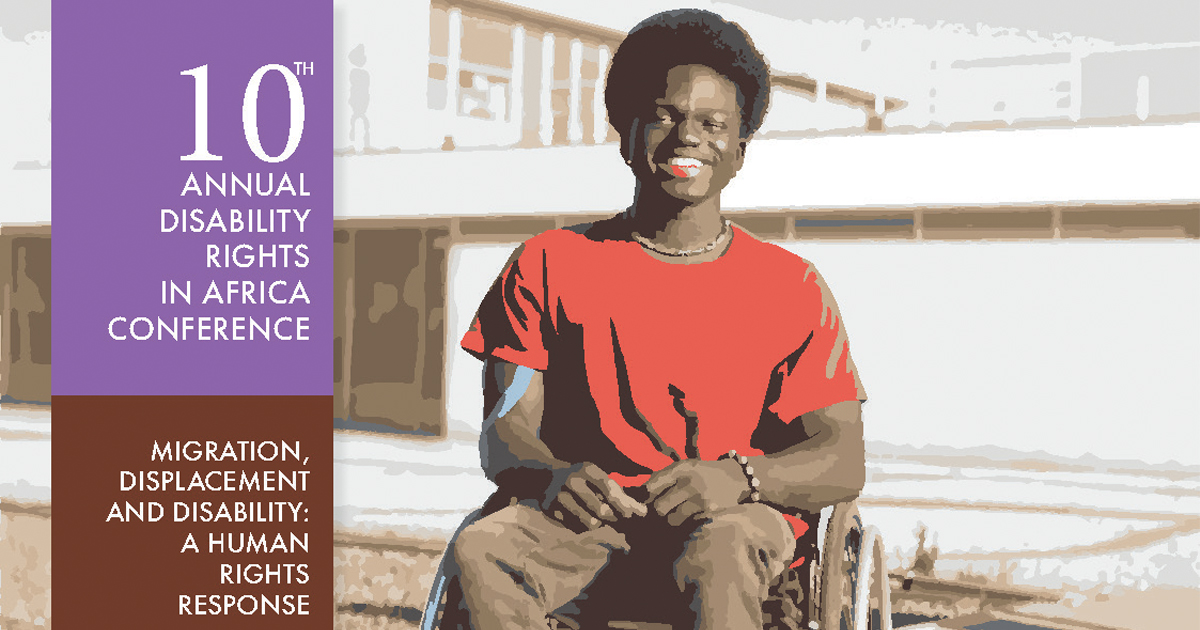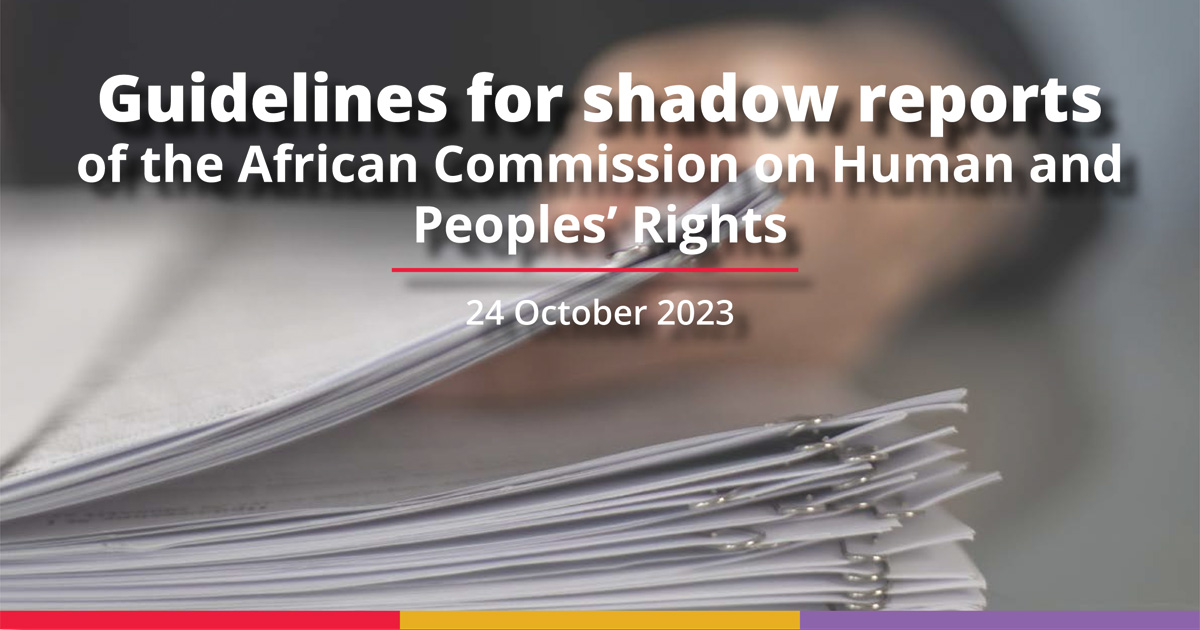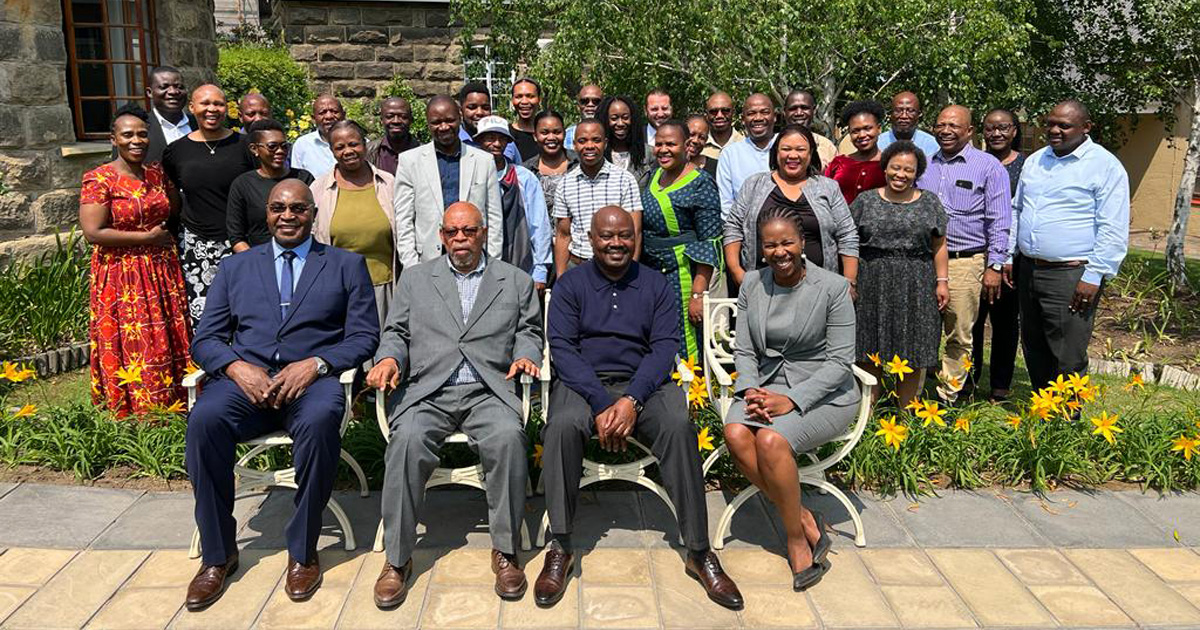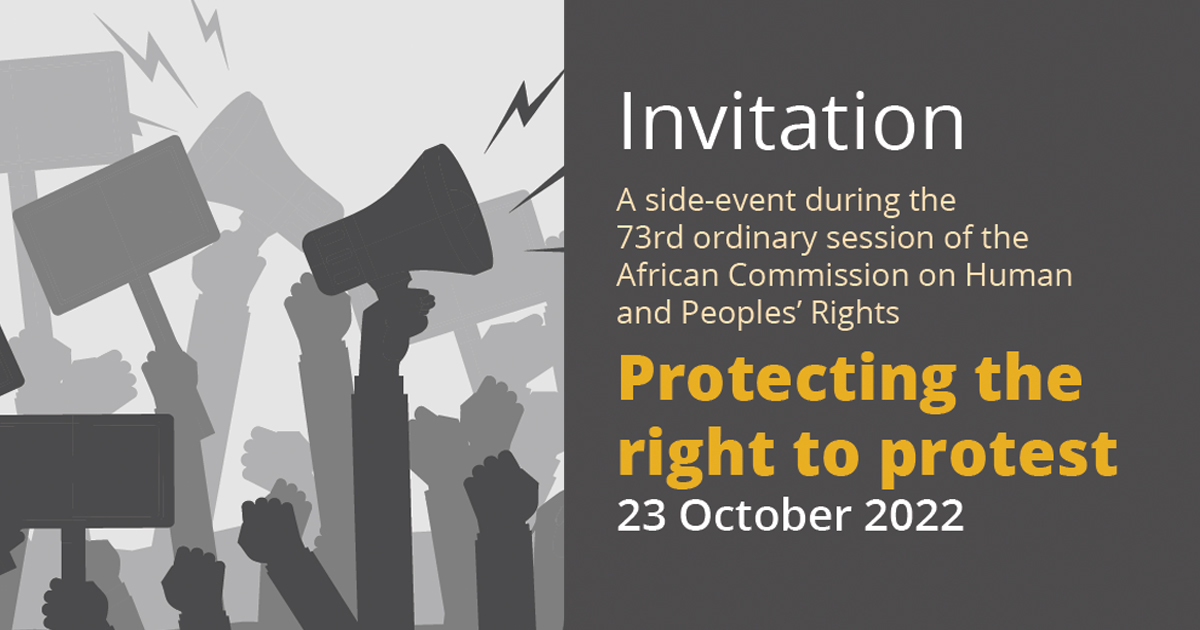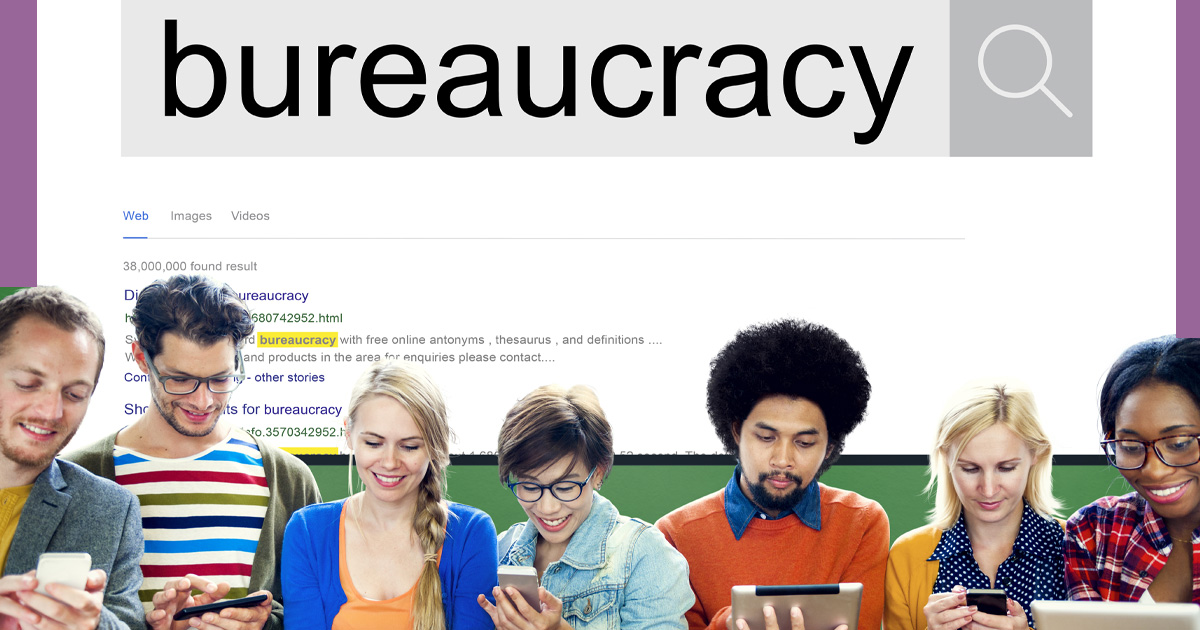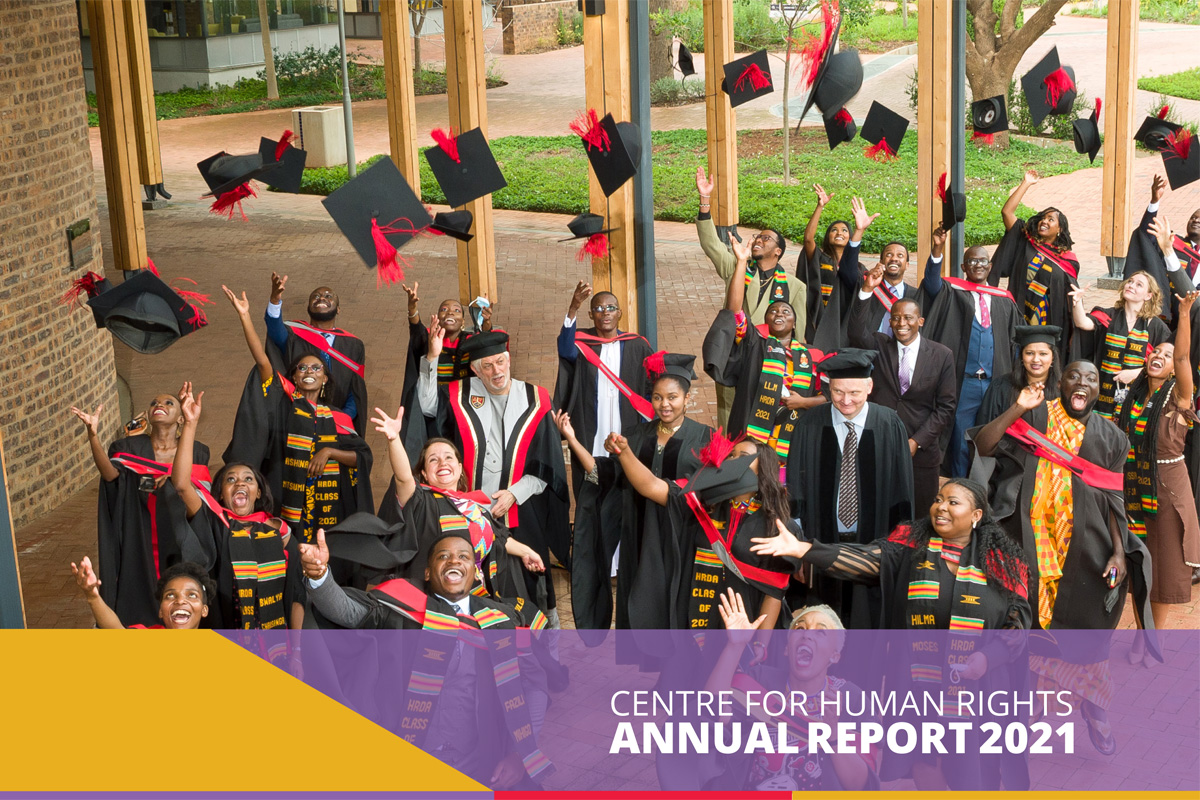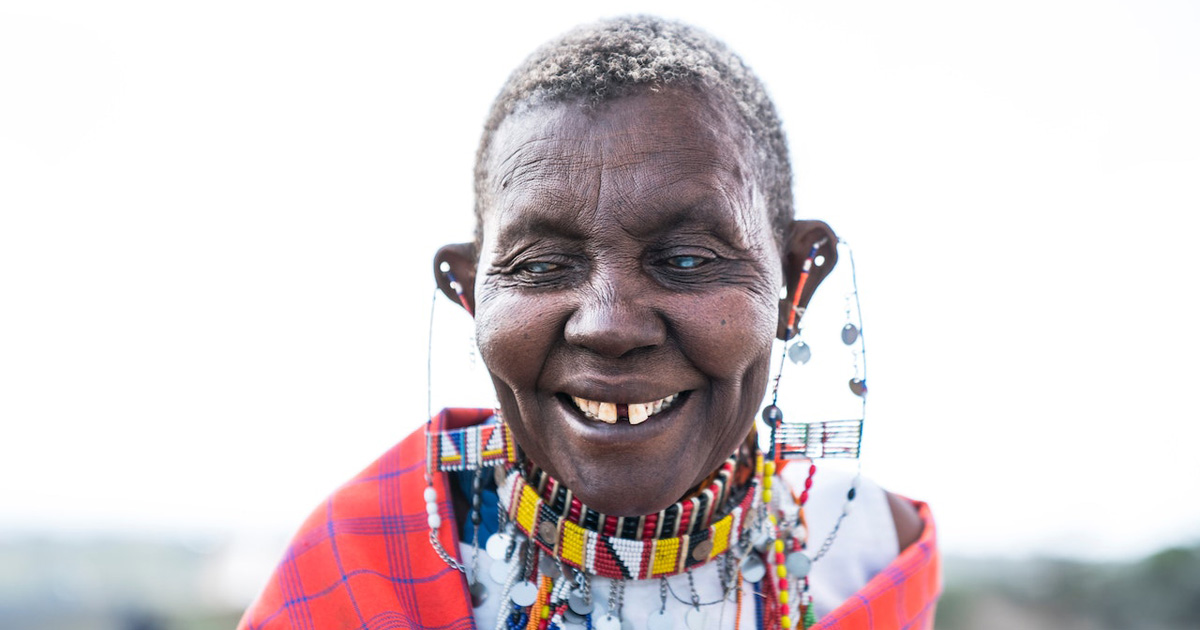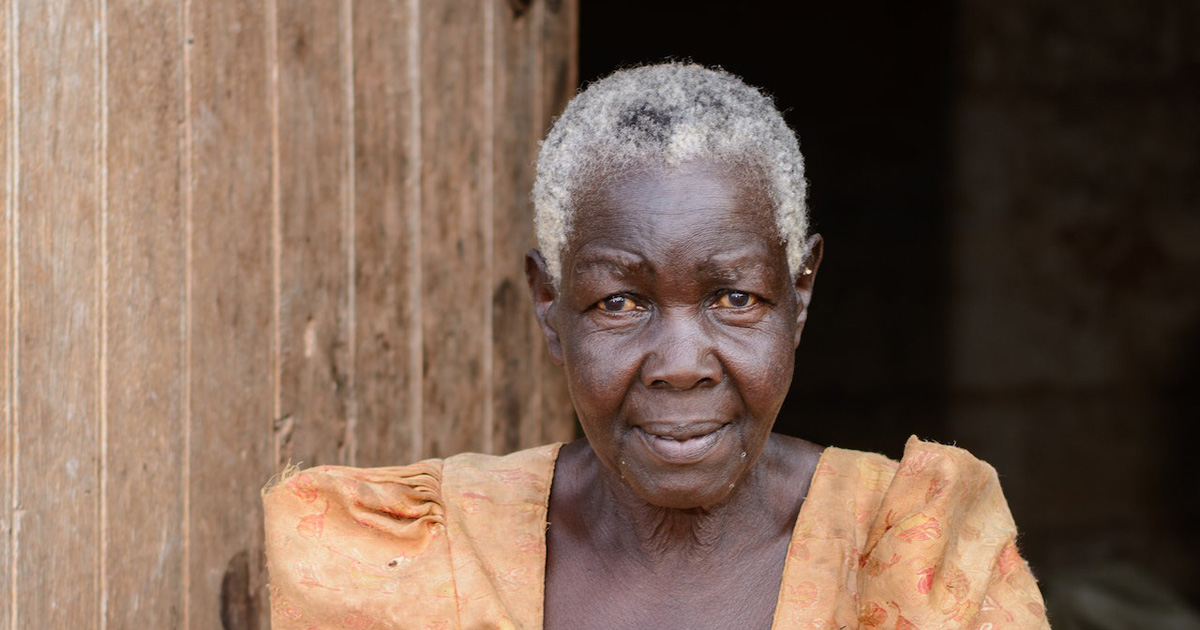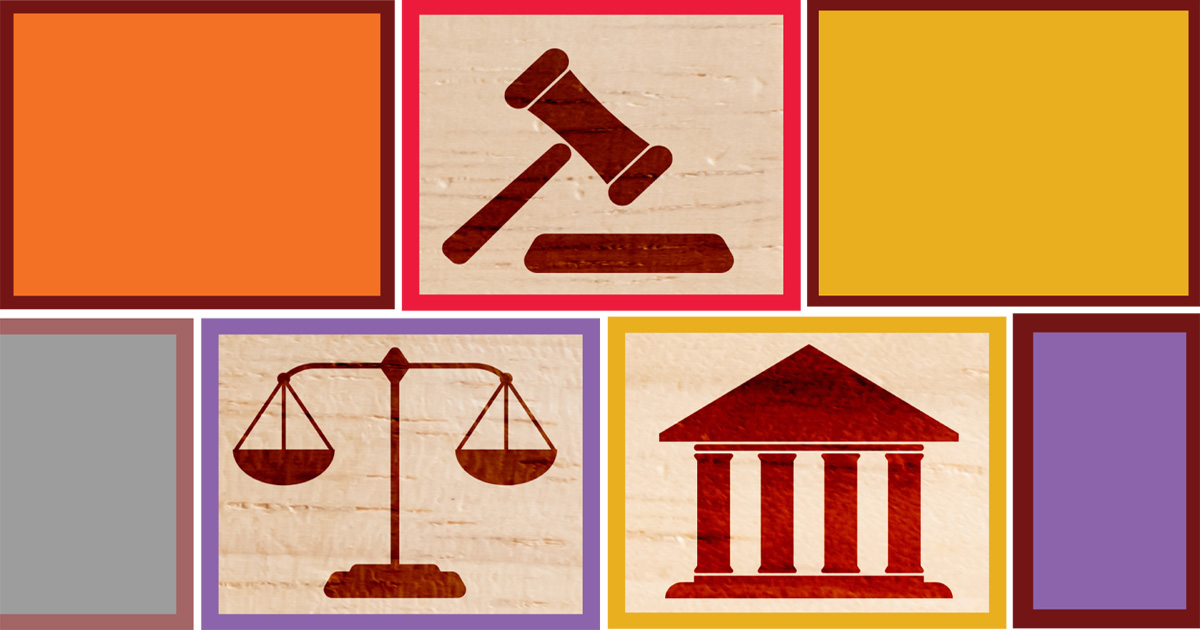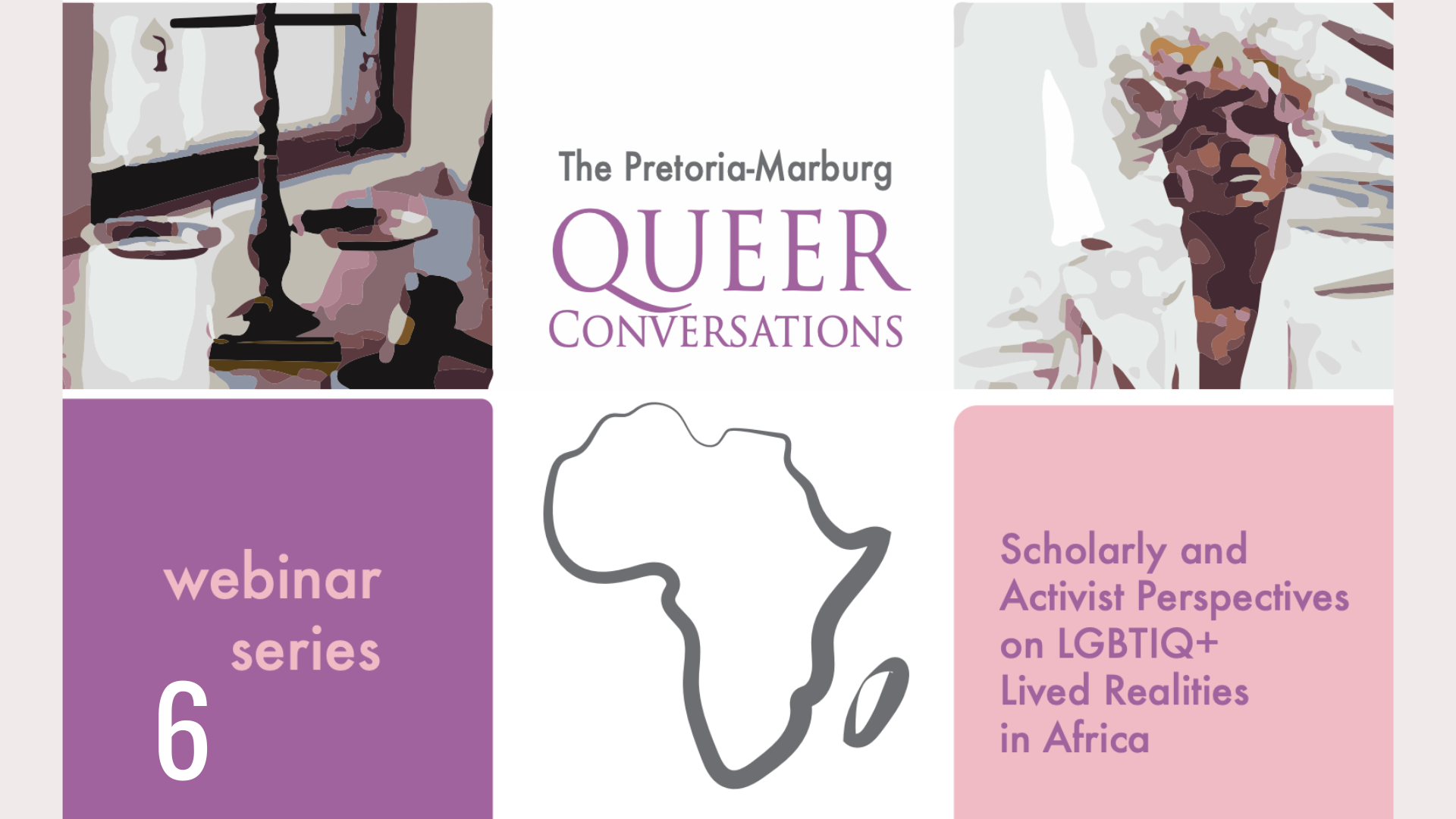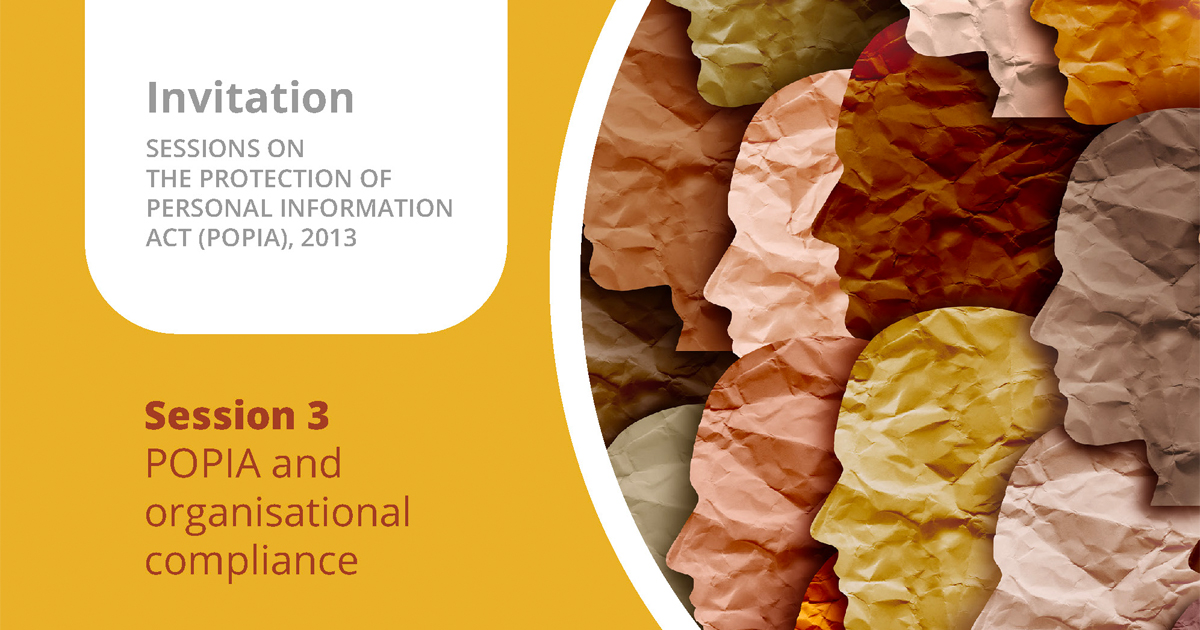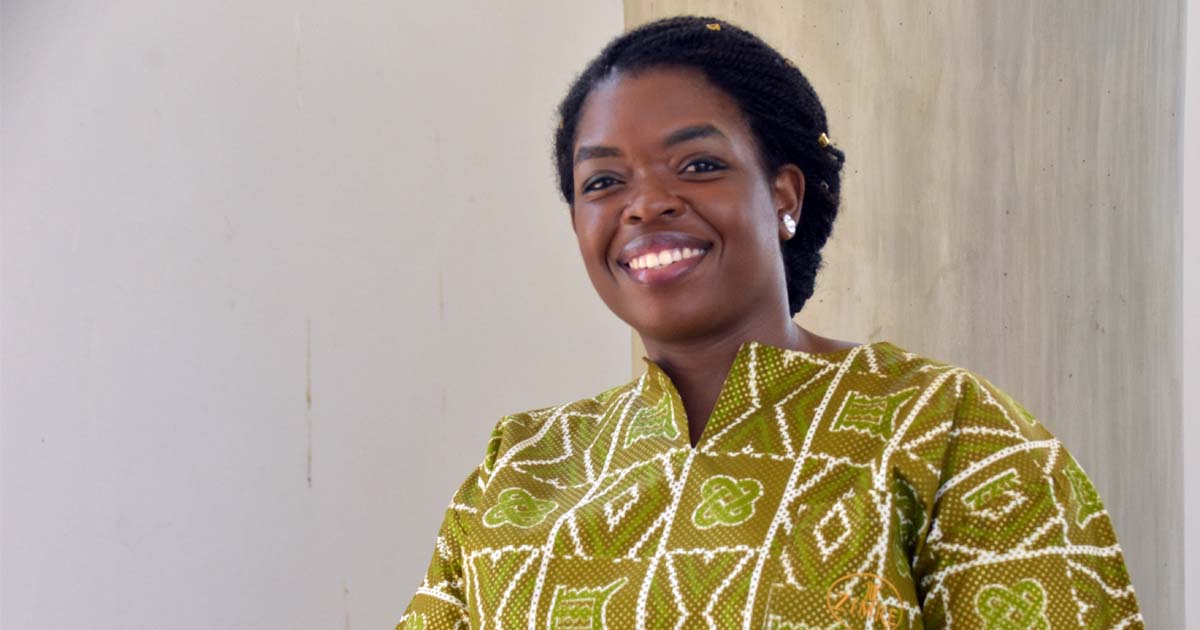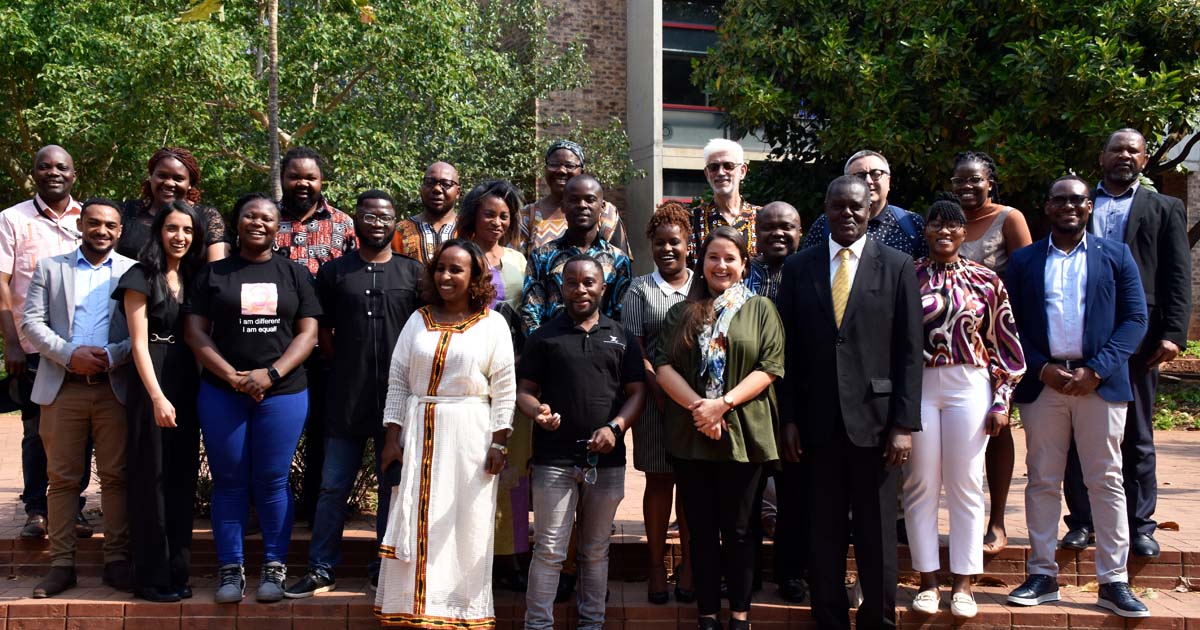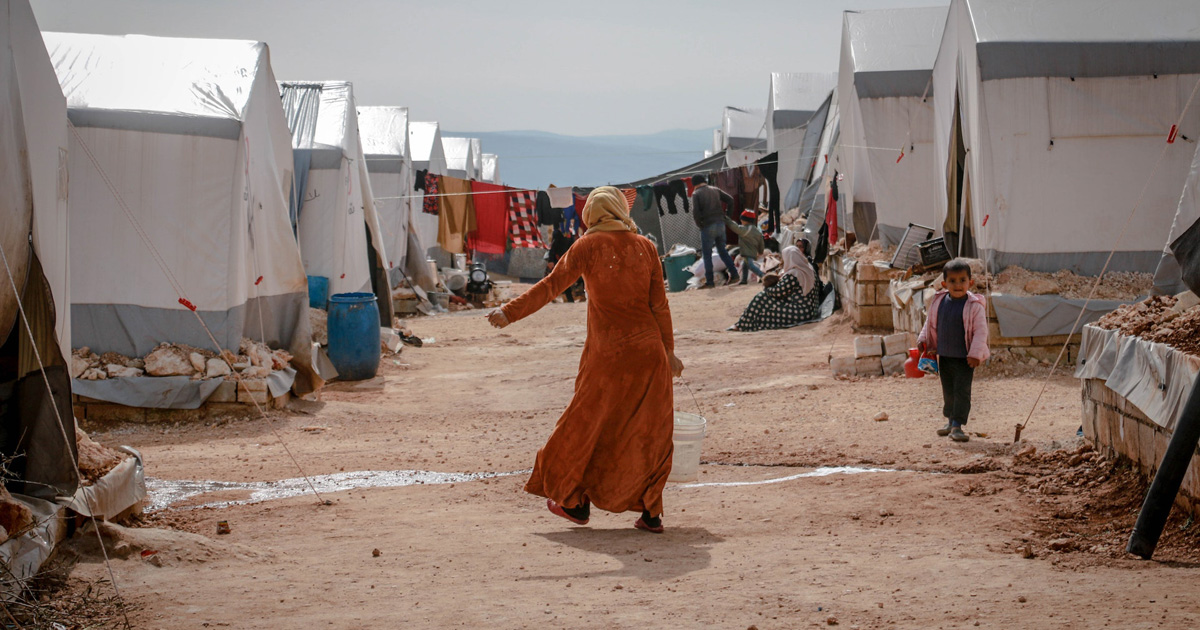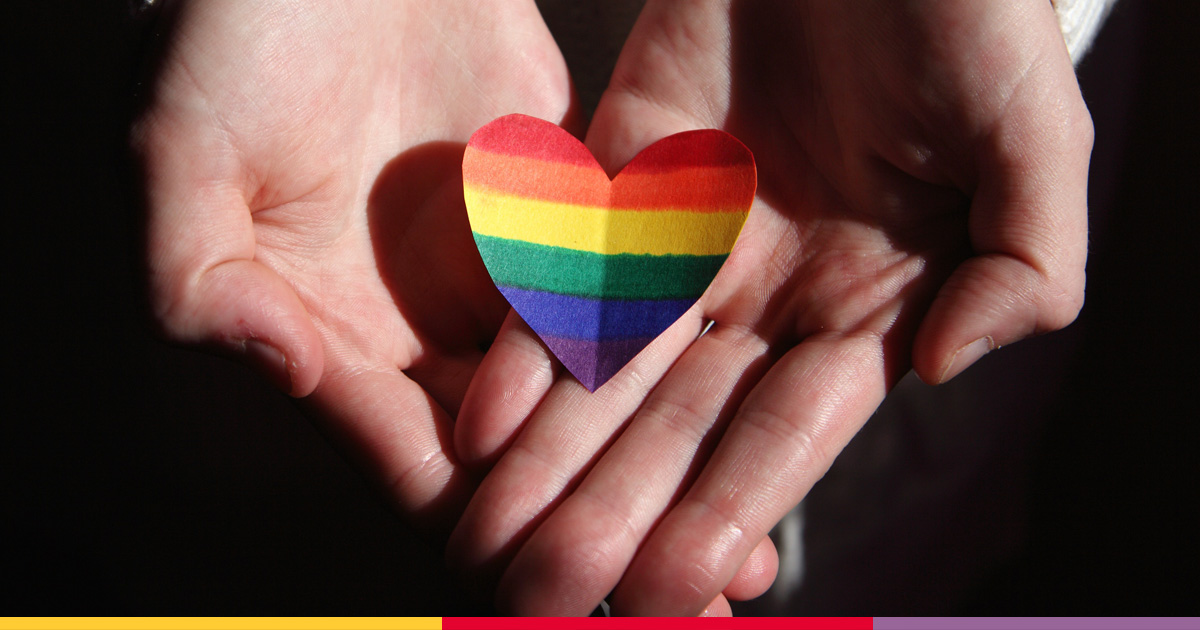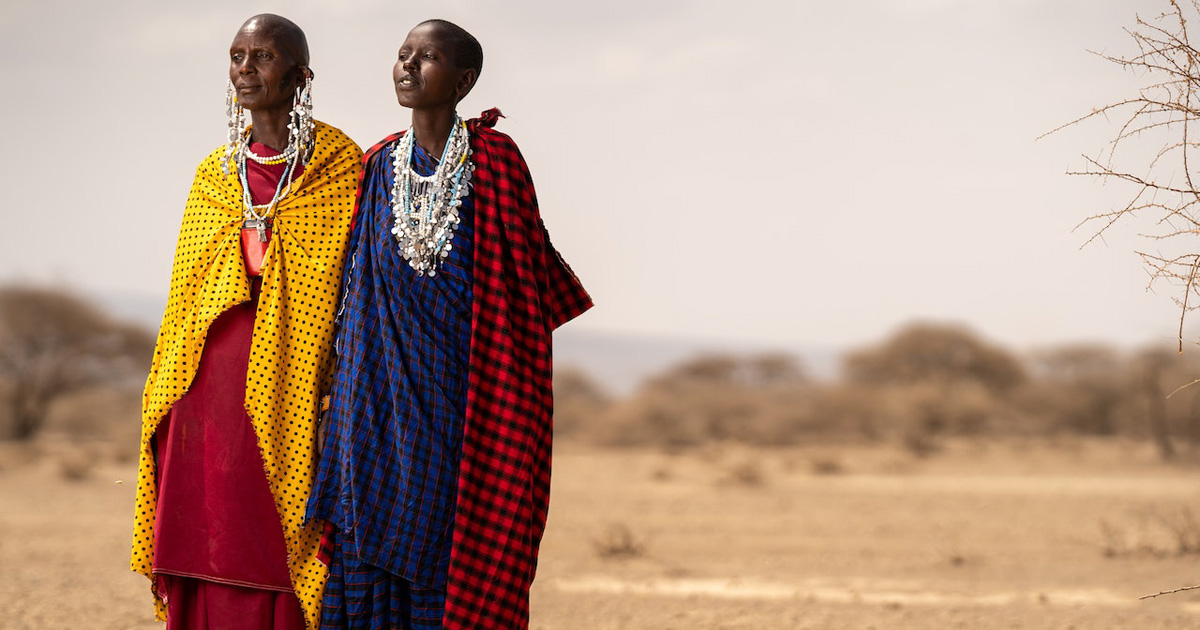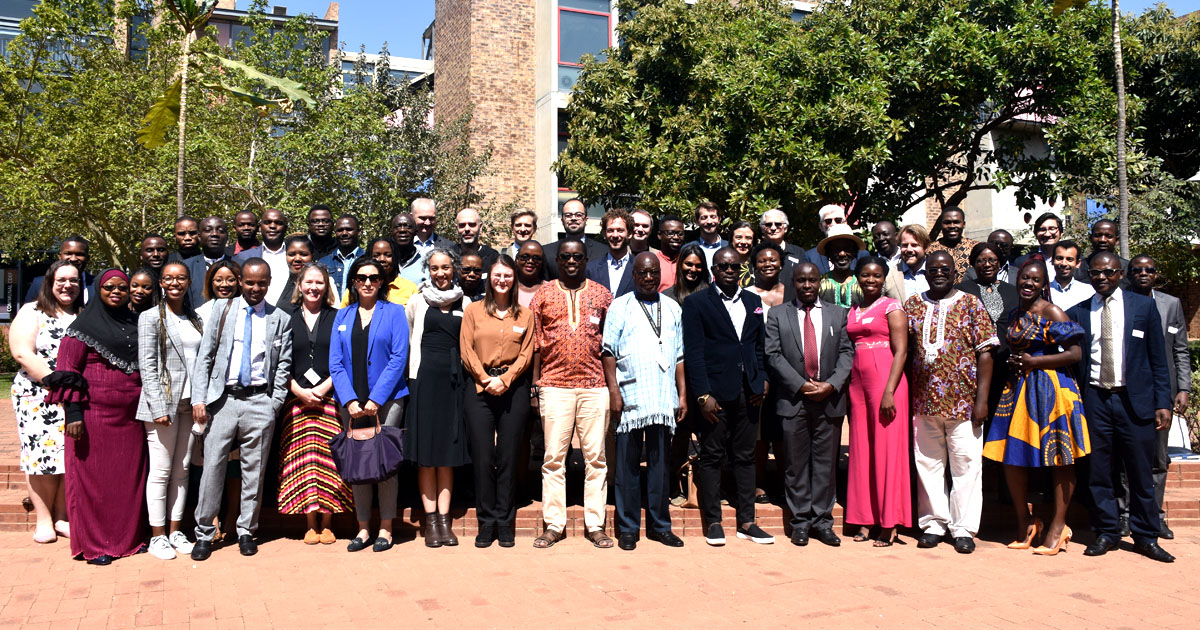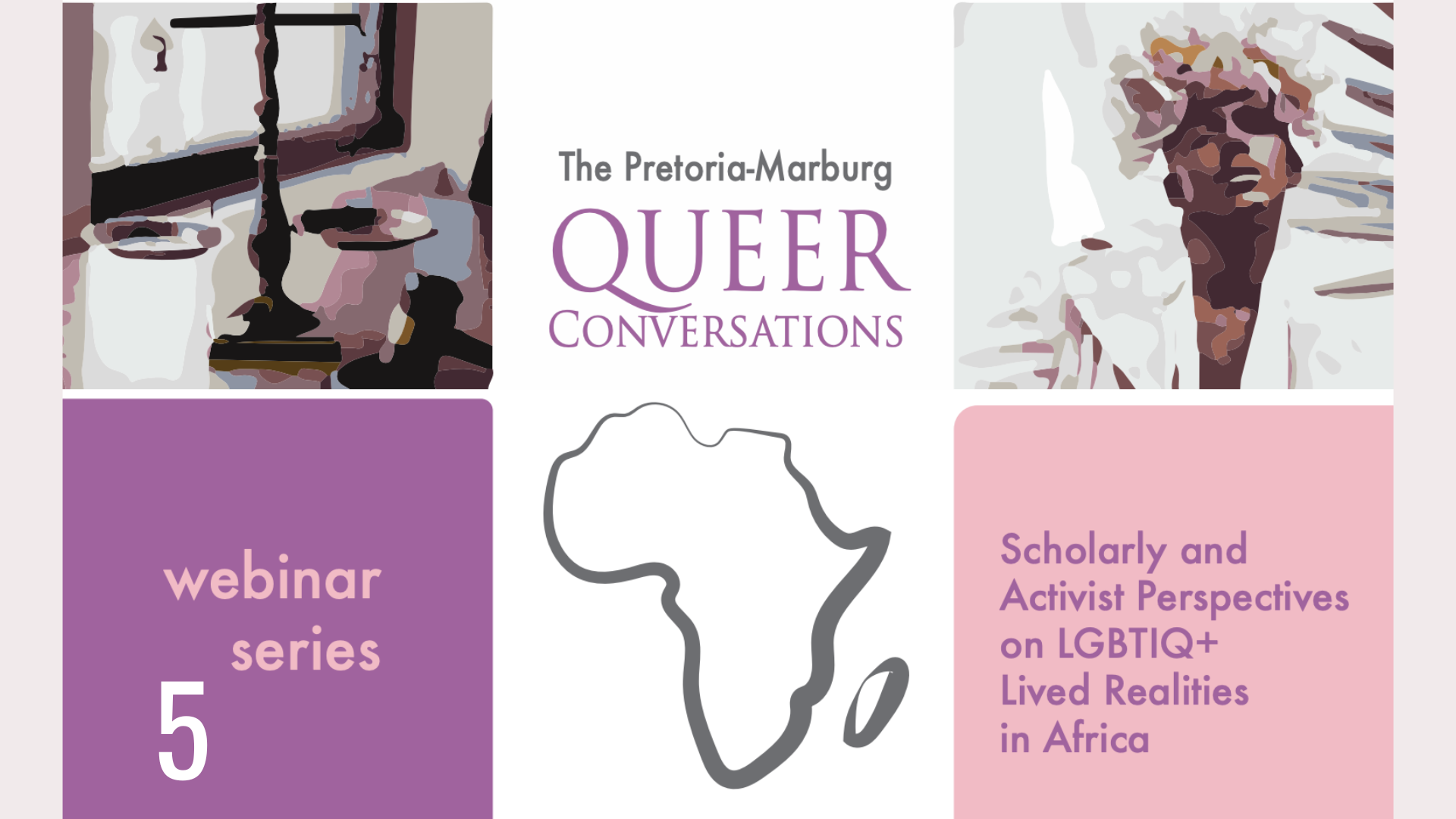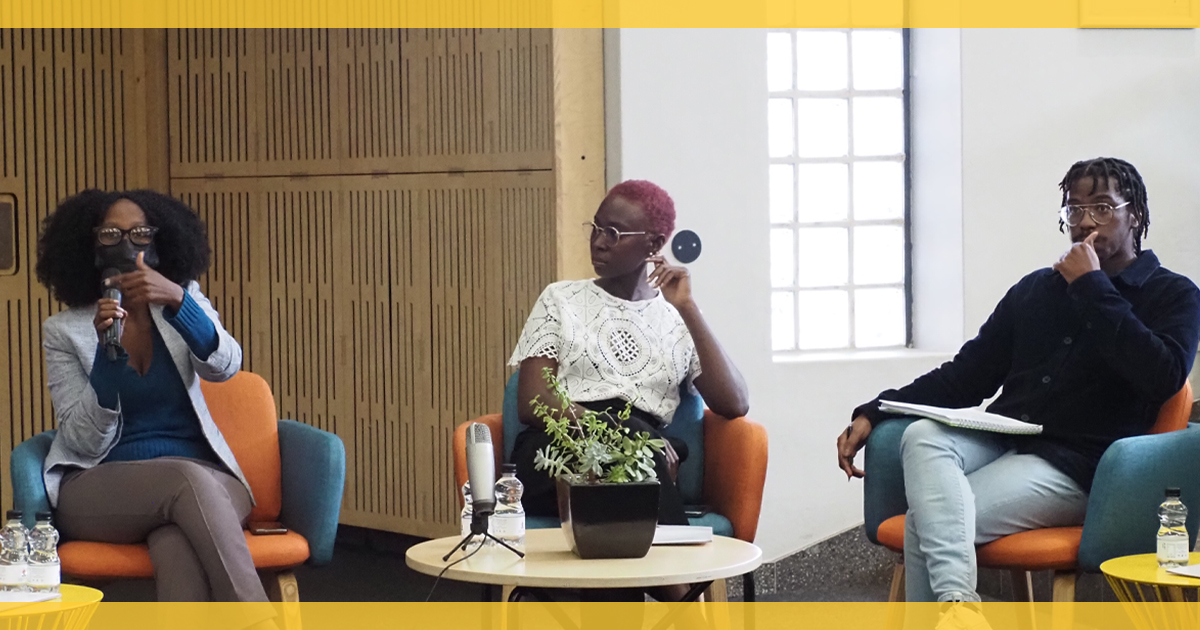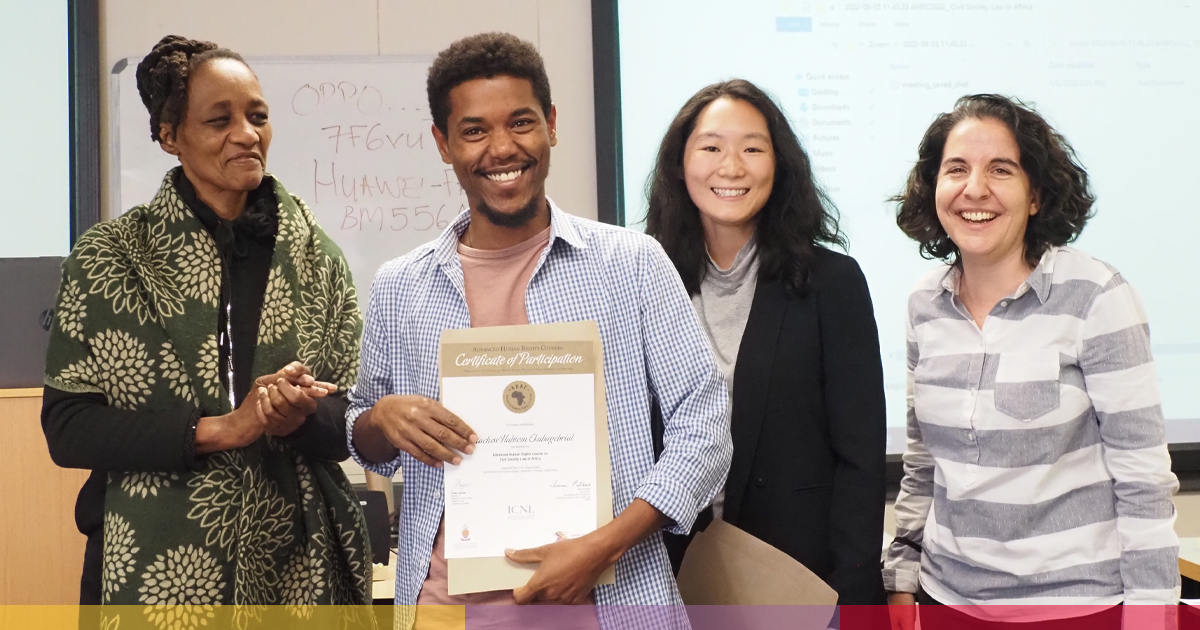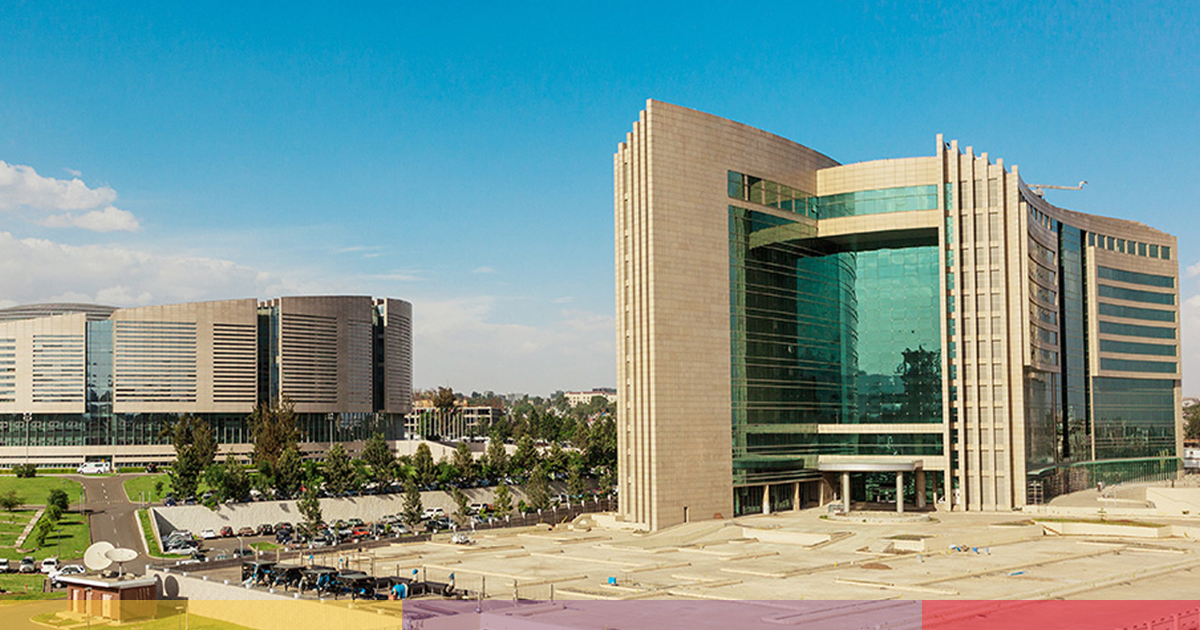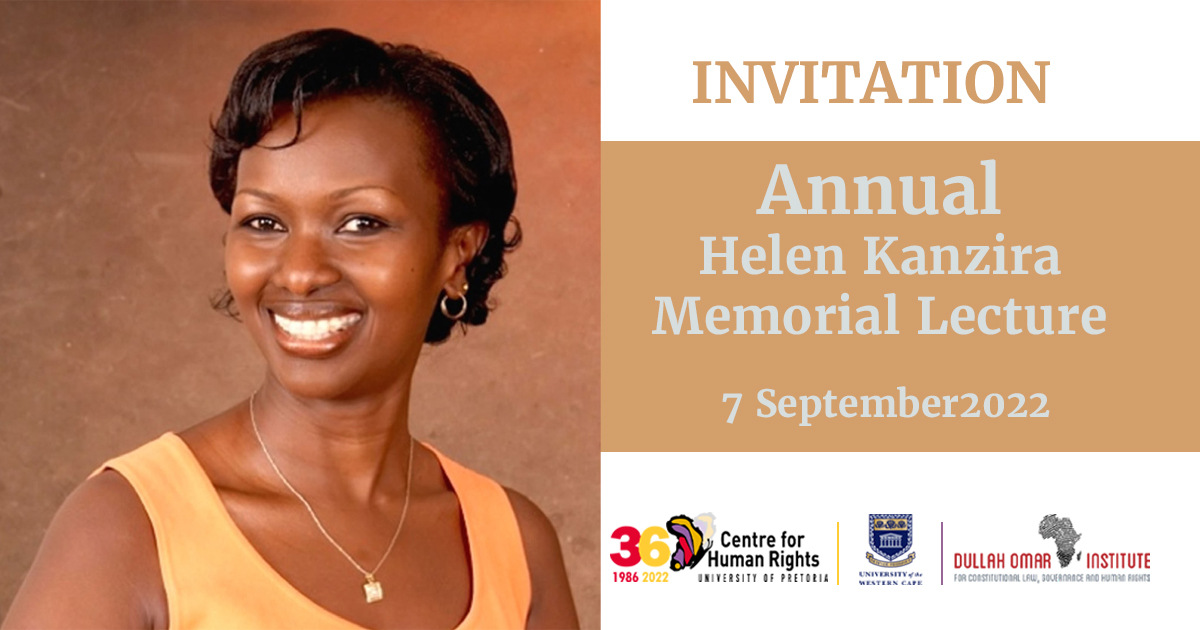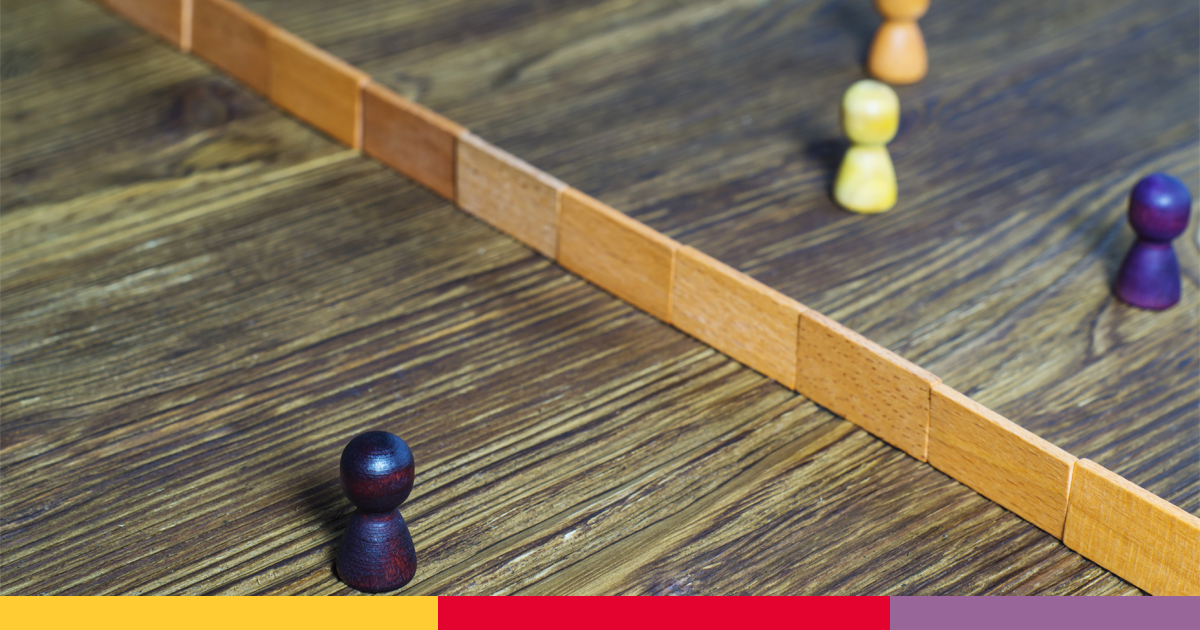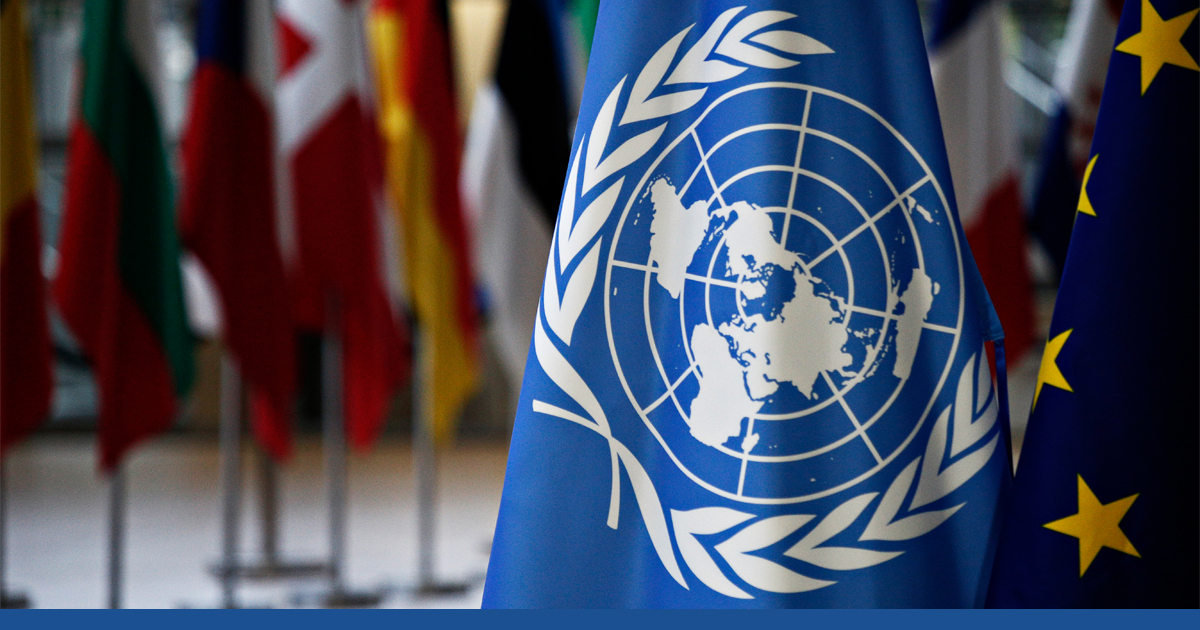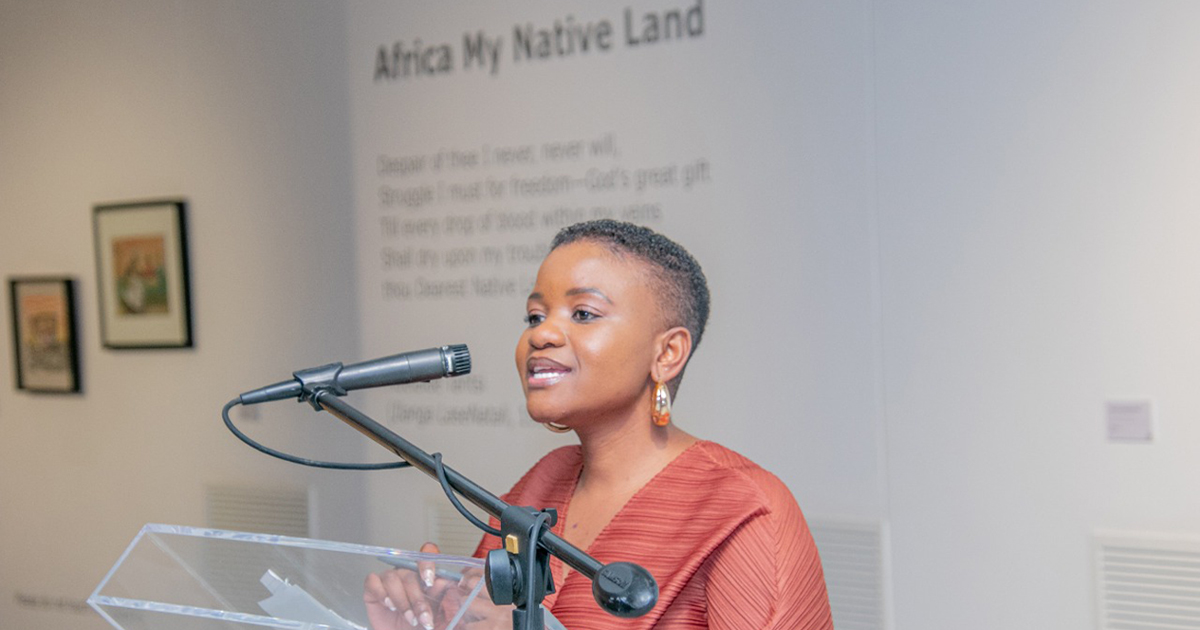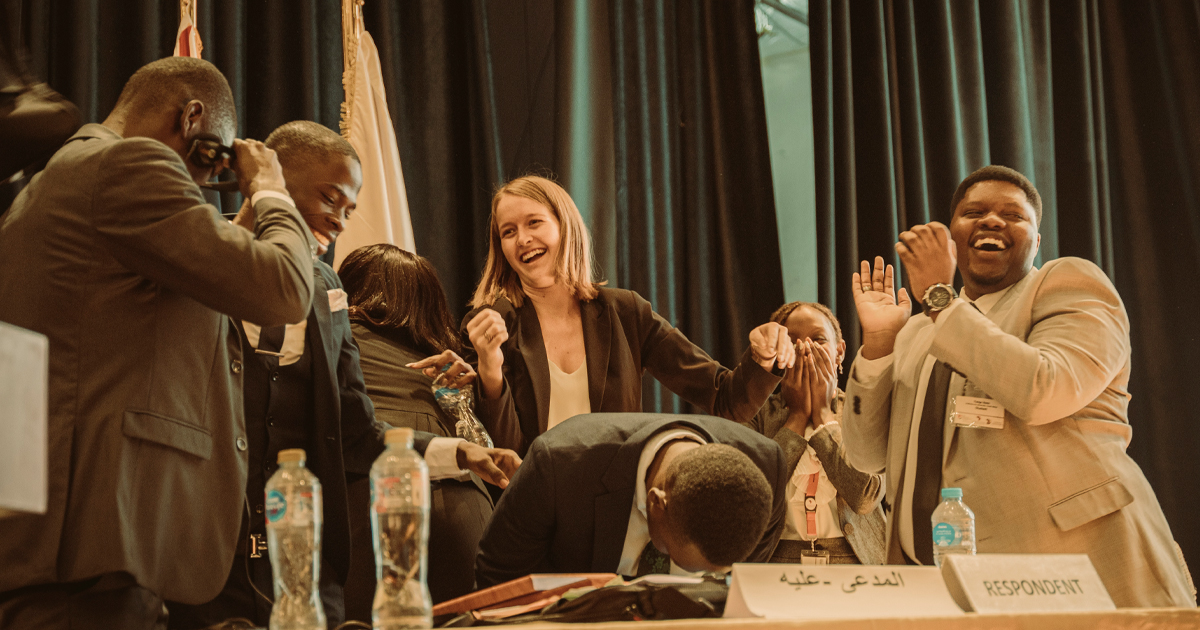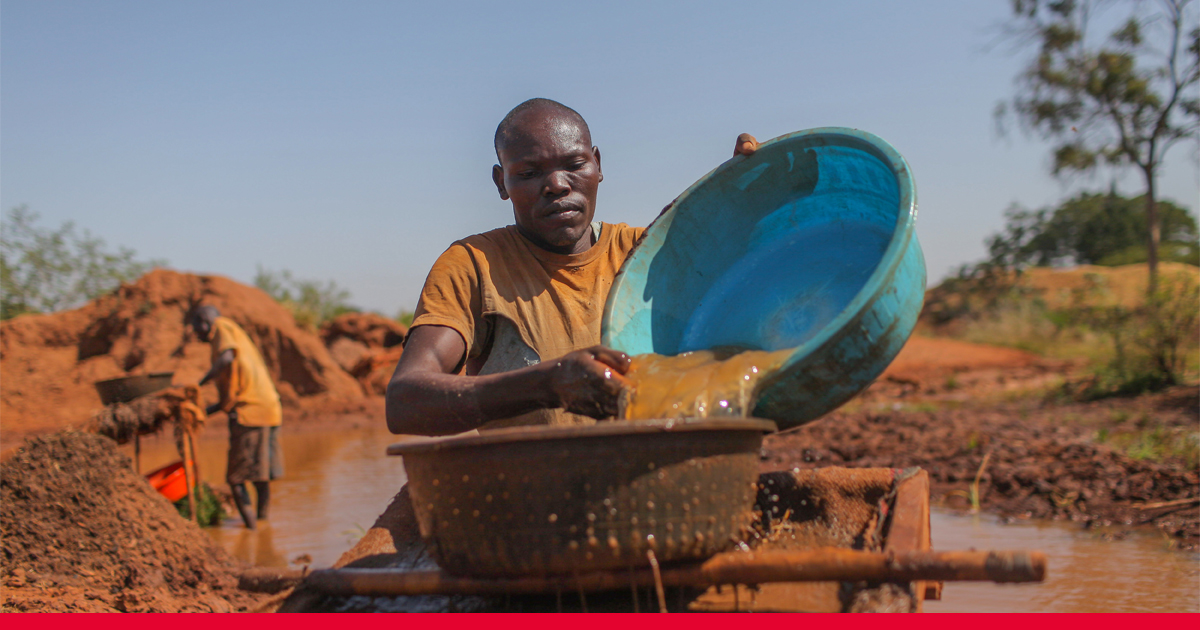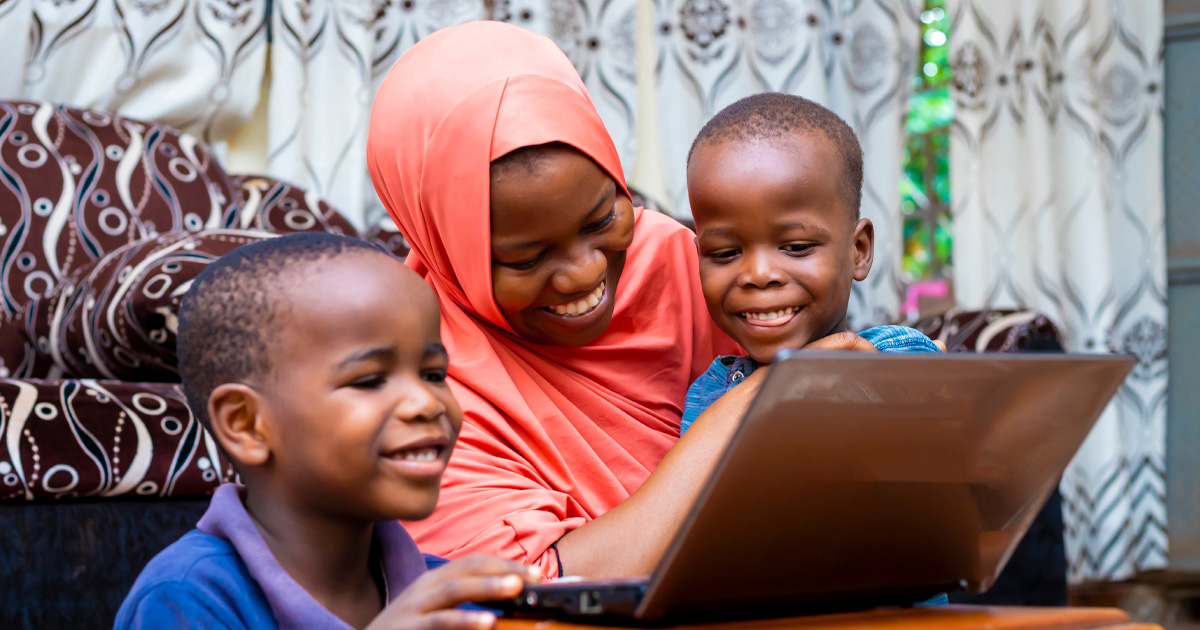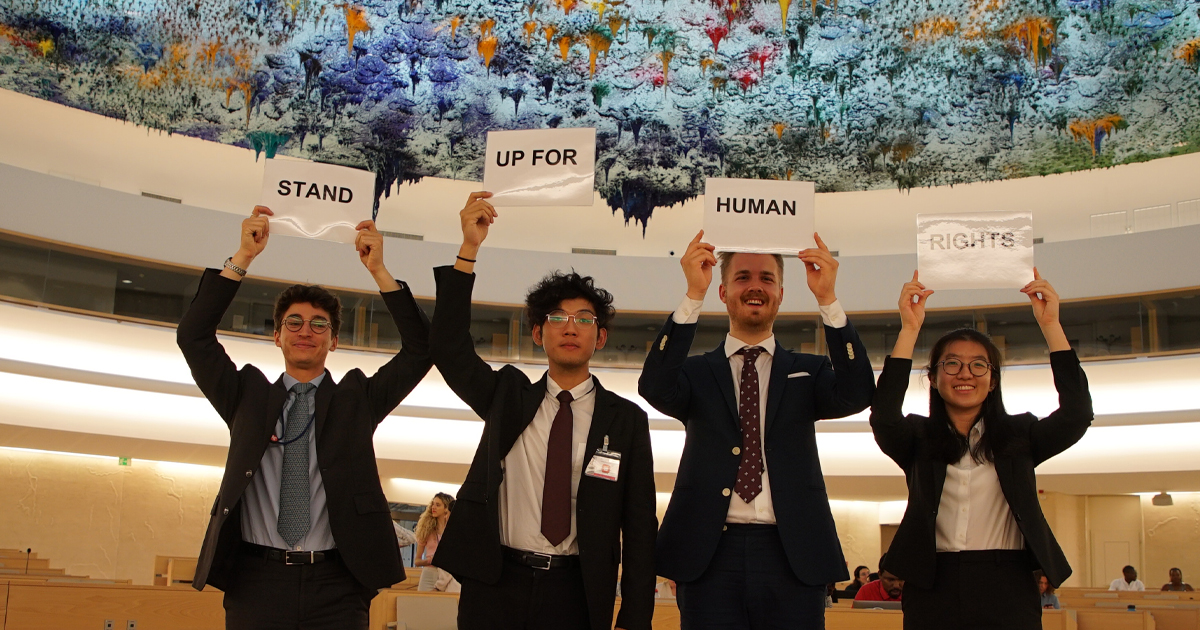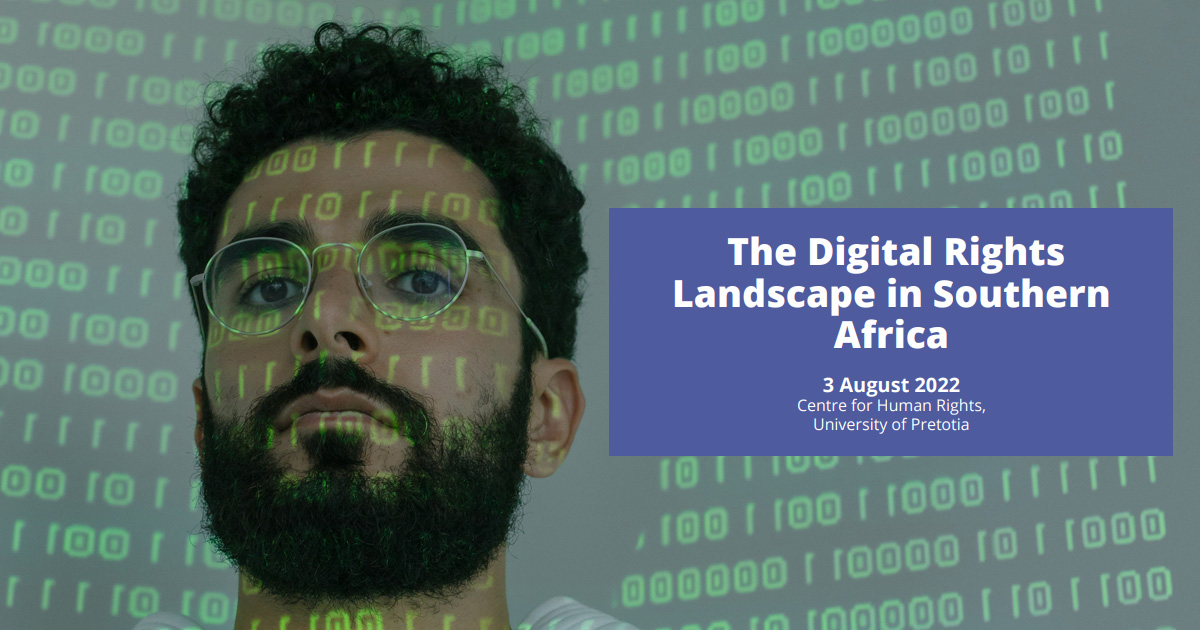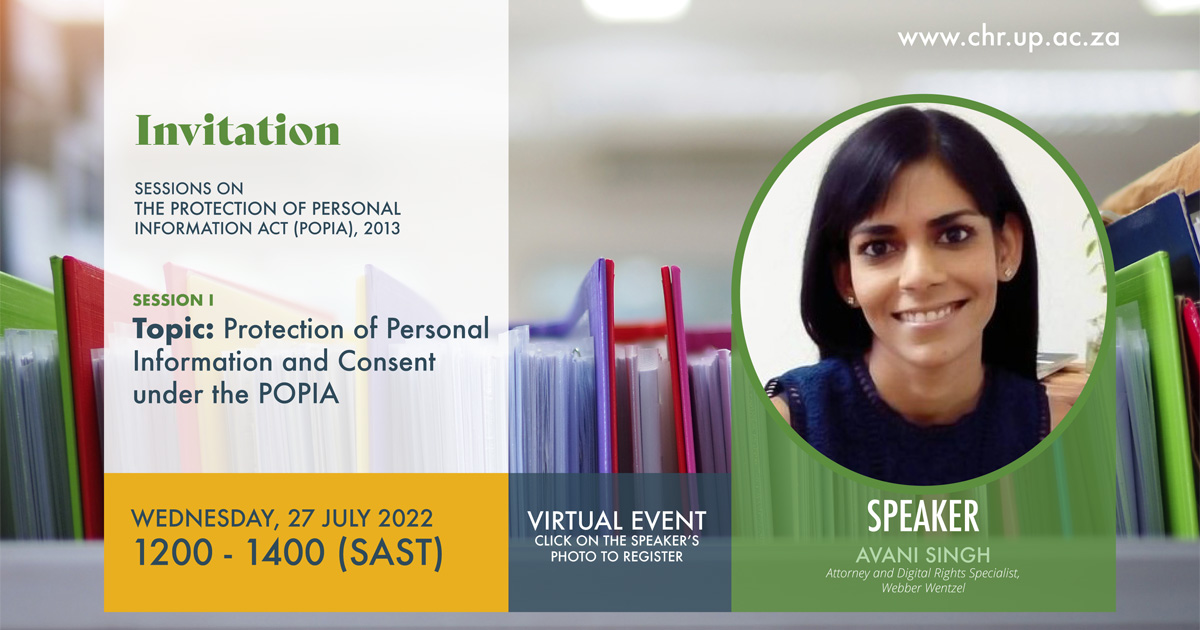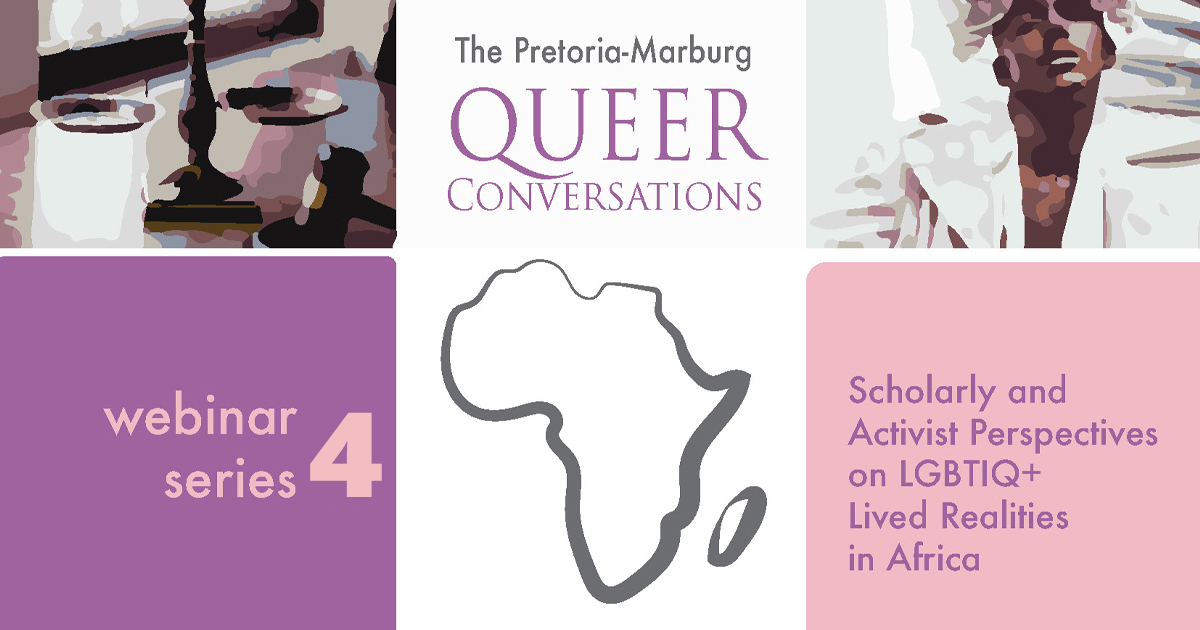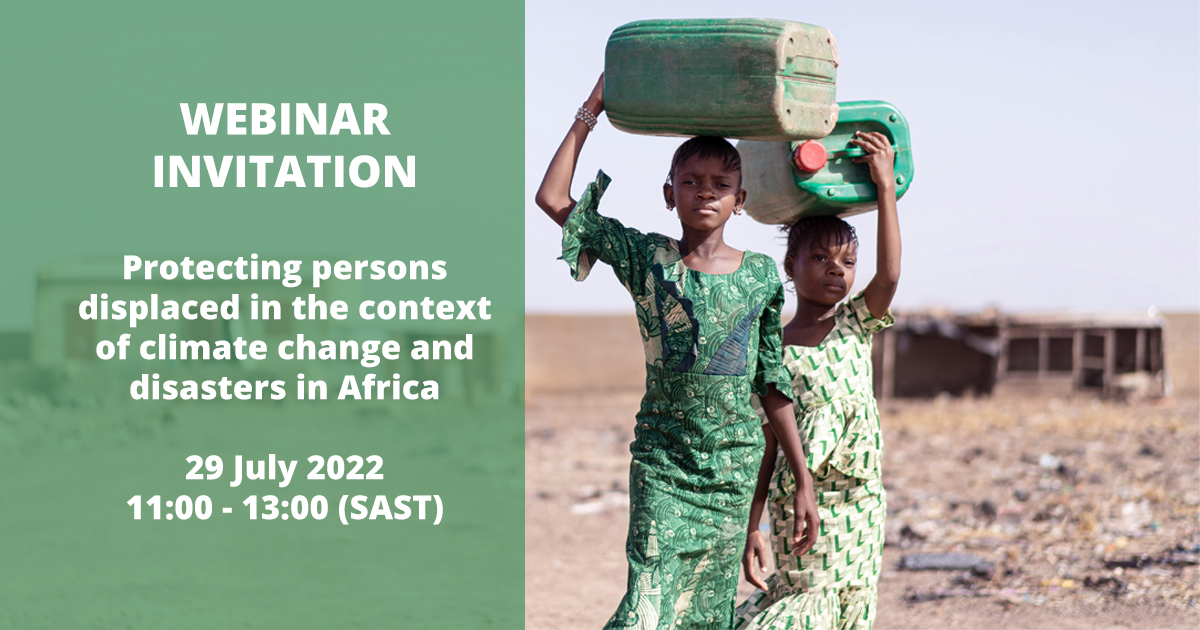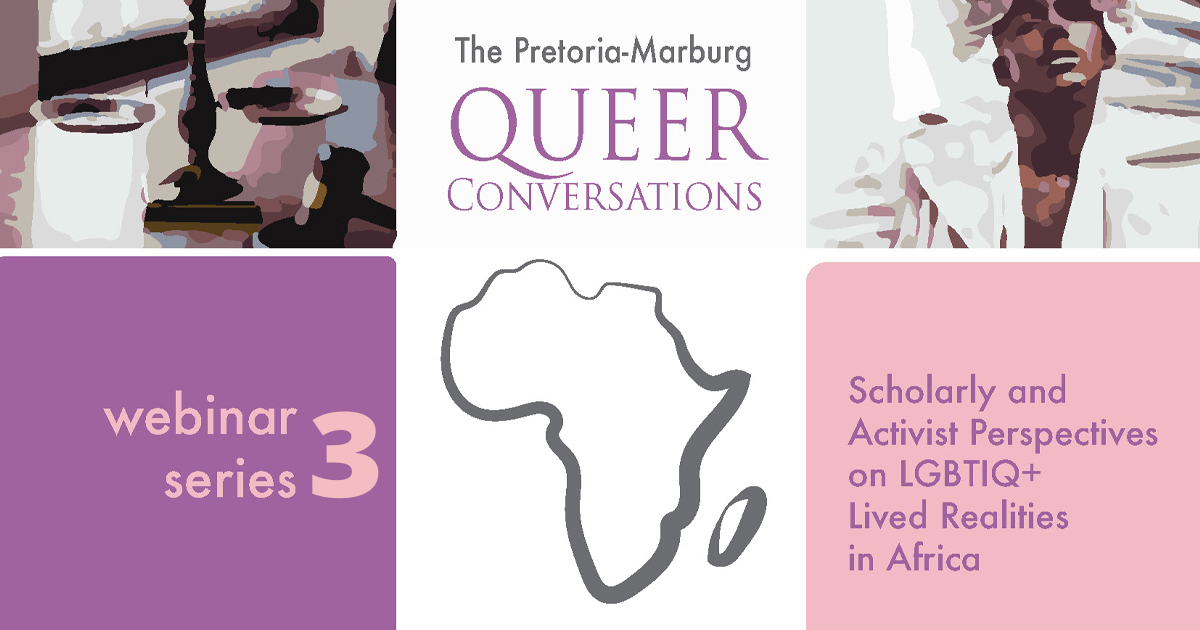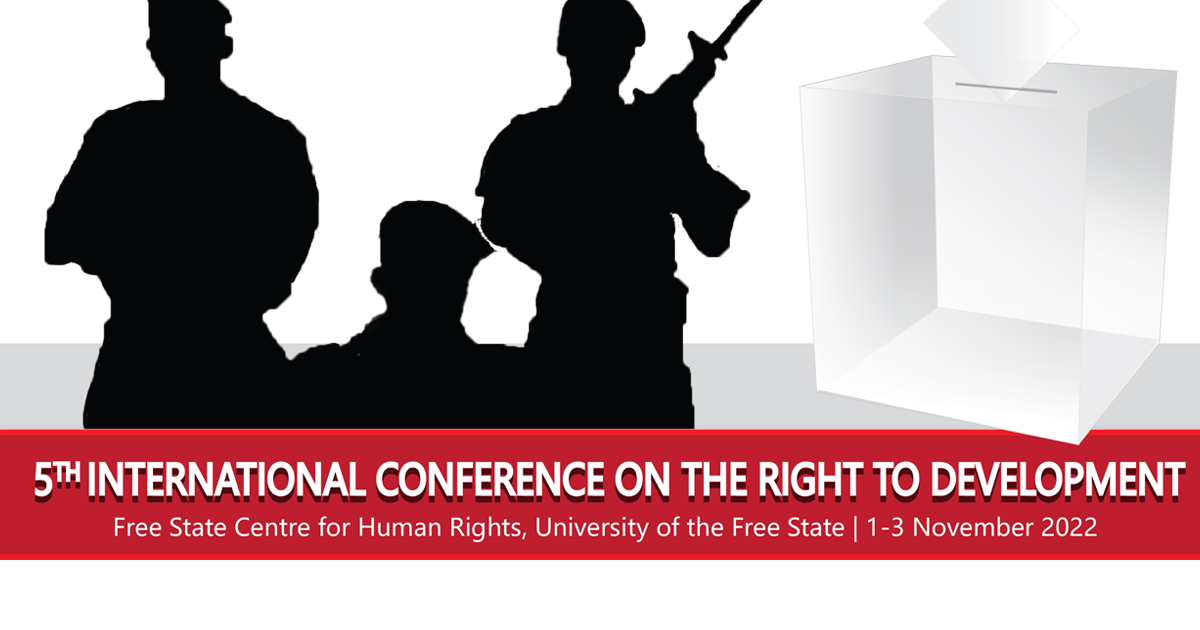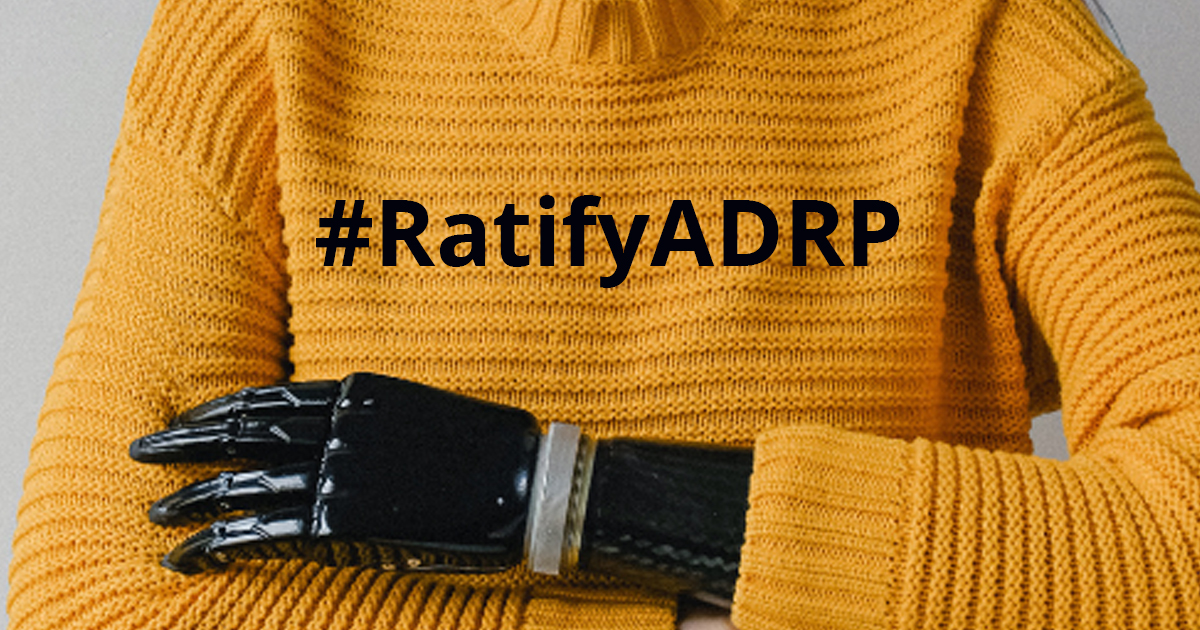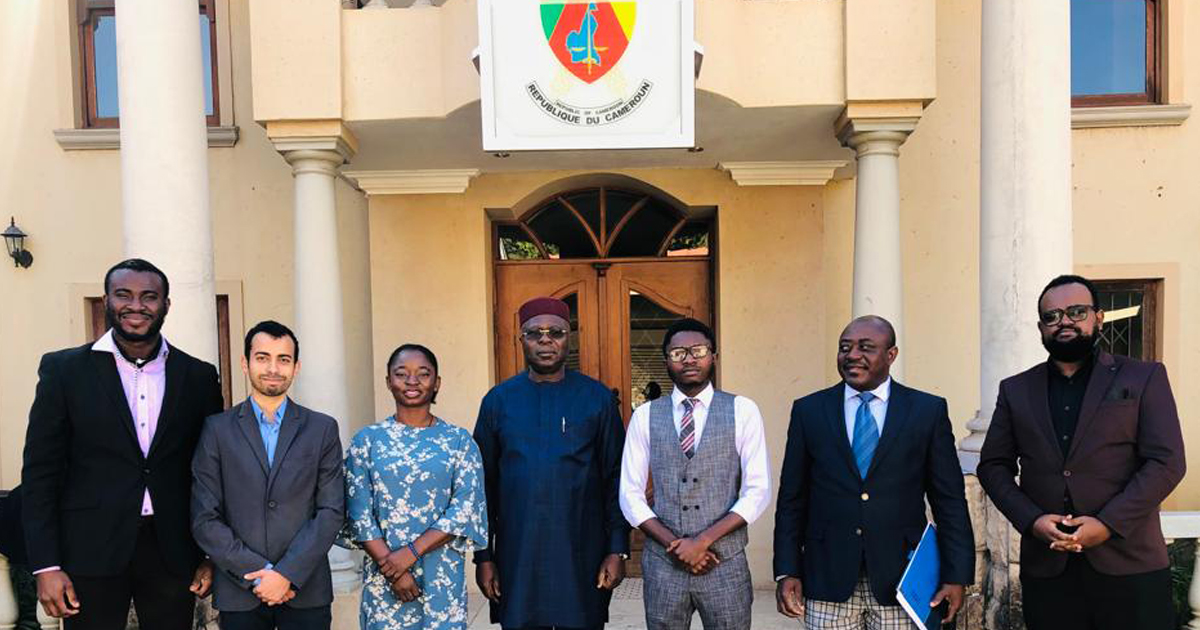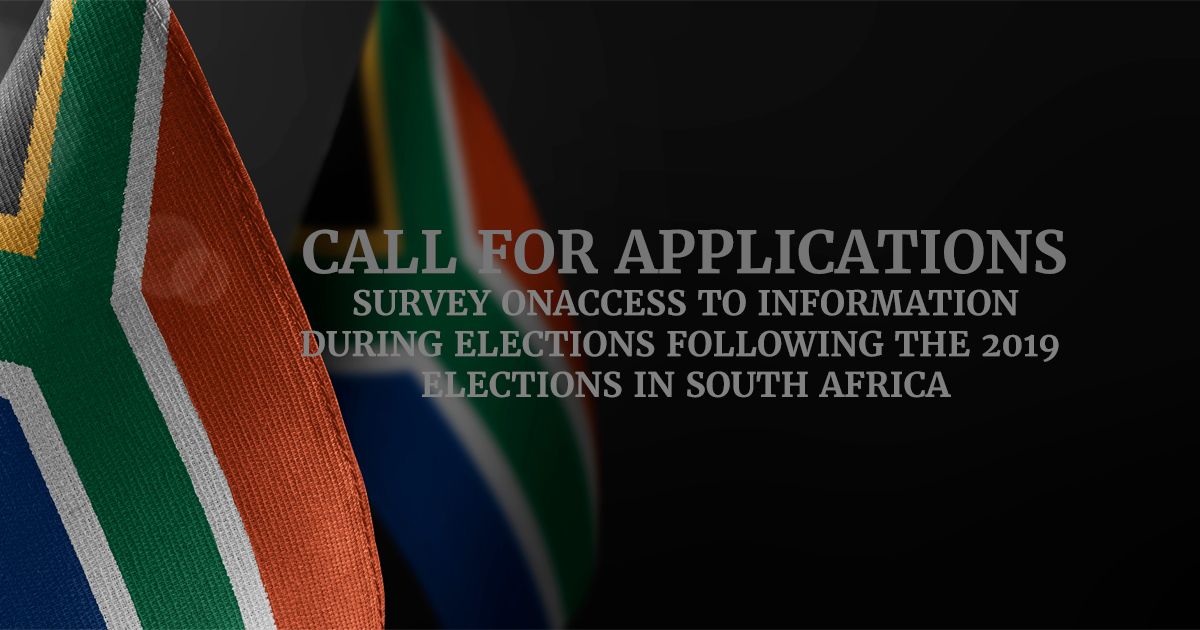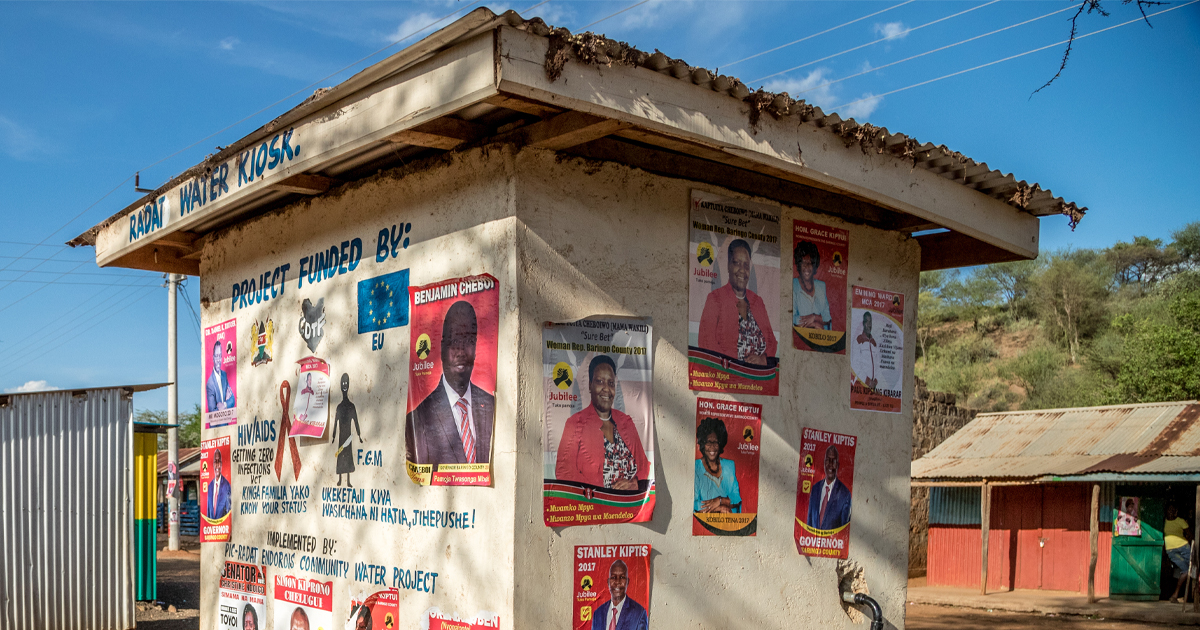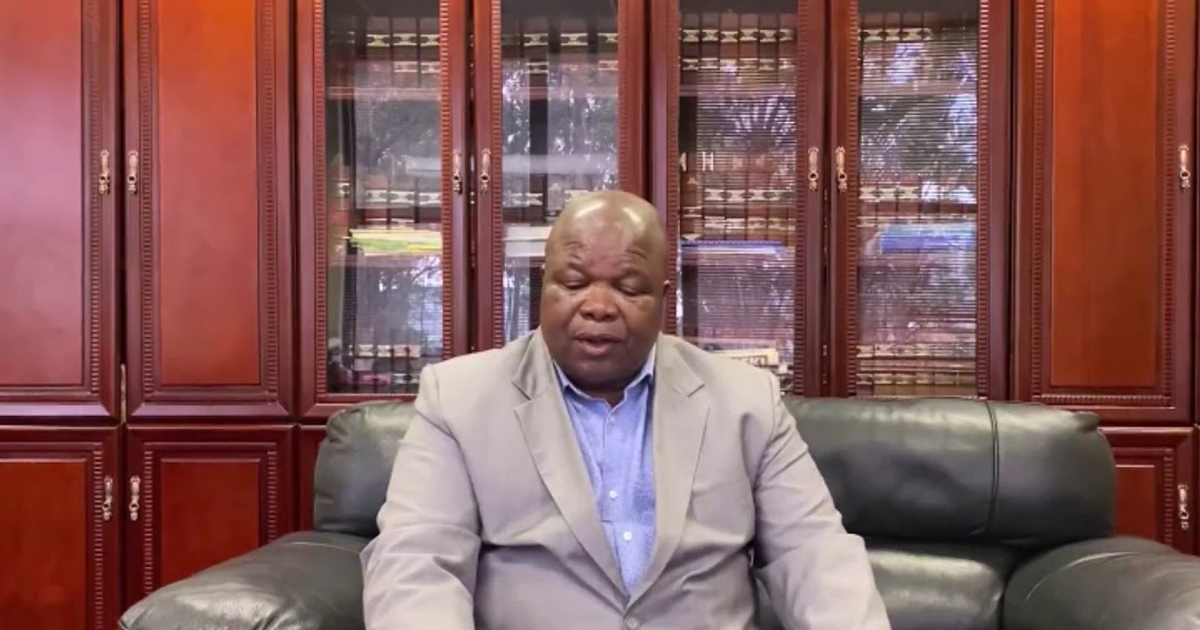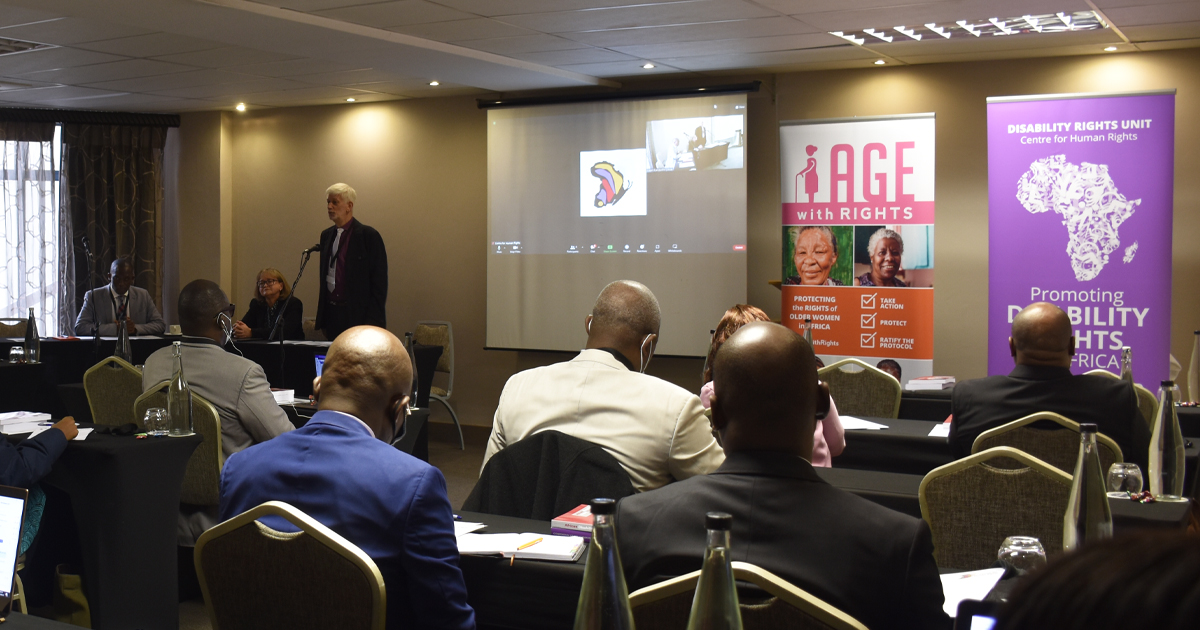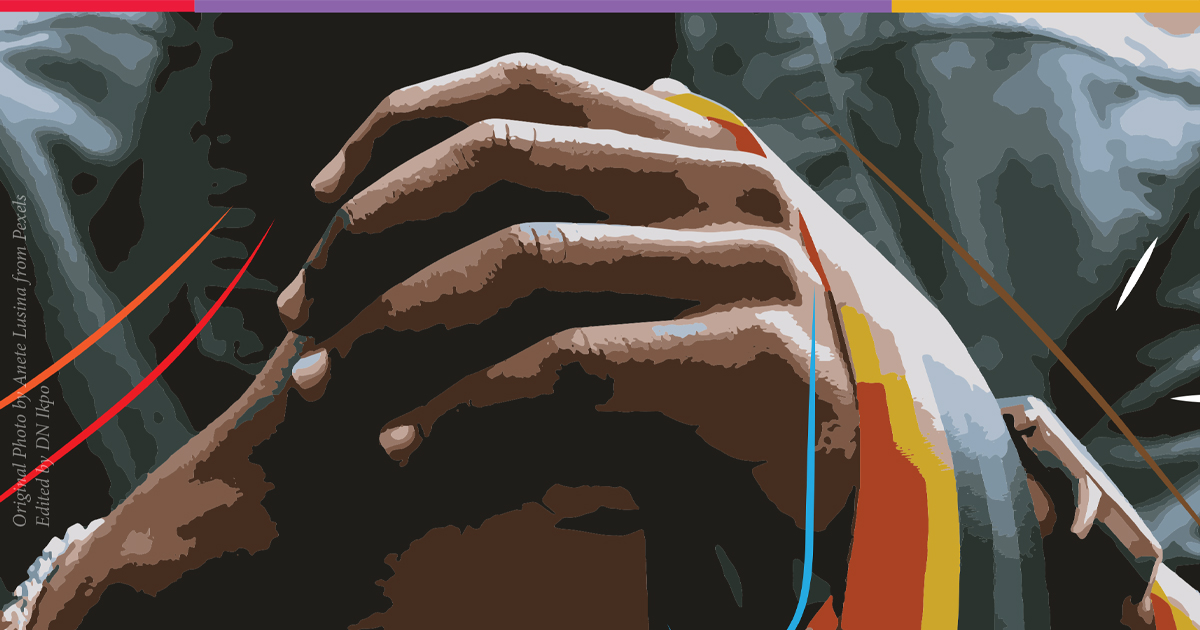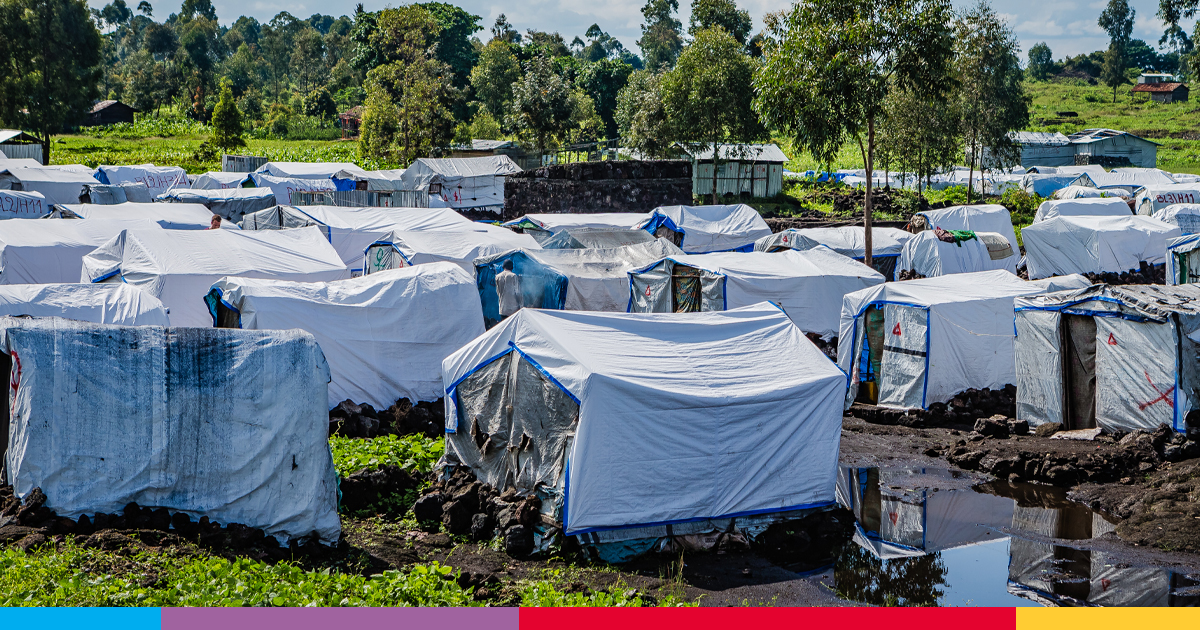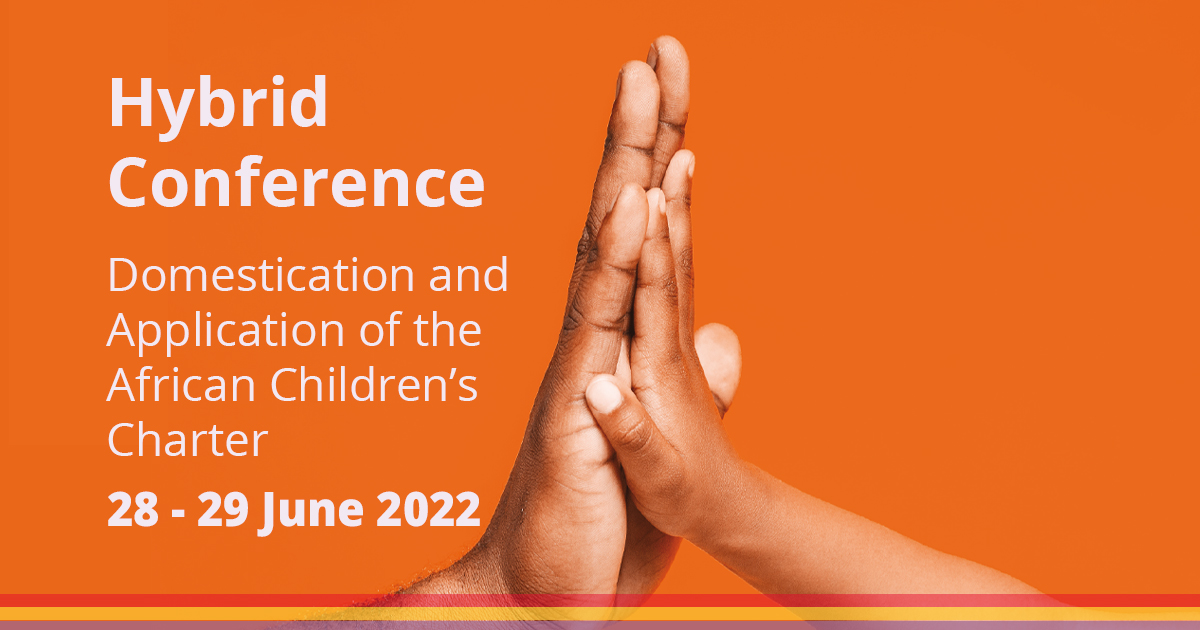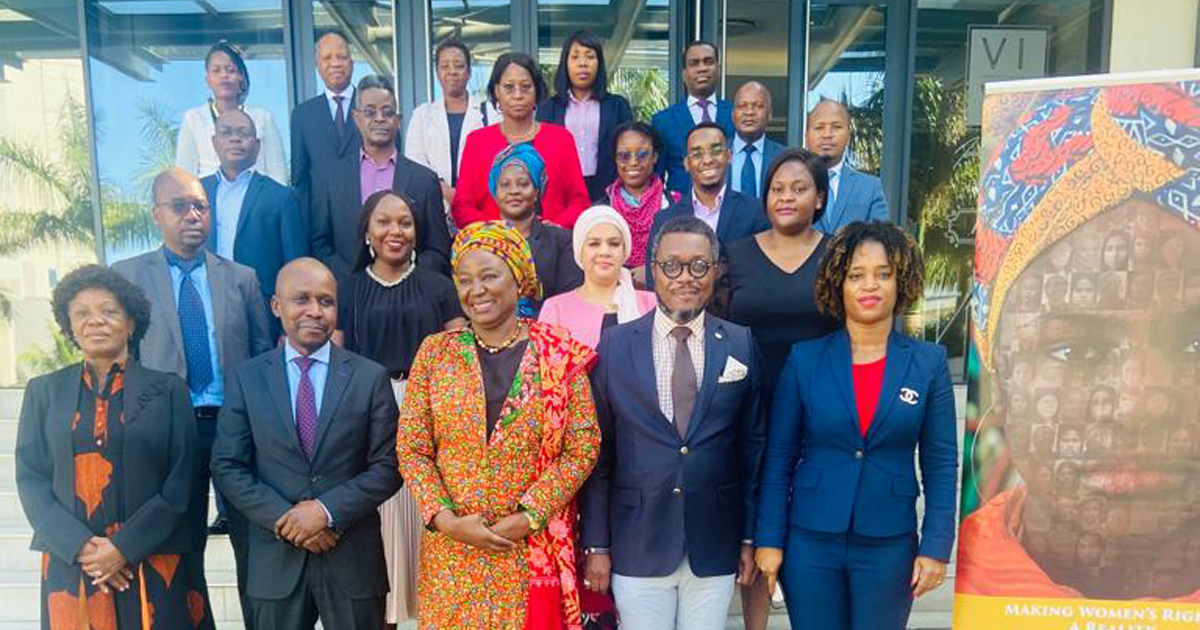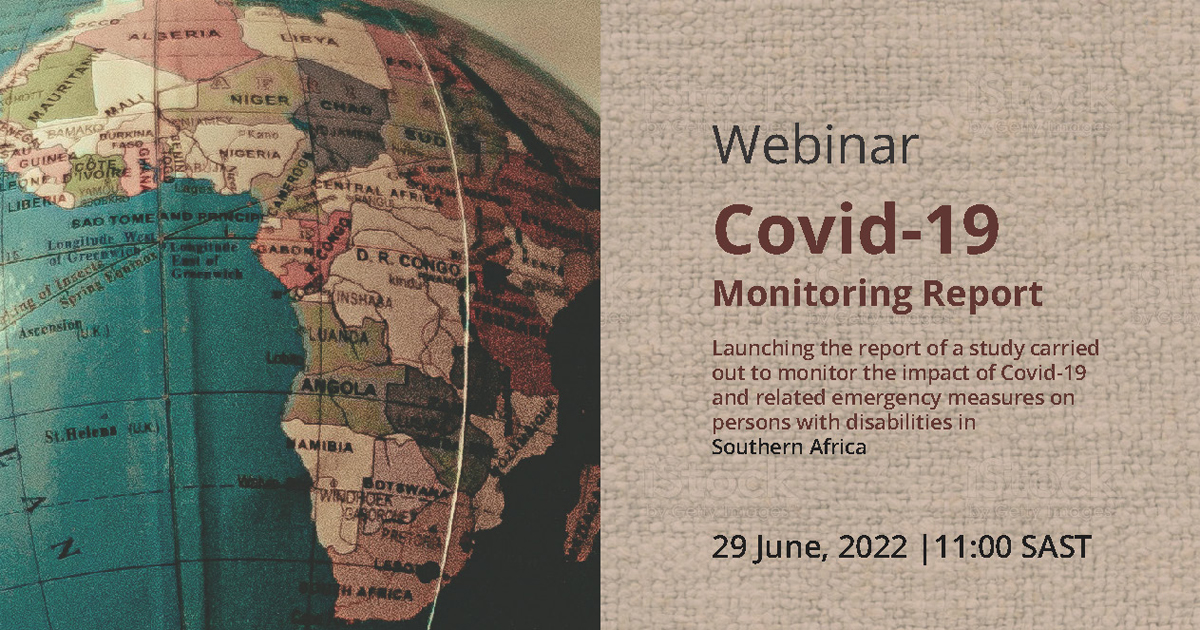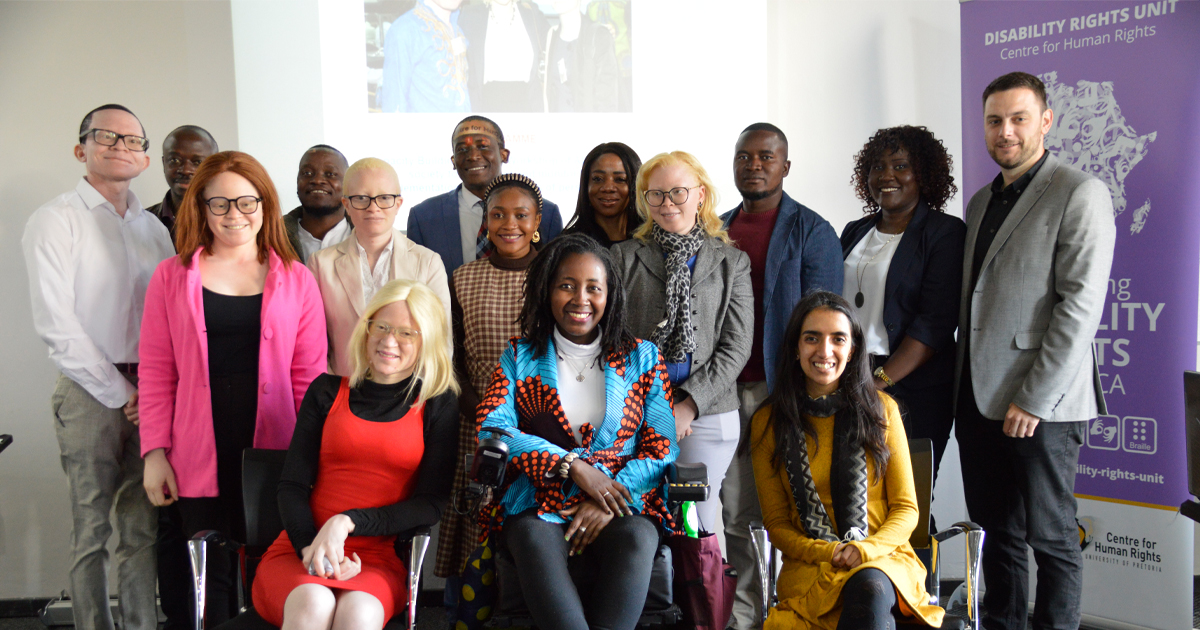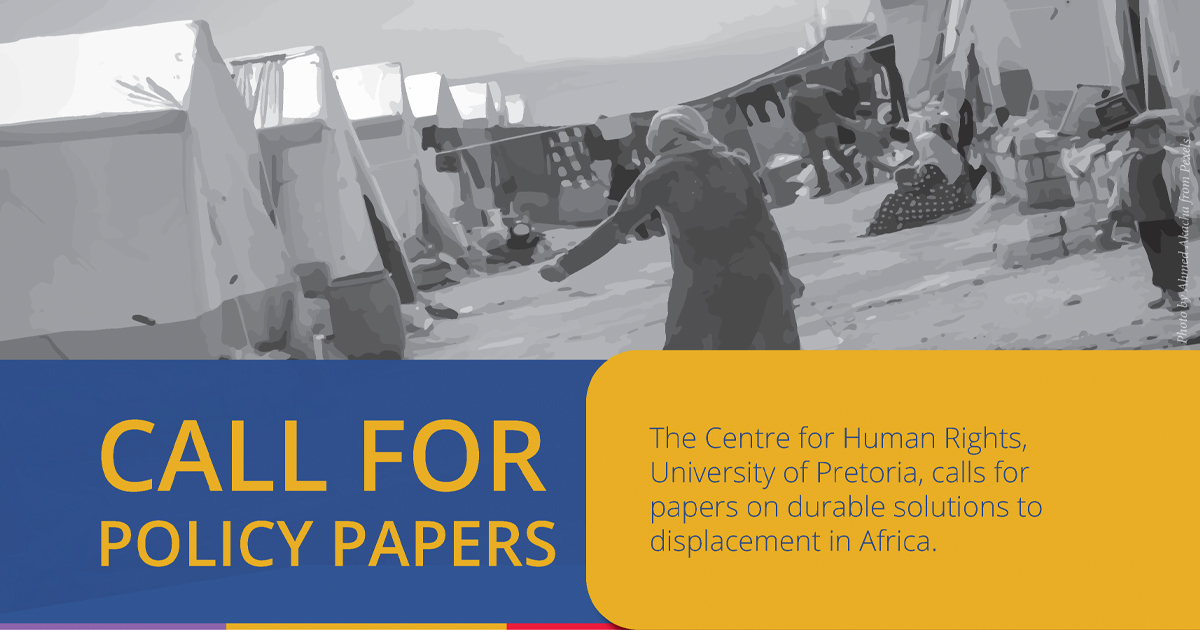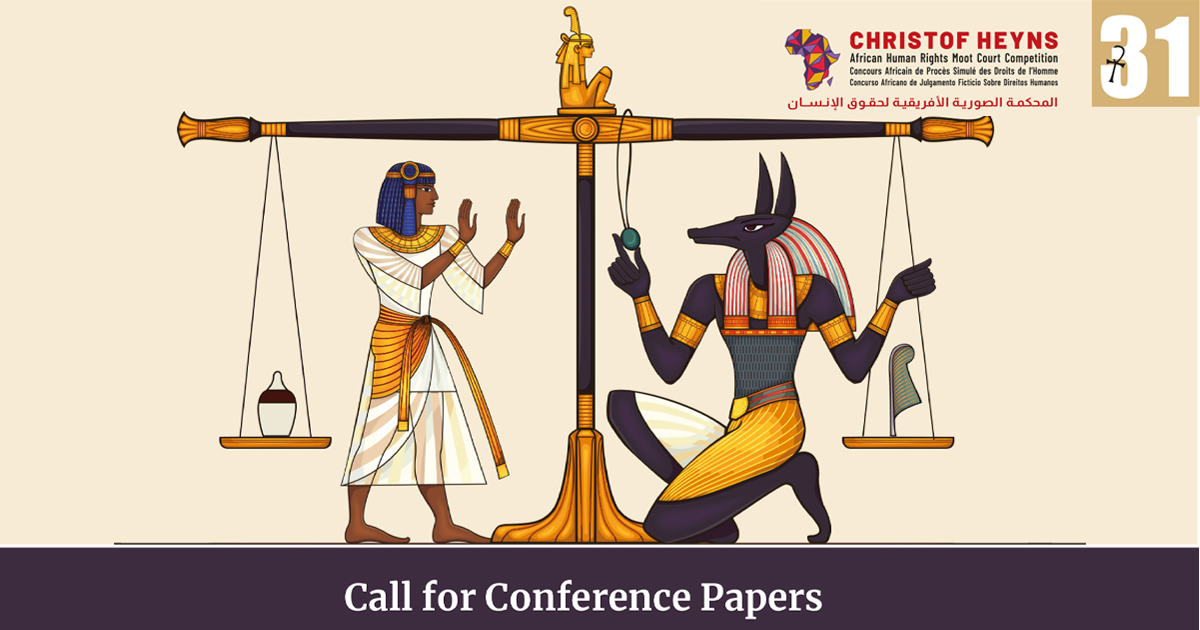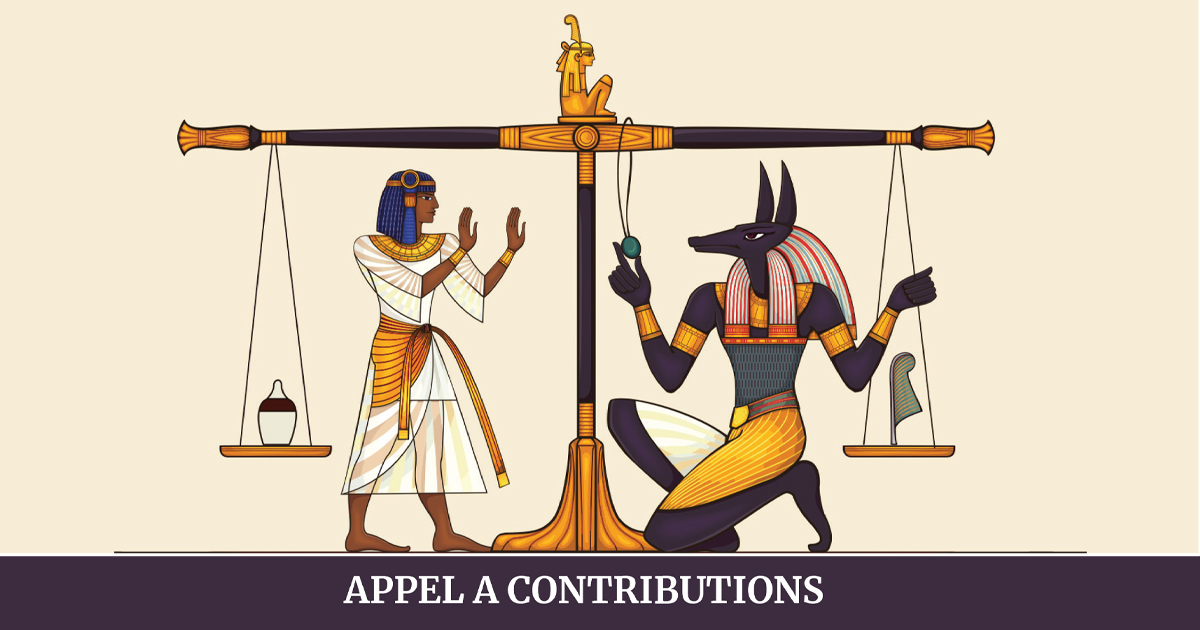- Details
As this eventful year winds down, the Centre gladly shares with you some of the highlights in our activities over the last two months. We have been busy! The annual Human Rights Graduation took place on 9 December. Its highlight was the award of the Vera Chirwa Award to two alumni who are leaving deep footprints in the human rights landscape in Africa: Namibian Minister of Justice Yvonne Dausab, and Malawian High Court Judge Redson Kapindu. The Centre organised two advanced short courses; hosted numerous capacity-building events, held two pan-African conferences and launched a number of publications.
- Details
The Centre for Human Rights (CHR), Faculty of Law, University of Pretoria (UP) congratulates Dr Nkatha Murungi on her appointment as Associated Professor in the CHR and Faculty of Law at UP, effective from 1 January 2023.
Dr Nkatha is currently serving as Assistant Director (Programmes) of the CHR. She has specific responsibility for the Centre’s project and programmes on women’s rights, sexual and reproductive rights, children’s rights and the rights of persons with disabilities. She is also co-editor of the African Disability Rights Yearbook.
- Details
The Centre for Human Rights (Centre), Faculty of Law, University of Pretoria, selected Namibian Minister of Justice, Honourable Yvonne Dausab, and Malawian human rights advocate and High Court Judge, Justice Redson Edward Kapindu, to jointly receive the 2022 Vera Chirwa Award. This Award, instituted in 2006, acknowledges and honours an alumnus or alumna of the LLM/MPhil in Human Rights and Democratisation in Africa (HRDA) who best embodies the spirit of the programme in their subsequent career by positively contributing to human rights or by promoting consolidation of democratic values in Africa.
- Details
The Centre for Human Rights, Faculty of Law, University of Pretoria (CHR) commemorated World Human Rights Day by hosting its annual Graduation ceremony on 9 December 2022. This annual event saw the CHR graduate its LLM/MPhil in Human Rights and Democratisation in Africa (HRDA) class of 2022 at a time when the institution of democracy is under pressure throughout the continent of Africa and globally. This year’s Graduation also marked the first in-person ceremony at the main campus of UP since the outbreak of the COVID-19 pandemic. During the ceremony, the Vera Chirwa Award was also annoounced and handed to two graduates of the HRDA programme, Namibian Minister of Justice Honorable Yvonne Dausab and Malawian High Court Judge, Justice Redson Kapindu.
- Details
25-29 April 2023, University of Ghana, Accra
The Merian Institute for Advanced Studies in Africa (MIASA) seeks to provide Africa-based early career researchers working on the themes of peace, democracy and climate change on the continent with the space and intellectual community to transform a draft paper into a publishable journal piece. The 5-day writing workshop is designed to provide early career scholars with the opportunity to contribute to knowledge production in one of the three fields of research focus for this workshop: peace, democracy and climate change.
- Details
6 December 2022
The Centre for Human Rights, University of Pretoria, and the Southern African Nationality Network (SANN) call on African states, including members of the Southern African Development Community (SADC), to endorse the adoption of the Draft Protocol to the African Charter on Human and Peoples’ Rights on the Specific Aspects of the Right to a Nationality and the Eradication of Statelessness in Africa (Draft Protocol) and to subsequently ratify it. We also call on the Government of South Africa to take leadership in urging other SADC members to endorse the adoption of the Draft Protocol and to subsequently ratify it.
- Details
The Expression, Information and Digital Rights (EIDR) unit in collaboration with the Media Institute of Southern Africa Zimbabwe (MISA-Zimbabwe) conducted a capacity-building workshop on promoting rights-respecting approaches to disinformation for Community-based Organisations (CBOs) on 17 November in Harare, Zimbabwe. Representatives from the media fraternity and academic institutions were also in attendance.
- Details
From 21 to 25 November 2022, the Centre for Human Rights organised a 5-day intensive course on the protection of forcibly displaced persons in Africa. The course presented a human-rights perspective on the protection of forcibly displaced persons in Africa. It enhanced the knowledge of participants on fundamental legal concepts and principles related to international law on forced displacement, critical challenges in the interpretation and application of key treaty provisions, and rights-based approaches to addressing challenges and ensuring durable solutions to forced displacement in Africa.
- Details
On 29 and 30 November 2022 in Abuja, Nigeria the Centre for Human Rights Women’s Rights Unit held a joint jurisprudential colloquium for Commissioners of the African Commission on Human and Peoples’ Rights and Judges of the Economic Community of West African States Court of Justice (ECOWAS Court). Judge President Edward Amoako Asante of the ECOWAS Court and Commissioner Janet Sallah-Njie, Special Rapporteur on the Rights of Women in Africa of the African Commission on Human and Peoples’ Rights are among the eminent attendees. The purpose of the Judicial Colloquium was to sensitise the judicial and quasi-judicial officers on attaining substantive equality for women in Africa through a gender-sensitive approach to the application and interpretation of the Protocol to the African Charter on Human and Peoples’ Rights on Rights of Women in Africa (Maputo Protocol).
- Details
On 24 and 25 November 2022, the Centre for Human Rights, Faculty of Law, University of Pretoria, in partnership with OutRight Action International, and with the support of the Embassy of the Kingdom of Norway in South Africa, held a Conference on the Decriminalisation of Same-Sex Law and the Eradication Conversion Practices in African countries.
- Details
The Centre for Human Rights (Centre), Faculty of Law, University of Pretoria, is pleased to share the news of the appointment of its alumna, Muleya Mwananyanda, as the Director, Influence and Partnerships for UNAIDS.
- Details
The Centre for Human Rights (CHR), in partnership with the Zimbabwe Human Rights NGO Forum and the University of Zimbabwe, successfully launched the Zimbabwe Constitutional Literacy Booklet on 16 November in Harare, Zimbabwe.
- Details
The Centre for Human Rights, University of Pretoria (the Centre), is providing technical support to the African Commission on Human and Peoples' Rights (ACHPR) in its continental project on human rights and artificial intelligence (AI), robotics and other new and emerging technologies in Africa.
- Details
The Centre for Human Rights, Faculty of Law, University of Pretoria cordially invites you to the Launch of an Impact Analysis Study of the African Union (AU) Economic Cultural and Social Council (ECOSOCC) in the Governance structure of the African Union.
- Details
On 17 November 2022, the 10th annual disability rights in Africa Conference organised by the Disability Rights Unit at the Centre for Human Rights, University of Pretoria kicked off at Southern Sun hotel OR Tambo, South Africa. The theme of this year’s conference is ‘migration, displacement and disability: a human rights response’. The aim of the two day conference is to critically appraise laws, policies, practices, programmes, polities and ideologies that relate to migration and displacement and suggest remedial measures for protecting and ensuring the rights of migrants and internally displaced persons (IDPs) with disabilities.
- Details
Over two days, 15 and 16 November 2022, the Children Rights Unit at the Center for Human Rights, hosted a training workshop to capacitate selected state officials from varied ministries on strategies to incorporate the impact of Climate Change on children’s Socio-economic Rights in their state reports to the African Committee of Experts on the Rights and Welfare of the Child (African Children’s Committee).
- Details
The Centre for Human Rights(CHR), in collaboration with the International Working Group for Indigenous Affairs (IWGIA) and the working group on indigenous Populations/ Communities of the African Commission on Human and Peoples Rights hosted their course on 7-11 November 2022. The Course was held in a hybrid format with 20 participants attending physically at graduate center of the University of Pretoria and 35 attending online from countries in Africa and abroad. Participants were drawn from all walks of life including but not limited to students, legal practitioners, Indigenous Rights Advocates and members of indigenous communities, members of government institutions, Public Prosecutors, amongst others.
- Details
The Children's Rights Unit at the Centre for Human Rights launched its Study on Child Participation in Development Frameworks in Africa.
Child participation is a fundamental right guaranteed in international law, specifically under articles 12 of the Convention on the Rights of the Child (CRC) and 4(2) of the African Children’s Charter. It is a facilitative right that is significant in the intellectual development of the child and vital for a child’s autonomy and social responsibility later in a child’s life course.
- Details
The African Disability Rights Yearbook (ADRY) is calling for papers for consideration for publication in Section A of the ADRY in 2023. The ADRY publishes once a year with a focus on disability rights issues and developments of contemporary concern to persons with disabilities on the African continent. The ADRY is published by the Pretoria University Law Press (PULP) as a peer-reviewed open-access journal that is accredited by South African Department of Higher Education and Training.
- Details
The African Journal of Privacy and Data Protection is domiciled in the Faculty of Law, University of Lagos Akoka-Lagos, Nigeria but will be published once a year by the Pretoria University Law Press (PULP) South Africa. The Journal will be peer reviewed and is open access. The first issue of the Journal is expected to be published in August/September of 2023. The Editorial Board of the Journal hereby invites Articles, Book/Reviews and Notes/Comments on various aspects of privacy and data protection generally and perspectives on and from the continent of Africa in particular.
- Details
The Centre for Human Rights, University of Pretoria (the Centre) hosted an Access to Information and Elections in South Africa symposium on 10 and 11 November 2022 at the University of Pretoria. Co-hosting the event were the Independent Electoral Commission of South Africa (IEC), the Information Regulator (IR), the South African Human Rights Commission (SAHRC), the Human Sciences Research Council (HSRC), and Media Monitoring Africa (MMA). The symposium is part of an advocacy project to promote the transparency and integrity of elections, and meaningful participation in elections by an informed electorate in South Africa. To this end, the symposium advocates for the implementation of the Guidelines on Access to Information and Elections in Africa were developed by the African Commission on Human and Peoples' Rights. Further, the symposium seeks to promote the implementation of the recommendations of the 2020 report titled Proactive Disclosure of Information and Elections in South Africa. The SA report assessed South Africa’s compliance with the Guidelines and made targeted recommendations to electoral stakeholders.
- Details
On 10 November 2022, the Pretoria University Law Press (PULP) based at the Centre for Human Rights, Faculty of Law, University of Pretoria (Centre), and the School of Law, University of Kabarak, hosted a hybrid book launch for Exploring African approaches to international law: Essays in honour of Kéba Mbaye edited by Frans Viljoen, Humphrey Sipalla and Foluso Adegalu.
- Details
A Centre for Human Rights alumna, Grace Wakio Kakai, has been appointed the new Deputy Registrar of the African Court on Human and Peoples' Rights (African Court). She was sworn in on 7 November 2022, as the Court started its 67th Ordinary Session in Arusha, Tanzania.
- Details
On 3 November 2022, Professor Charles Manga Fombad, the Director of Institute for International and Comparative Law in Africa (ICLA), was awarded the University of Pretoria’s (UP) prestigious Chancellor’s award for research, for the year 2021. Prof Fombad is a National Research Foundation (NFR) B1-rated scholar and a member of the Academy of Science of South Africa (ASSA).
- Details
The Centre for Human Rights, University of Pretoria (the Centre) will be hosting an Access to Information and Elections in South Africa symposium on 10 and 11 November 2022 at the University of Pretoria. The symposium is hosted in collaboration with the Independent Electoral Commission of South Africa (IEC), the Information Regulator (IR), the South African Human Rights Commission (SAHRC), the Human Sciences Research Council (HSRC), and Media Monitoring Africa (MMA).
- Details
In order to develop the knowledge and expertise of lawyers and legal organisations in the region on statelessness and migration in general and in the context of Southern Africa, to equip legal practitioners with skills and tools to identify people affected by statelessness, and to develop practical legal interventions to resolve statelessness, Lawyers for Human Rights (South Africa) in partnership with the Centre for Human Rights and the Centre for Child Law (South Africa) held a hybrid legal training on statelessness and migration for paralegals, candidate attorneys and junior attorneys in Southern Africa on 24 – 26 October 2022 at the University of Pretoria.
- Details
The Pretoria University Law Press (PULP), based at the Centre for Human Rights, University of Pretoria, invites you to the hybrid book launch of Exploring African approaches to international law: Essays in honour of Kéba Mbaye, edited by Frans Viljoen, Humphrey Sipalla and Foluso Adegalu. This launch is co-hosted by the Centre and the Kabarak School of Law.
- Details
The Centre for Human Rights (Centre) in partnership with Konrad Adenauer Stiftung (KAS) under the aegis of the Rule of Law Program for Sub Saharan Africa developed simple-easy-reference booklets (for non-lawyers) that summarise the Bill of Rights as espoused in the constitutions of selected “Anglophone African” countries including Zimbabwe. The broad aim is to promote human rights and Constitutional literacy in Africa.
- Details
Applications are invited for the award of the first Christof Heyns Human Rights Scholarship. Applications are open to current or prospective doctoral candidates studying towards a doctoral degree in human rights at the University of Pretoria. The Scholarship is for study in 2023.
Download Call for Applications
CLOSING DATE: The last day for applying is 28 November 2022.
- Details
The Centre for Human Rights, Faculty of Law, University of Pretoria, on 28 October 2022 held a capacity-building workshop for South African civil society organizations (CSOs) in Pretoria. The capacity-building workshop was aimed at equipping South African CSOs with limited or no interaction with the African human rights system with capacity to be able to engage with that system.
- Details
The Centre for Human Rights, in collaboration with its partners SIPD-Uganda and Intersex Community of Zimbabwe (ICoZ), launched an intersex report on the sidelines of the ongoing 73rd Ordinary Session of the African Commission on Human and Peoples’ Rights in Banjul, The Gambia.
- Details
Ethnicity and Constitutionalism in Africa
The Organisers of the Stellenbosch Annual Seminar on Constitutionalism in Africa (SASCA) are pleased to announce the call for papers for the Tenth anniversary of the Stellenbosch Annual Seminar on Constitutionalism in Africa (SASCA 2023), which will be held in Stellenbosch (South Africa) from Tuesday 19 September to Friday 22 September 2023. SASCA 2023 will be jointly organised by the Institute for International and Comparative Law in Africa (ICLA) of the Faculty of Law, University of Pretoria, the UWC Chair in Constitutional Design for Divided Societies, the South African Research Chair in Multilevel Government, Law and Development (SARChI) at the Dullah Omar Institute, University of the Western Cape, and the Stellenbosch Institute for Advanced Study (STIAS) in partnership with the Konrad Adenauer Stiftung (KAS) Rule of law Programme Sub-Saharan Africa (Anglophone Countries), based in Nairobi.
The theme for this seminar is “Ethnicity and constitutionalism in Africa”.
- Details
The Director of Centre, Faculty of Law, University of Pretoria, made the following statement at the 73rd Ordinary Session of the African Commission on Human and Peoples' Rights, Banjul, The Gambia, on 26 October 2022.
26 October 2022
Chairperson of the Commission, Commissioners, and welcoming in particular the newly inaugurated Commissioner; dear fellow delegates,
Centre congratulates Commission@35
The Centre for Human Rights congratulates the African Commission on celebrating the milestone of 35 years of its existence. It was, at the time of its establishment, not a foregone conclusion that the Commission would develop into a credible, independent and progressive human rights body that promotes and protects the right of all African people. It was the energetic and innovative dedication, professionalism and attentiveness of members of the Commission, and its supporting Secretariat, that over many years solidified it as Africa’s primary human rights body. We wish the current crop of Commissioners well in continuing this proud tradition.
The Centre calls for a fact-finding mission or other engagement with authorities in Chad
Following the shooting of at least 50 Chadians protesting the postponement of elections for around two years, and reports about the suspension of political parties and the imposition of a curfew, the Centre associates itself with the grave concern expressed by others. The Centre calls on the Commission to take all possible measures to undertake a fact-finding mission to Chad, in order to ensure accountability, and to preserve human security and uphold human rights. We further call on the Commission, under article 19 of the Protocol on the African Union Peace and Security Council (PSC), to formally bring to the attention of the PSC the human rights concerns, and to cooperate with the PSC to engage the Chadian authorities on the underlying causes that gave rise to the human rights violations since 20 October in Chad.
- Details
Banjul, 25th October 2022
66 civil society organisations welcome the publication yesterday of the African Commission on Human and Peoples’ Rights (African Commission) landmark General Comment detailing States’ obligations with regard to public services, such as education, healthcare and water. This is a major step forward to consolidate the human rights and legal framework, in a context where public services have emerged as one of the critical tools to address the climate, health, food, and inequality crises of the last years.
- Details
In the last few years Africa’s sub-regional courts have passed judgments that buttress the importance of internet freedom. On 17 July 2022 the Court of Justice of the Economic Community of West African States (ECOWAS Court) found that the Nigerian government’s 7-month Twitter ban violated article 9 of the African Charter on Human and Peoples’ Rights and article 19 of the International Covenant on Civil and Political Rights (ICCPR).
- Details
Shadow reporting
Member states are obligated to report to the African Commission every two years, in accordance with its guidelines, on measures they have taken to give effect to the provisions of the African Charter; and its Protocols, including the Protocol to the African Charter on the Rights of Women in Africa; the Protocol to the African Charter on the Rights of Older Persons in Africa, the Protocol to the African Charter on the Rights of Persons with Disabilities in Africa; the Protocol to the African Charter on the Rights of Citizens to Social Protection and Social Security; the African Union Convention for the Protection and Assistance of Internally Displaced Persons in Africa; and any other subsequent regional human rights treaties in respect of which the African Commission has the mandate to monitor state reporting.
- Details
The Centre for Human Rights, University of Pretoria (the Centre) is pleased to invite interested persons to express their interest to participate in a two-day election symposium on 10 - 11 November 2022 at the University of Pretoria.
- Details
As part of our commitment to address policy gaps and find durable solutions to internal displacement, the GENIDA Network is convening a webinar to examine the Action Agenda in light of the current state and continued increase in the number of IDPs in Africa. This webinar will hear perspectives from different stakeholders regarding the UN Secretary General’s Action Agenda on Internal Displacement.
- Details
The International Development Law Unit (IDLU), Centre for Human Rights, Faculty of Law, University of Pretoria in partnership with the Finance for Development Lab and Pretoria University Law Press (PULP) invites you to the virtual book launch of the Portguese and French versions of COVID-19 and Sovereign Debt, edited by Daniel D. Bradlow and Magalie L. Masamba (2022)
- Details
In collaboration with the Centre for Human Rights, Faculty of Law, University of Pretoria and the Centre for Applied Legal Studies, Wits University Natural Justice will host a two-day conference to empower young activists and students with knowledge and tools to influence climate justice in South Africa.
- Details
The Centre for Human Rights, University of Pretoria, cordially invites you to its 10th Annual Disability Rights Conference on 17 and 18 November 2022 which will take place in a hybrid format (in Pretoria, South Africa; and on zoom). The theme of this year’s conference is “Migration, Displacement and Disability: A human rights’ response”. Kindly note that for those who wish to attend the conference physically/in-person, it is required that you cover your own costs (air tickets, accommodation, transport, etc). The Centre will cover costs of conferencing. For those who wish to attend the conference virtually, you are simply requested to fill out the Google form, and the zoom link will be emailed to you.
The conference acts as a platform for convening dialogue amongst key stakeholders on disability rights, and to spotlight the pertinent and emerging disability rights concerns in the African region.
- Details
A side event during the 73rd Ordinary Session of the African Commission on Human and Peoples’ Rights
The Centre for Human Rights, University of Pretoria, Equality Now and ICJ-Kenya cordially invite you to a side event to introduce the Guidelines to stakeholders on the side-lines of the 73rd Ordinary Session.
Event Information
Date: 24 October 2022
Time:13:00-14:00 GMT
Venue: International Conference Centre, Kerr Serign, The Gambia (Main Hall)
RSVP: Susan Mutambasere
Susan.mutambasere@up.ac.za
- Details
The right to access justice is an important cross-cutting right that is a pre-requisite for the enjoyment and vindication of all other human rights and fundamental freedoms. Enshrined in article 13 of the Convention of the Rights of Persons with Disabilities (CRPD) and article 13 of the Protocol to the African Charter on Human and People’s Rights on the Rights of Persons with Disabilities in Africa (African Disability Protocol), the right guarantees effective access to justice through the provision of procedural, age and gender-appropriate accommodations.
- Details
Amnesty International, the Centre for Human Rights, University of Pretoria and UN Special Rapporteur on Freedom of Assembly are hosting an event on Protecting The Right To Protest in Africa on the Side-lines of the ACHPR 73rd Ordinary Session.
- Details
The Expression, Information and Digital Rights (EIDR) Unit of the Centre for Human Rights (Centre), University of Pretoria, supported by Google, hosted the first Advanced Human Rights Course on Data Protection in Africa (Course). The Course was held from 19 to 23 September 2022.
- Details
The Centre for Human Rights’ Expression, Information and Digital Rights (EIDR) Unit hosted a two-day-long training and capacity-building workshop on Digital Rights in Southern Africa, from 04 to 05 October 2022. The workshop was targeted at government officials and National Human Rights Institutions (NHRIs) in Southern Africa. It is part of the stakeholder-specific workshops that commenced following the launch of the Digital Rights in Southern Africa report, which informs the training. The participants were from Angola, Lesotho, Malawi, Mozambique, Namibia, South Africa, Tanzania, and Zimbabwe.
- Details
The Global Coalition on Deinstitutionalization (‘GC-DI’) calls on all bodies and agencies of the UN to support the implementation of the UN Guidelines on Deinstitutionalization, including in Emergencies (‘the Guidelines’). We further call on States parties and regional integration organizations to align reform processes with the authoritative guidance being provided to them by the adoption of the Guidelines. We urge all stakeholders to ensure that deinstitutionalization processes conform to the letter and spirit of the Convention, and prioritise the leadership of persons with disabilities.
- Details
On this day, 1st October 2022 which has been set down by the United Nation to commemorate the International Day of Older Persons, the Commission on Human Rights and Administrative Justice joins the International Community to recognize and celebrate the enduring contribution of all older persons in Ghana, Africa and globally.
- Details
The Centre for Human Rights, Faculty of Law, University of Pretoria, cordially invites you to a webinar series organised by the Democracy and Civic Engagement Unit on “Unconstitutional changes of governments in Africa: Emerging issues and lessons from the continent”. The webinar series pulls together experts from across the continent to interrogate current trends and challenges on democracy in Africa with a specific focus on Sudan, Eswatini and Cameroon.
Date: 13 October 2022
Time: 11:00 - 13:00
- Details
The Centre for Human Rights, University of Pretoria, is organizing a capacity-building workshop on engagement with the African human rights system for South African civil society organisations (CSOs).
Date: 28 - 29 October 2022
- Details
On 8 September 2022 the Center for Gender Studies and Feminist Futures (CGS) and the Center for Conflict Studies (CCS) at the University of Marburg hosted the final session of the webinar series in the Pretoria-Marburg Queer Conversations: Scholarly and Activist Perspectives on LGBTIQ+ Lived Realities in Africa in collaboration with the Centre for Sexualities, AIDS, and Gender (CSA&G), and the Centre for Human Rights (CHR) at the University of Pretoria. The Pretoria-Marburg Queer Conversations creates a monthly space for in-depth discussions designed to tap into the intersections of knowledge-production and transfer between diverse scholarly and activist spheres and contributes to methodological, conceptual, and normative aspects of centering LGBTIQ+ rights and lived realities in African contexts.
- Details
The Expression, Information and Digital Rights Unit cordially invites you to the first of five interactive sessions on the Implementation of the Protection of Personal Information Act (POPIA), 2013.
SESSION 3: Protection of Personal Information and Organisational Compliance
- Details
The Centre for Human Rights, Faculty of Law, University of Pretoria, cordially invites you to a webinar organised by the Democracy and Civic Engagement Unit on participation of young people in elections and politics on the continent with a specific focus on Kenya, Zambia and South Africa. The webinar will interrogate the influences driving participation of young Africans informed by trends of most recent election cycles in the selected countries. This webinar aims to understand the trend towards declining youth participation and the influences driving this as well as garner lessons from instances where youth participation in elections has been robust.
- Details
The Centre for Human Rights, Faculty of Law, at the University of Pretoria (Centre for Human Rights), is extending an invitation to you to participate in a webinar launching a study on the impact of COVID-19 on older women in Southern Africa.
- Details
Dr. Primrose E.R Kurasha is an International Law Expert who holds her professional certification from the International Court of Justice's Hague Academy of International Law. Her other professional certificates are from the University of Salzburg, Austria, the Pretoria Bar of Advocates and the Centre for Human Rights. Dr. Kurasha has also served as a board member.
- Details
On September the 19th 2022, the Centre for Human Rights Migration Unit hosted a High-level Experts Forum on Durable Solutions to Protracted Displacement in Africa. The Forum engaged experts from various universities in Africa, the office of the United Nations Commissioner for Refugees, Ethiopian Human Rights Commission and rights organisations in Africa.
- Details
High-level experts forum on durable solutions to protracted displacement in Africa
Venues: Future Africa Campus, and Online
Monday 19 September 2022
- Details
The Centre for Human Rights (CHR), University of Pretoria (UP), in partnership with the African Policing Civilian Oversight Forum (APCOF) and Global Law Enforcement and Public Health Association (GLEPHA) held another advanced human rights course on “Policing and Vulnerability in Africa” from the 5th – 9th September 2022. The course was held virtually with over sixty (60) participants drawn from law enforcement agencies, government parastatals, students, academic institutions, legal practitioners, civil societies, human rights advocates, non-profit organizations, and other institutions of learning across countries in Africa and globally.
- Details
The Sexual Orientation, Gender Identity and Expression, and Sex Characteristics (SOGIESC) Unit of the Centre for Human Rights, Faculty of Law, is recruiting for: (i) a part-time position and (ii) a full-time position of Project Officer each under a twelve-month contract beginning in January 2023 and ending on 31 December 2023, renewable based on performance and continued funding.
- Details
The Centre for Human Rights is calling for papers that will form part of a book that contributes to critical communication surveillance and human rights studies in Africa.
- Details
The Centre for Human Rights, Faculty of Law, University of Pretoria, invites you to a webinar discussion of a case on the rights of indigenous people recently decided by the African Court on Human and Peoples’ Rights. This event is the second in a series of discussions of decisions by African human rights bodies.
Date: 20 September 2022
Time: 11:00 - 12:30 SAST
Venue: Zoom
Host: Prof Frans Viljoen
Moderator: Ms Henrietta Ekefre
RSVP: Foluso Adegalu (foluso.adegalu@up.ac.za)
- Details
Download Pretoria Declaration on Technology and Human Rights
Download abstract and a list of bios of participantsabstract and a list of bios of participants
From 1 to 3 September, the Centre for Human Rights organised the conference of the Association of Human Rights Institutes (AHRI). AHRI was established in 2000 by seven human rights institutes in Europe and has grown to include more than 80 university-based human rights institutes across the world. The 2022 conference was the first time that AHRI held its annual conference outside Europe. The Centre for Human Rights organised the 2020 conference on the theme of socio-economic rights, but due to Covid-19 this conference was moved fully online.
- Details
On 9 June 2022 the Centre for Human Rights (CHR) at the University of Pretoria facilitated the fifth event in the Pretoria-Marburg Queer Conversations: Scholarly and Activist Perspectives on LGBTIQ+ Lived Realities in Africa in collaboration with the Centre for Sexualities, AIDS, and Gender (CSA&G) at the University Pretoria, the Center for Gender Studies and Feminist Futures (CGS) and the Center for Conflict Studies (CCS) at the University of Marburg. The Pretoria-Marburg Queer Conversations series creates a monthly space for in-depth discussions designed to tap into the intersections of knowledge-production and transfer between diverse scholarly and activist spheres and contributes to methodological, conceptual, and normative aspects of centering LGBTIQ+ rights and lived realities in African contexts.
The Pretoria-Marburg Queer Conversations continue on 8 September 2022 with the topic ‘Prospects and Challenges for Transnational Activism to Advance LGBTIQ+ Rights in Africa’ organised by the Center for Gender Studies and Feminist Futures (CGS) and the Centre for Conflict Studies (CCS) at the University of Marburg. Register for the following webinar below:
- 8 September 2022, 12:00 SAST to 13:30 SAST / 12:00 CET to 13:30 CET:
- Details
The Centre for Human Rights, Faculty of Law, University of Pretoria in partnership with the University of Antwerp, Belgium, conducted its annual Advanced Human Rights Course (AHRC) on the Right to Development in Africa. The course was held from the 15th to 19th of August 2022 in a hybrid format with physical participants at the University of Pretoria’s Future Africa Campus (Future Africa), and about 55 virtual participants joining via Zoom from all over the world. The Centre and its partners also hosted a two-day round table dialogue on the right to development on the 19th and 20th of August 2022 at Future Africa.
- Details
The Centre for Human Rights (CHR), University of Pretoria (UP), in collaboration with the International Center for Not-For-Profit law (ICNL) hosted its annual advanced human rights course on “Civil Society Law in Africa” at University of Pretoria. This year’s course was held in a hybrid format, about twenty participants from Southern and East African regions attended the course physically at the University, while about fifty attended online from other different parts of Africa. The participants included students, several civil society organizations representatives, legal practitioners, human rights advocates, members of government institutions, members of parliament, members of the judiciary and representatives of law enforcement agencies.
- Details
The 2022 Advanced Human Rights Course (AHRC) on the African human rights systems in comparative perspectives took place from 4 - 8 April 2022. The course was hosted by the Centre for Human Rights, University of in collaboration with Ghent University.
- Details
The Centre for Human Rights, Faculty of Law, University of Pretoria, in partnership with the University of Antwerp, cordially invites you to a webinar dialogue on clarifying the nature, content and importance of the right to development in Africa. The Dialogue will attempt to interrogate critical issues around Human Rights Based Approach to Development; Debt Financing, Taxation and development; IFFS and Development; Public Services and the SDG agenda; PPPs and development; Climate Change and Sustainable Development and the Draft Treaty on Right to Development among others. These will help guide formulation of strategic interventions to inform the right to development discourse in Africa and international mechanisms.
- Details
The Dullah Omar Institute, University of the Western Cape together with the Centre for Human Rights, University of Pretoria cordially invites you to the Helen Kanzira Memorial Lecture.
- Details
On 15 August 2022, the Centre for Human Rights’ Expression, Information and Digital Rights unit hosted a digital rights training and capacity-building workshop for civil society organisations from Botswana, DRC, Eswatini, Lesotho, Malawi, Mozambique, Madagascar, Namibia, Zambia and Zimbabwe. Among the participants were representatives of NGOs, journalists, lawyers, and academics. The training was based on the Digital Rights Landscape in Southern Africa report launched on 3 August 2022. The objective of the training was to advance and enhance public interest and awareness of digital rights among civil society organisations.
- Details
The Disability Rights Unit, Centre for Human Rights, University of Pretoria, conducted a research study to map out the barriers faced by persons with disabilities in accessing the criminal justice systems in Botswana, South Africa and Zambia. Botswana, South Africa and Zambia have ratified the United Nations Convention on the Rights of Persons with Disabilities (CRPD) in 2021, 2007 and 2010, respectively. The (CRPD) enshrines the rights of persons with disabilities, including the right to access justice on an equal basis with others under article 13.
- Details
The Centre for Human Rights is looking for an experienced consultant with research expertise to conduct a study on the role of the media in fomenting and countering xenophobia in South Africa.
- Details
The Centre for Human Rights, University of Pretoria, and the NorwegianCentre for Human Rights, University of Oslo, cordially invite you to a thematic and country-level discussion of the influence of the United Nations treaty system on the promotion and protection of human rights at the national level.
- Details
The Pretoria Regional Delegation of the International Committee of the Red Cross together with the Institute for International and Comparative Law in Africa and the Centre for Human Rights of the University of Pretoria will be presenting the nineteenth All Africa Course on International Humanitarian Law between 25 October and 04 November 2022.
- Details
On 4 August 2022, The Democracy and Civic Engagement Unit of the Centre for Human Rights(the Centre), University of Pretoria(UP), in collaboration with the Africa Peer Review Mechanism (APRM) hosted a cocktail reception in honour of Dr. Nardos Bekele-Thomas, the new Chief Executive Officer of AUDA- NEPAD, and His Excellency Chief Charumbira Fortune Zefania, the New President of the Pan-African Parliament (PAP) and Members of the Bureau. The newly elected Members of the Bureau are: Hon. Prof. Massouda Mohamed Laghdaf; Hon. Dr Ashebiri Gayo; Hon. Lúcia Maria Mendes Gonçalves dos Passos; and Hon. Francois Ango Ndoutoume.
- Details
The British University in Egypt hosted the 31st edition of the African Human Rights Moot Court Competition in Cairo, from 25 - 30 July 2022. In commemoration of the human rights champion, founder of the African moot competition and former United Nations (UN) special rapporteur extrajudicial executions, Prof Christof Henys.
- Details
The African Coalition for Corporate Accountability (ACCA) congratulates the Centre for Applied Legal Studies (CALS), Alternative Information and Development Centre (AIDC) and Lawyers for Human Rights (LHR) on successfully convening the 4th Binding Treaty on Business and Human Rights Indaba in Johannesburg from the 27 - 28 July 2022, under the theme: ‘Towards a legally binding instrument’: Lessons learnt from the pandemic.’
- Details
On 3 August 2022, the Expression, Information and Digital Rights unit, launched the Digital Rights in Southern Africa Landscape report. The report is based on the African Charter on Human and Peoples’ Rights, and other international and regional human rights instruments that are important in the enforcement of human rights in the digital age. It seeks to enhance public interest and awareness of digital rights to exert direct influence on Southern African states to implement normative human rights standards in the digital age.
- Details
The Centre for Human Rights, Faculty of Law, University of Pretoria, successfully presented the 14th edition of the Nelson Mandela World Human Rights Moot Court Competition at the United Nations European headquarters in Geneva, Switzerland. The World Moot Court Competition focuses on the UN human rights treaties, where teams argue a hypothetical case in which state and non-state actors have violated these human rights treaties.
In commemoration of Nelson Mandela, the Moot, which is organised by the Centre for Human Rights, together with the Academy on Human Rights and Humanitarian Law at the American University, Washington DC, in collaboration with the Office of the High Commissioner for Human Rights in Geneva (Human Rights Council branch), ordinarily takes place during the late statesman’s birthday, 18 July. However, due to the challenges posed by the global pandemic, the 2022 edition took place in a hybrid format; with preliminary rounds taking place from 20 to 27 May 2022 and finals taking place on 21 July 2022.
- Details
The Centre for Human Rights, University of Pretoria, cordially invites you to join the launch of The Digital Rights Landscape in Southern Africa report based on the African Charter on Human and Peoples’ Rights, and other international and regional human rights instruments that are relevant in articulating human rights in the digital age. The report aims to improve the level of public interest and awareness on digital rights to exert direct influence on Southern African states to implement normative human rights in the digital age.
- Details
The Expression, Information and Digital Rights Unit cordially invites you to the first of five interactive sessions on the Implementation of the Protection of Personal Information Act (POPIA), 2013.
SESSION I Topic: Protection of Personal Information and Consent under the POPIA
- Details
The fourth of six-event series in the Pretoria-Marburg Queer Conversations: Scholarly and Activist Perspectives on LGBTIQ+ Lived Realities in Africa was held on 7 July 2022. The Centre for Sexualities, AIDS, and Gender (CSA&G) at the University Pretoria facilitated the webinar session in collaboration with the Center for Gender Studies and Feminist Futures (CGS) and the Centre for Conflict Studies (CCS) at the University of Marburg and the Centre for Human Rights (CHR) at the University of Pretoria. The Pretoria- Marburg Queer Conversations creates a monthly space for in-depth discussions designed to tap into the intersections of knowledge-production and transfer between diverse scholarly and activist spheres and contributes to methodological, conceptual, and normative aspects of centering LGBTIQ+ rights and lived realities in African contexts.
- Details
The Centre for Human Rights, in partnership with the UNHCR Regional Office for Southern Africa, cordially invites you to the webinar titled ‘Protecting persons displaced in the context of climate change and disasters in Africa’.
- Details
On 9 June 2022, the Center for Gender Studies and Feminist Futures (CGS) and the Centre for Conflict Studies (CCS) at the University of Marburg coordinated the third webinar in the Pretoria-Marburg Queer Conversations: Scholarly and Activist Perspectives on LGBTIQ+ Lived Realities in Africa in collaboration with the Centre for Sexualities, AIDS, and Gender (CSA&G) at the University Pretoria and the Centre for Human Rights (CHR) at the University of Pretoria. The Pretoria- Marburg Queer Conversations creates a monthly space for in-depth discussions designed to tap into the intersections of knowledge-production and transfer between diverse scholarly and activist spheres and contributes to methodological, conceptual, and normative aspects of centering LGBTIQ+ rights and lived realities in African contexts.
- Details
The Free State Centre for Human Rights, University of the Free State in collaboration with the Centre for Human Rights, University of Pretoria, the Thabo Mbeki School of International Affairs, University of South Africa, the Human Rights Centre, University of Dayton and the National University of Lesotho, present the Fifth International Conference on the Right to Development under the theme ‘Realising the Right to Development: Between coups d’état and the syndrome of life presidency in Africa’.
- Details
The Disability Rights Unit Clinic, Centre for Human Rights, Faculty of Law, University of Pretoria, hosted a Zoom webinar to call for the ratification of the Protocol to the African Charter on Human and People’s Rights on the Rights of Persons with Disabilities in Africa (African Disability Protocol).
- Details
The LLM/MPhil in Human Rights and Democratisation in Africa (HRDA) class of 2022, from the Centre for Human Rights, Faculty of Law, University of Pretoria, visited Ambassadors, High Commissioners, Consular, and Chargé d'affaires of the Republics of Cameroon, Gabon, Togo, Uganda, Zimbabwe, and Malawi to the Republic of South Africa, to implore these African Union Member States to ratify the African Disability Rights Protocol.
The Ambassadors, High Commissioners, Consular, and Chargé d'affaires, welcomed the students’ call and pledged that their governments would take actionable steps toward ratifying the Protocol.
- Details
The Centre for Human Rights, University of Pretoria (CHR) is looking for a consultant to undertake a survey on the state of access to information during elections following the 2019 elections in South Africa. This falls under the access to information and elections project of the Expression, Information and Digital Rights Unit of the CHR.
- Details
The Centre for Human Rights, University of Pretoria is pleased to announce the continued expansion of the project on assessing State compliance with the Guidelines on Access to Information and Elections in Africa (the Guidelines). The Guidelines is a soft law instrument developed by the African Commission on Human and Peoples’ Rights (African Commission) and adopted during its 61st Ordinary Session in November 2017. It derives from article 9 of the African Charter on Human and Peoples' Rights which guarantees the right of access to information. The Guidelines require the Member States of the African Charter to give effect to the right of access to information through legislative and other measures.
- Details
This year’s advanced course on Children’s rights in Africa took place from 20 to 24 June 2022. The course was hosted by the Centre for Human Rights (CHR), University of Pretoria (UP), in collaboration with the Centre for Child law, University of Pretoria and Dullah Omar Institute, University of Western Cape (UWC) online via zoom.
- Details
The Centre for Human Rights, Faculty of Law, University of Pretoria, condemns the disbarring of lawyer Muzi Simelane by Eswatini Chief Justice Bheki Maphalala. The Chief Justice disbarred Mr Simelane by way of notice in April 2018 on the basis of alleged contempt. Since he was banned from appearing in any court in Eswatini, Mr Simelane has not practised law for the past four years. The Chief Justice issued the notice from his chambers without any court hearing, application by the Law Society of Swaziland or determination by a tribunal that the lawyer had committed an act of misconduct. Chief Justice Maphalala purported to act in accordance with sections 139(5) and 142 of the Constitution of Eswatini when he issued the notice mero motu. On 10 June 2022, Mr Simelane challenged his disbarment by the Chief Justice in the Supreme Court of Eswatini after several failed attempts to secure judicial redress.
- Details
On 23 June 2022, the Centre for Human Rights held a high-level meeting to encourage African Union (AU) member states to ratify three instruments. First, is the Protocol to the African Charter on Human and People’s Rights on the Rights of Older Persons in Africa (Older Persons Protocol), which was adopted by the AU in 2016. Second, the Protocol to the African Charter on Human and People’s Rights on the Rights of Persons with Disabilities in Africa (African Disability Protocol), adopted in 2018. Third, the Convention for the Protection and Assistance of Internally Displaced Persons in Africa (Kampala Convention) was adopted by the AU in 2009. The Older Persons Protocol and the African Disability Protocol are both not yet in force as they are yet to receive the 15 ratifications necessary for them to come into effect.
- Details
On 23 June 2022, the Centre for Human Rights, University of Pretoria (the ‘Centre’) hosted a roundtable discussion for alumni of its Capacity Building Workshop on Strategic Litigation and Advocacy for LGBTIQ+ Human Rights Defenders in Africa. The workshop is the Centre’s annual event designed to assist LGBTIQ+ activists in Africa to effectively promote and protect LGBTIQ+ rights through domestic, regional, and international level strategic litigation and advocacy using African-specific approaches. The annual workshop is targeted at experienced activists in Africa who want to build on their capacity, develop their skills, and network with activists from other parts of Africa. The workshop seeks to strengthen the capacity of civil society organisations in Africa so that they can better pursue legal challenges and advocate on behalf of LGBTIQ+ individuals at risk of or who have suffered serious violations of human rights under domestic African laws. The workshop also aims to have participants think through and develop autochthonous, African-specific ways of advocacy and strategic litigation, and learn from each other about the challenges of filing cases at domestic courts.
- Details
‘Access to asylum: The gateway to safety and refugee rights’ was the theme under which the Centre for Human Rights in the Faculty of Law at the University of Pretoria (UP) marked World Refugee Day during a panel discussion held recently.
- Details
We are pleased to invite you to participate in a hybrid conference on children’s rights organised by the Centre for Human Rights, University of Pretoria. The conference is scheduled, to take place from 28 - 29 June 2022, in Pretoria, South Africa.
- Details
Of 55 member states of the African Union, only six have the Portuguese language as an official language. This presents challenges and opportunities for the African Commission on Human and Peoples’ Rights in its mandate to promote the respect for and monitor the implementation of human rights on the continent. The Centre for Human Rights (the Centre) in collaboration with the African Commission on Human and Peoples’ Rights (African Commission) are hosting a hybrid workshop with five PALOPs on using the state reporting process to monitor the implementation of the rights contained in the African Charter on Human and Peoples’ Rights (African Charter) and the Protocol to the African Charter on Human and Peoples’ Rights on the Rights of Women in Africa (Maputo Protocol).
- Details
The Centre for Human Rights (the Centre) is looking for experienced local researchers to conduct a review of discriminatory laws related to violence against women (VAW) in the following countries: Angola, Botswana, Gabonese Republic, Egypt, Tunisia, Algeria, Morocco, Sierra Leone, Mali and Cape Verde.
- Details
The Centre for Human Rights, University of Pretoria, cordially invites you to the launch of a report focusing on a study carried out to monitor the impact of COVID-19 and related emergency measures on persons with disabilities in Southern Africa.
- Details
On 6 June 2022, the Disability Rights Unit at the Centre for Human Rights, University of Pretoria hosted a capacity-building training workshop for African civil society to implement and monitor the implementation of human rights of persons with albinism in Africa. The aim of the workshop was to equip persons with albinism with tools to enable them to be better placed to engage with National, regional and international mechanisms including and not limited to reporting, engagement with the UN systems such as independent experts and special rapporteurs and periodic reporting as advocacy tools. The countries represented at the workshop were Malawi, Mozambique, Zambia and Tanzania.
- Details
The Centre for Human Rights, University of Pretoria invites you to a webinar discussion on Climate Justice Litigation in Africa. The webinar discussion is part of the efforts of the Centre in improving climate justice in Africa. The discussion aims to raise awareness around the legal framework on climate justice and its application in Africa, and how litigation may be utilised as part of broader advocacy campaigns for climate justice. The discussion will feature experts and activists to discuss the existing climate change legal framework and the role of litigation in getting governments and other gas emitters to act.
- Details
Most refugees and internally displaced persons (IDPs) in Africa remain displaced for prolonged periods of time. Often, their rights are highly restricted, and they live in precarious conditions which undermine their ability to attain durable solutions. The absence of durable solutions to the plights of many displaced persons affects their lives in displacement and beyond.
- Details
As part of the Christof Heyns African Human Rights Moot Court Competition, which takes place from 25 to 30 July 2022, at the Faculty of Law, the British University in Egypt, in Cairo, Egypt, a one-day International Human Rights Conference will also be held on 28 July 2022.
- Details
ACCA is seeking to hire an independent consultant to develop a 5-year strategic plan for the Coalition. The overall objective of this assignment is to facilitate and support the development of a Strategic Plan
- Details
Dans le cadre du Concours Africain de Procès Simulé des Droits de l’HommeDans le cadre du Concours Africain de Procès Simulé des Droits de l’HommeChristof Heyns, qui se déroulera du 25 au 30 juillet 2022, à la Facultéde droit de l’Université Britannique en Égypte, au Caire, en Égypte, uneconférence internationale d’une journée sur les droits de l’homme auraégalement lieu le 28 juillet 2022. Les langues de travail de la Conférence sontl’anglais, le français, le portugais et l’arabe avec interprétation simultanée.

